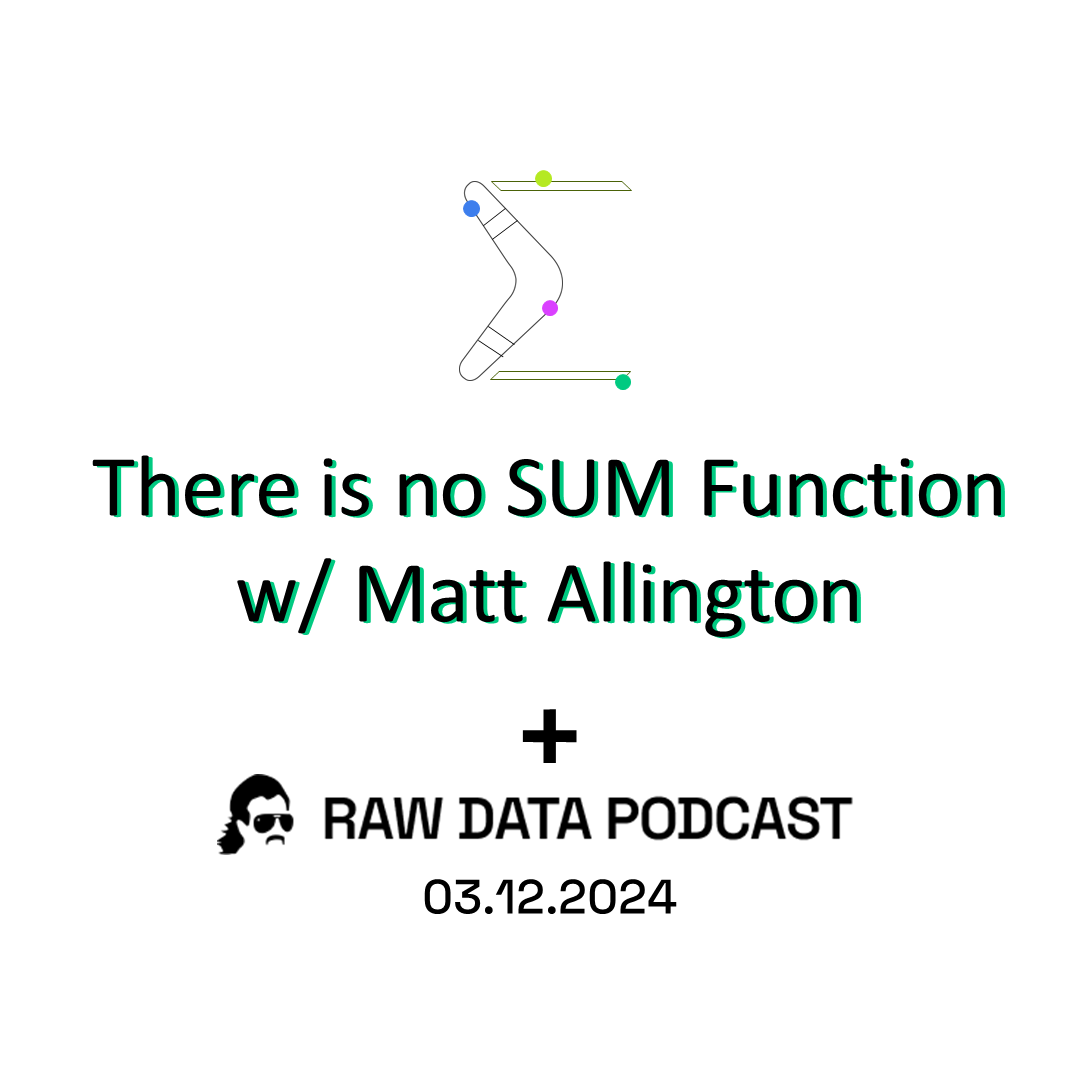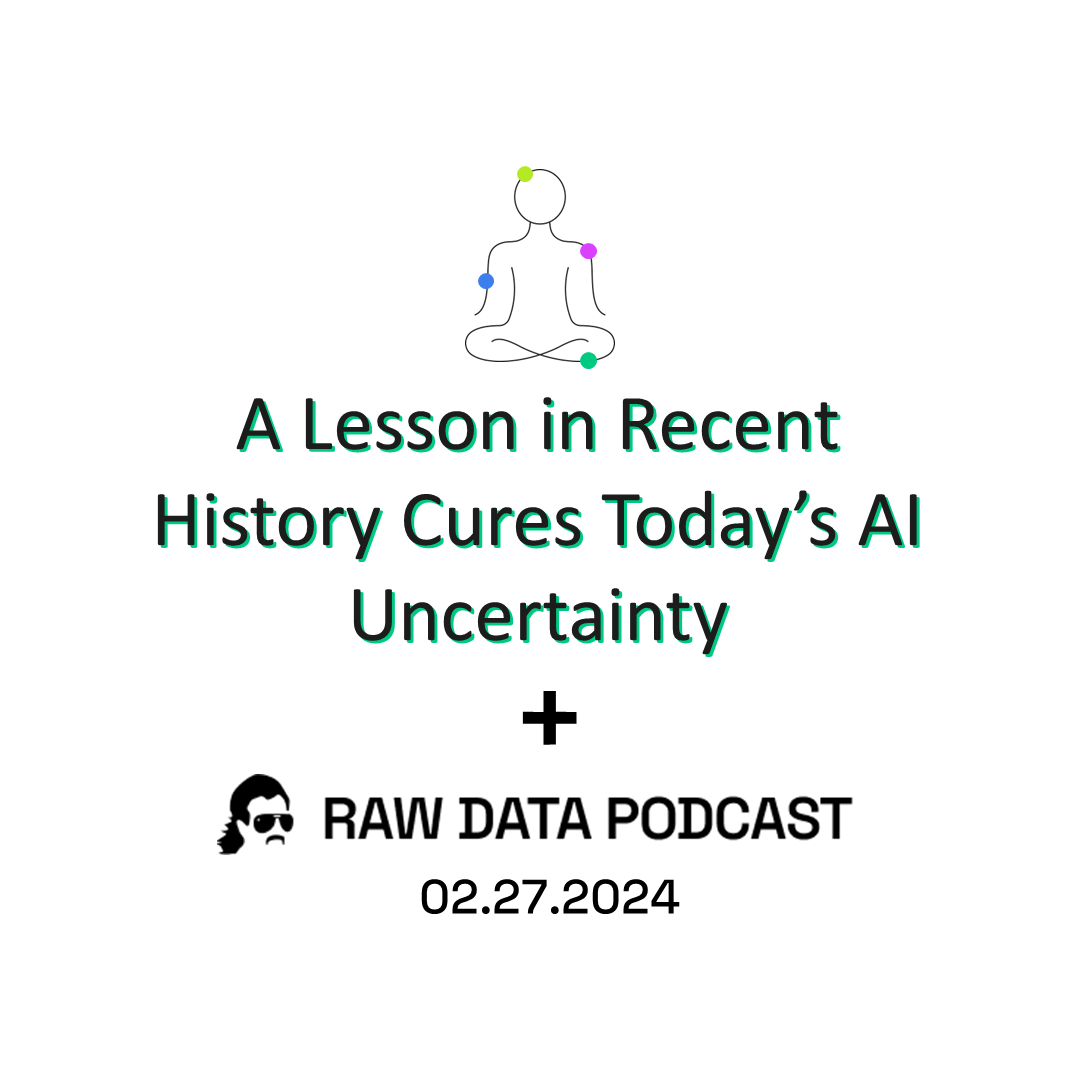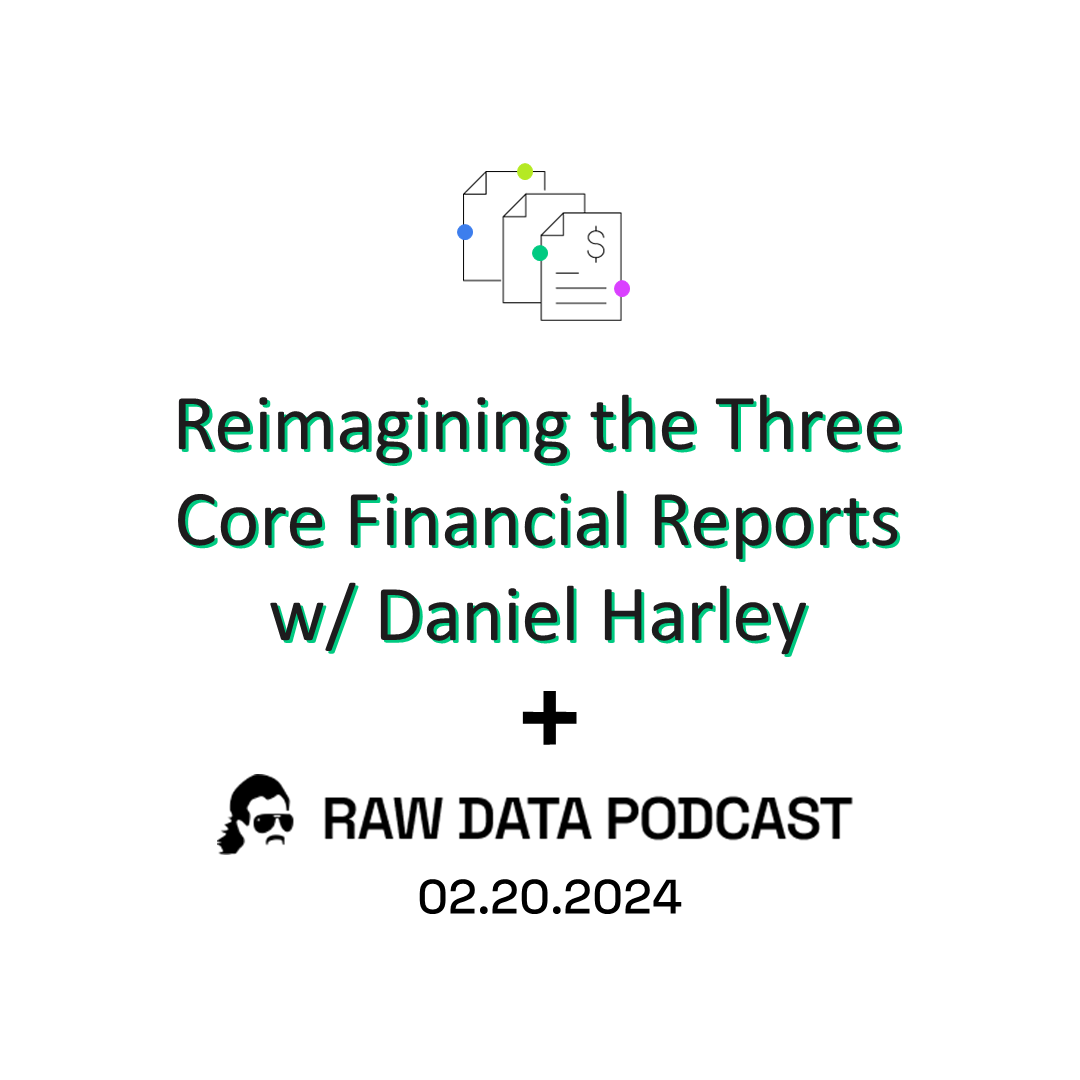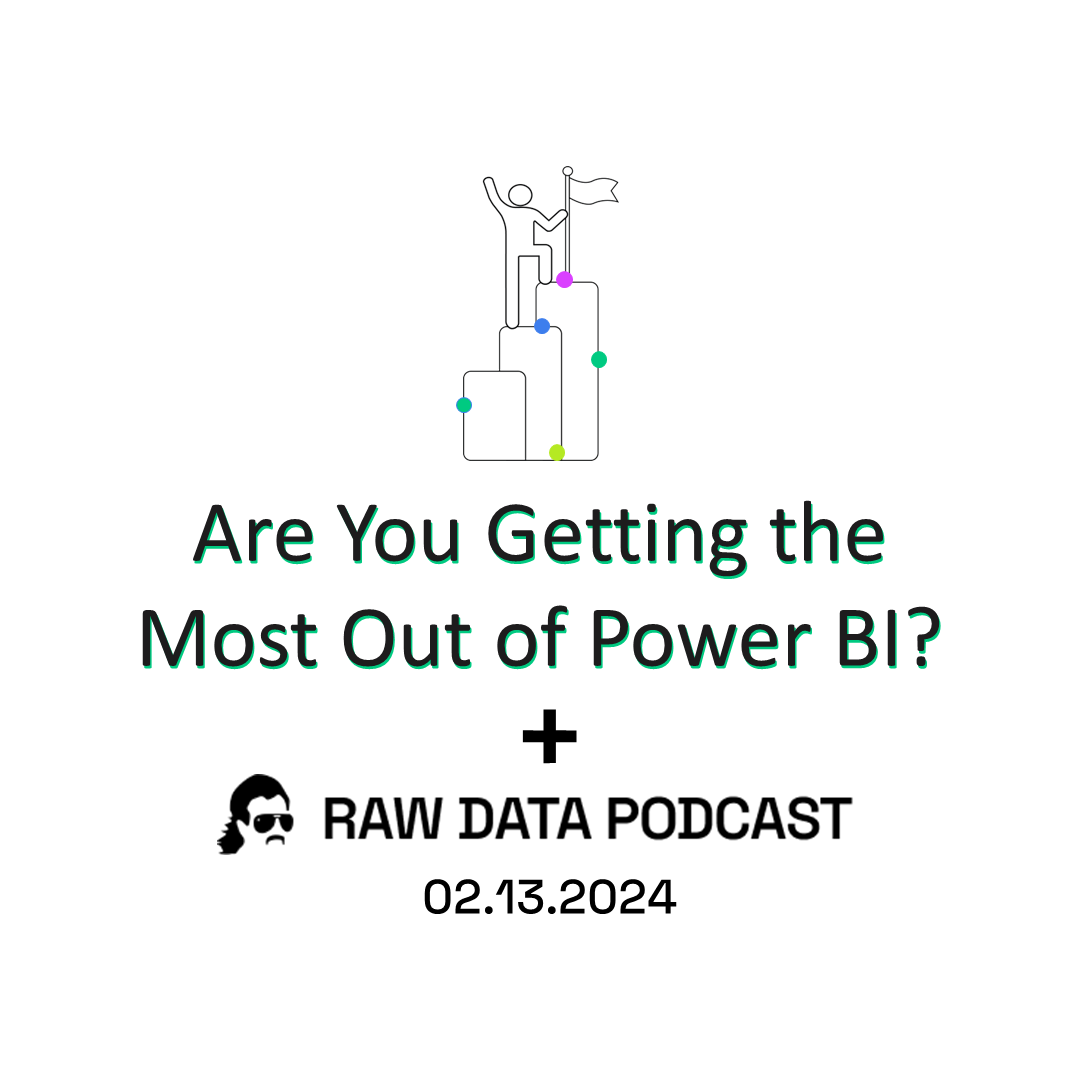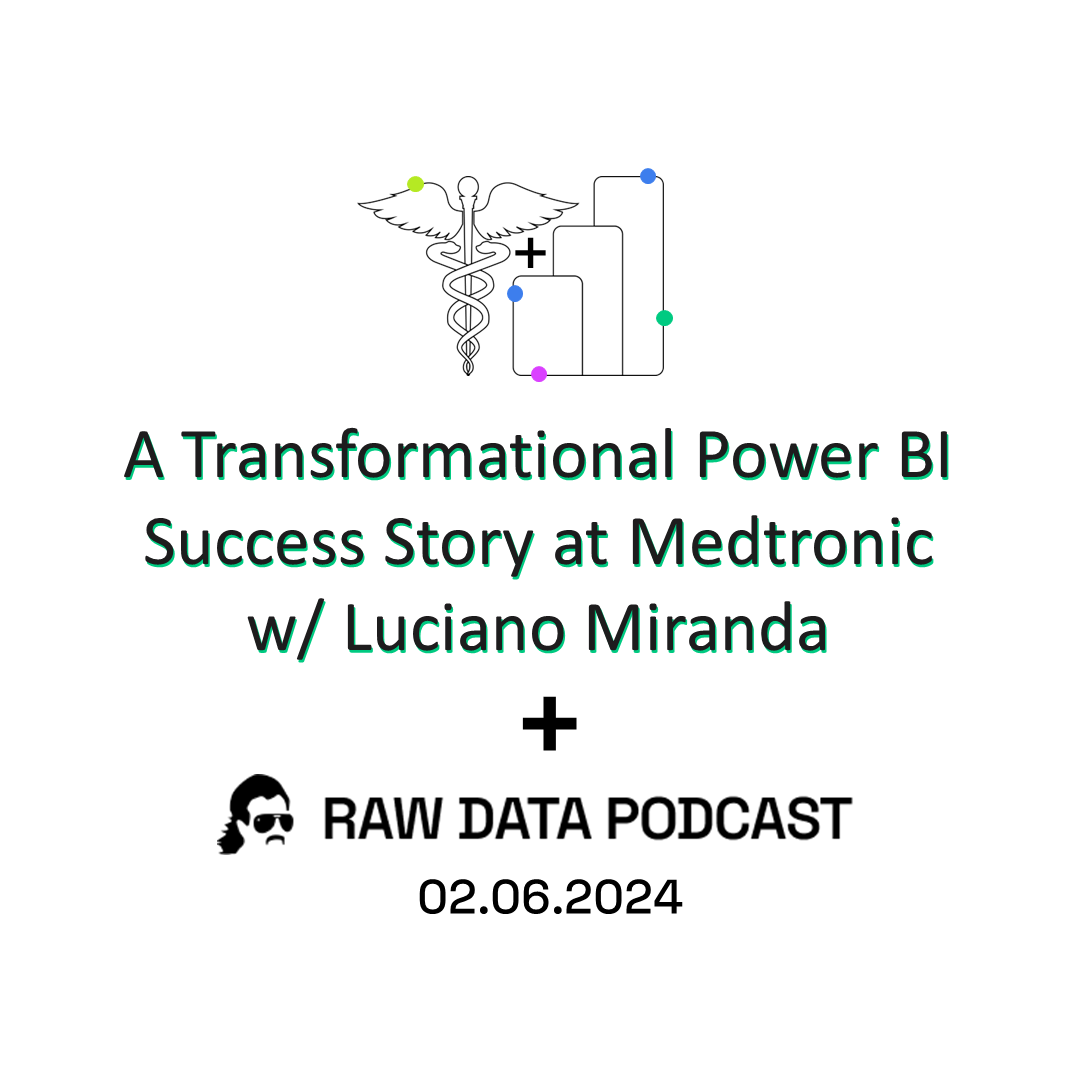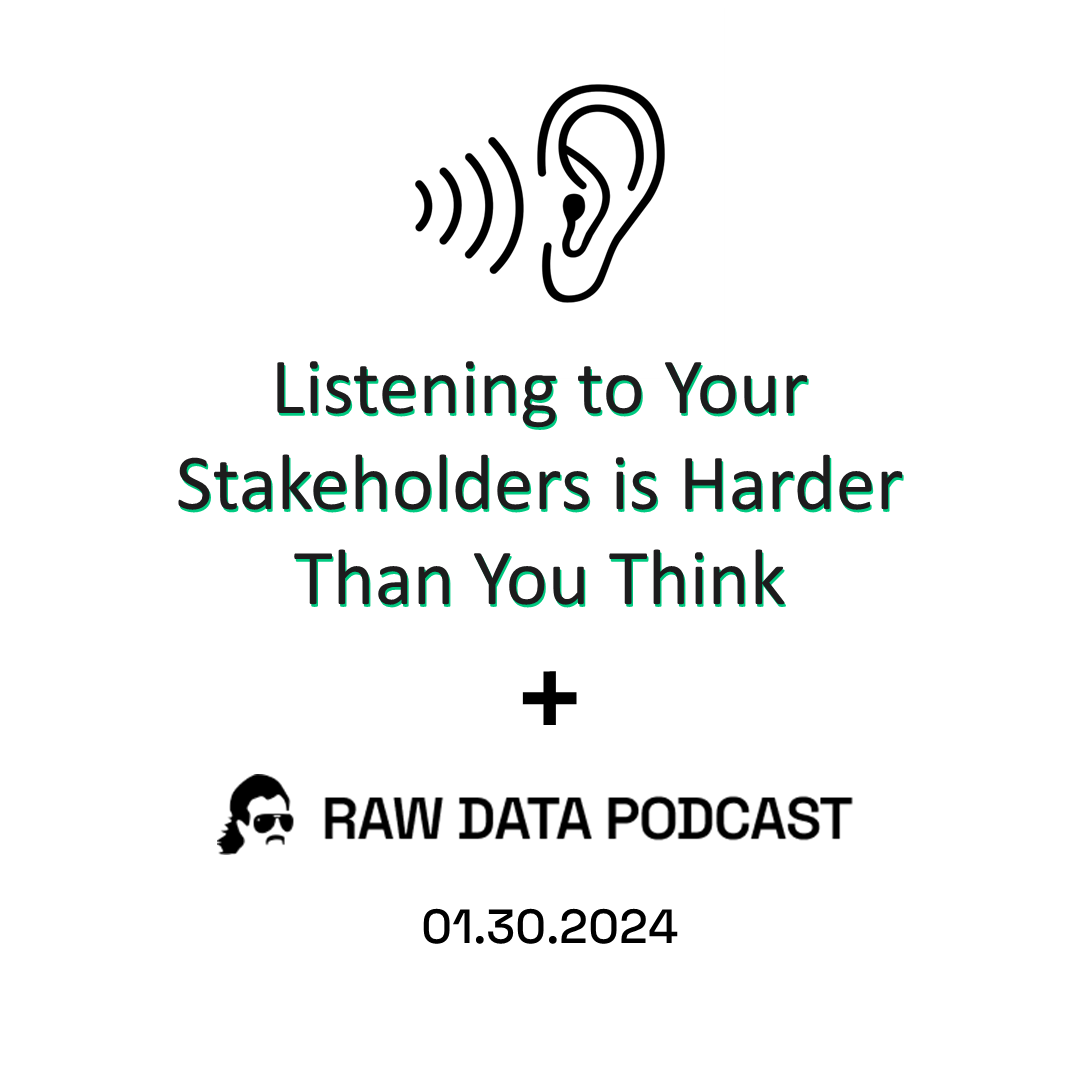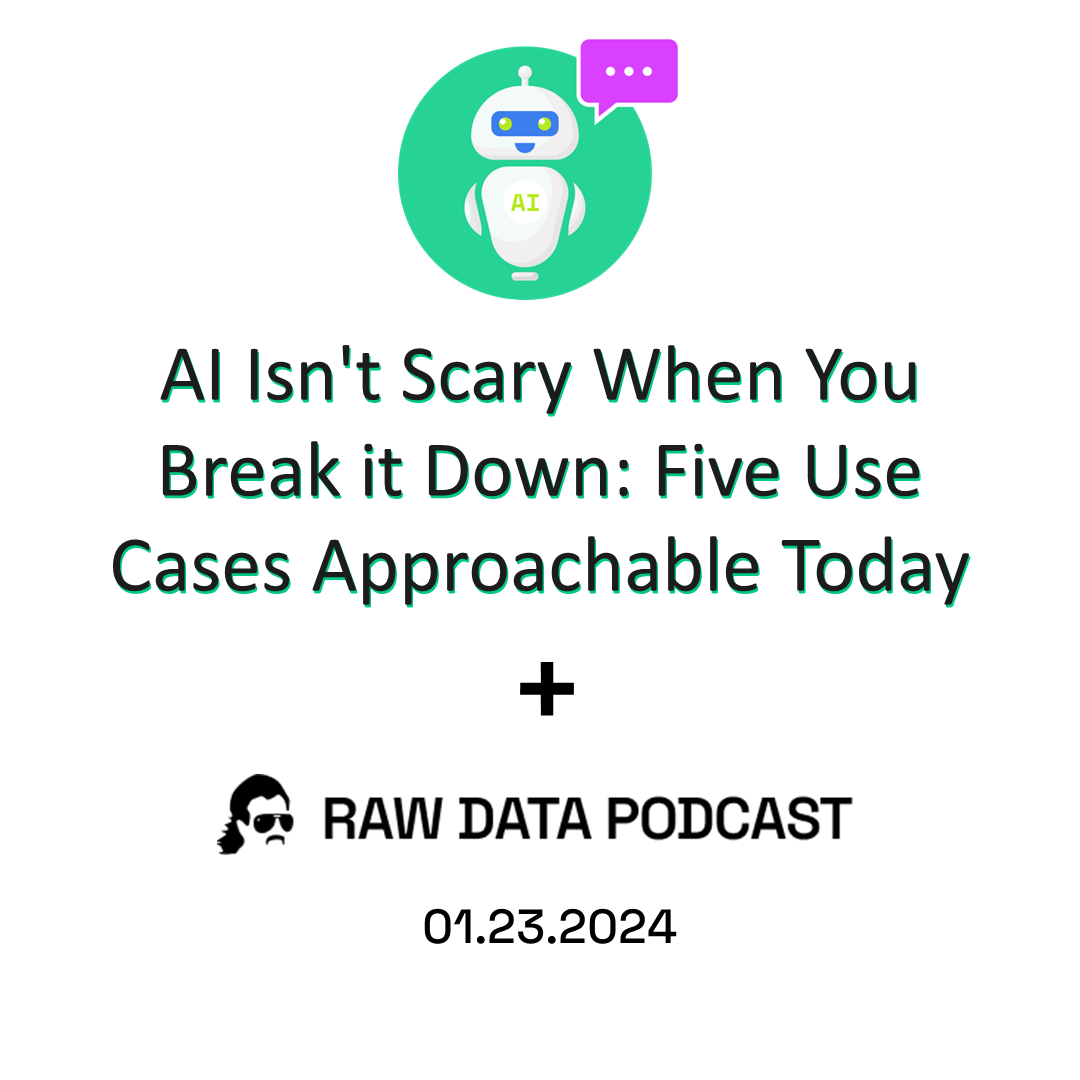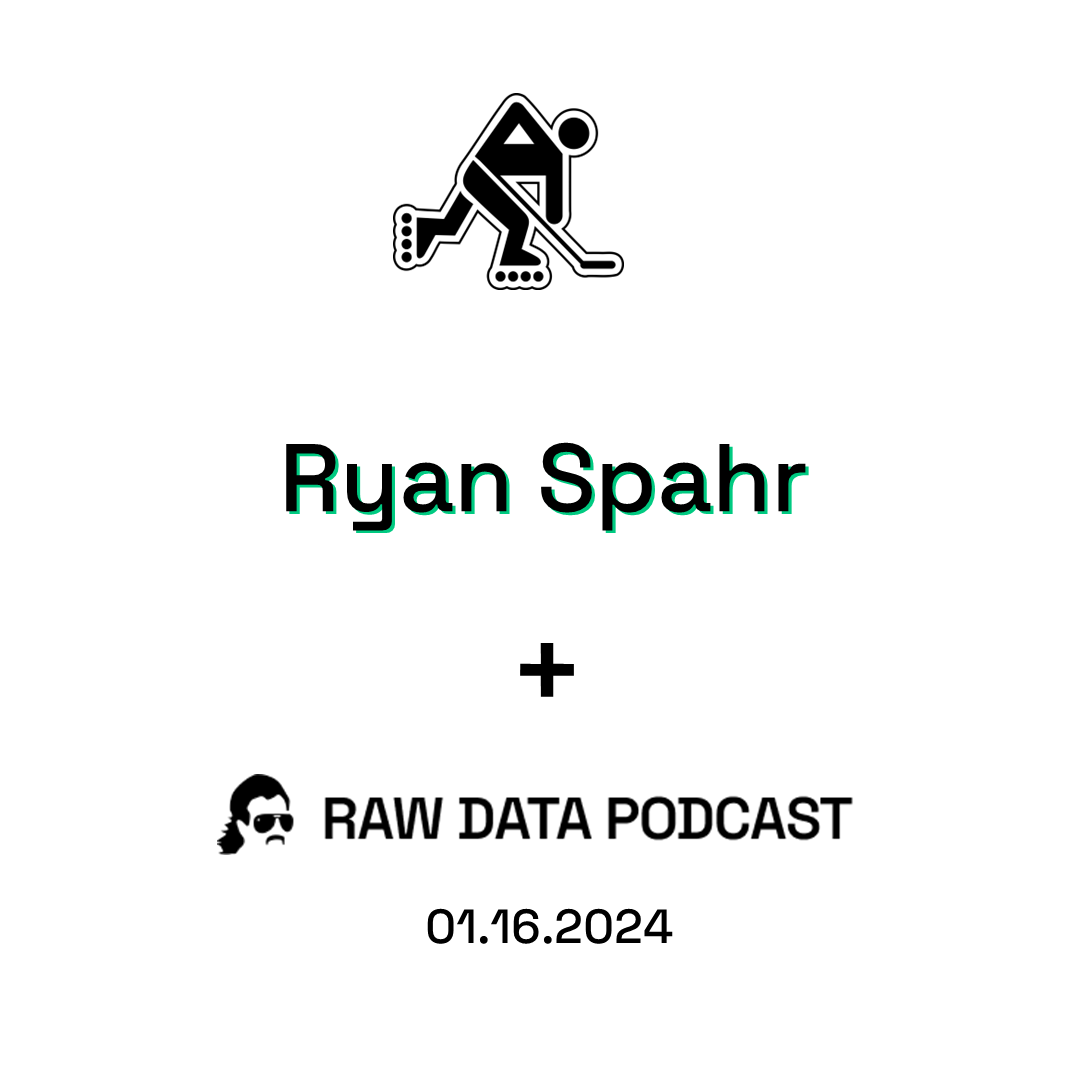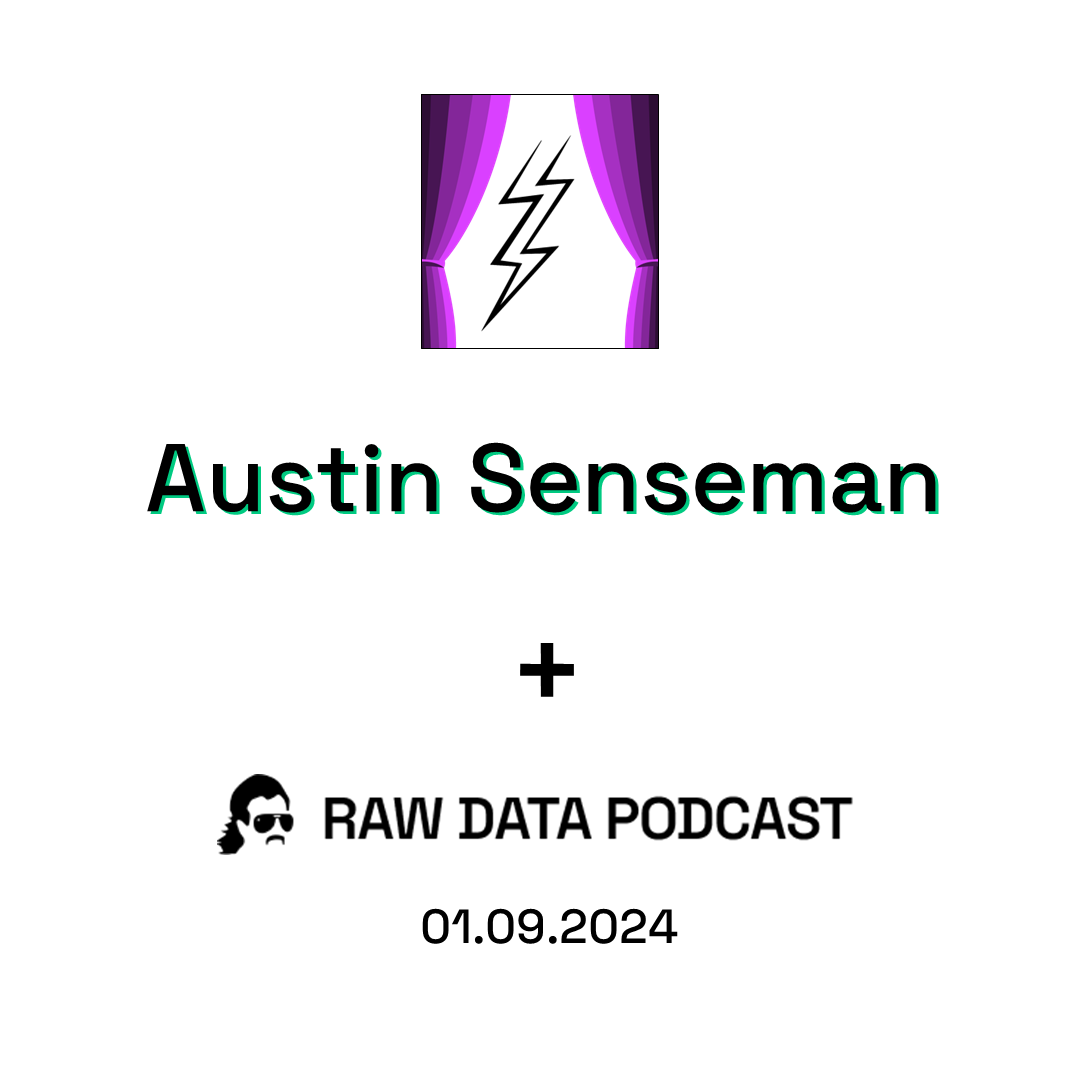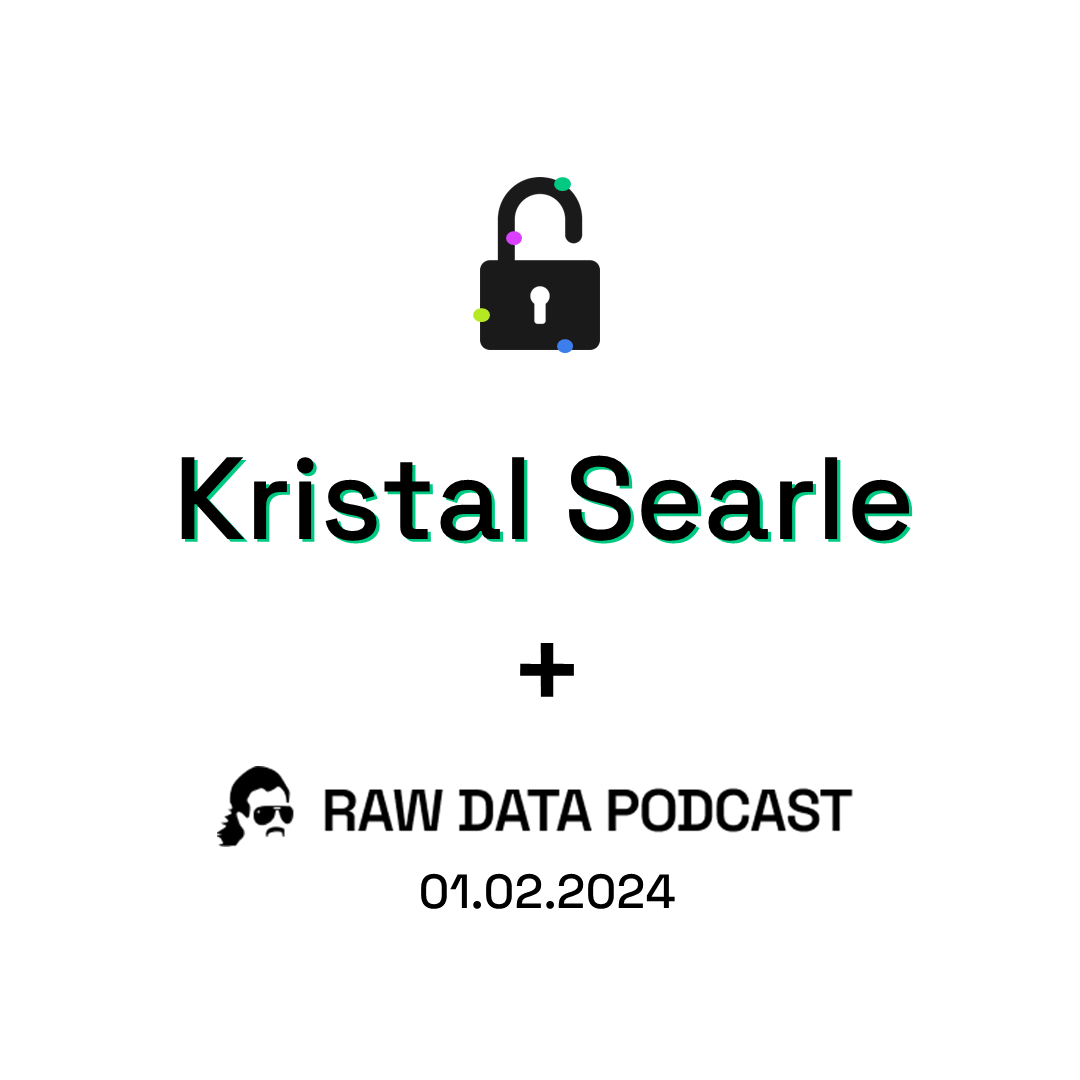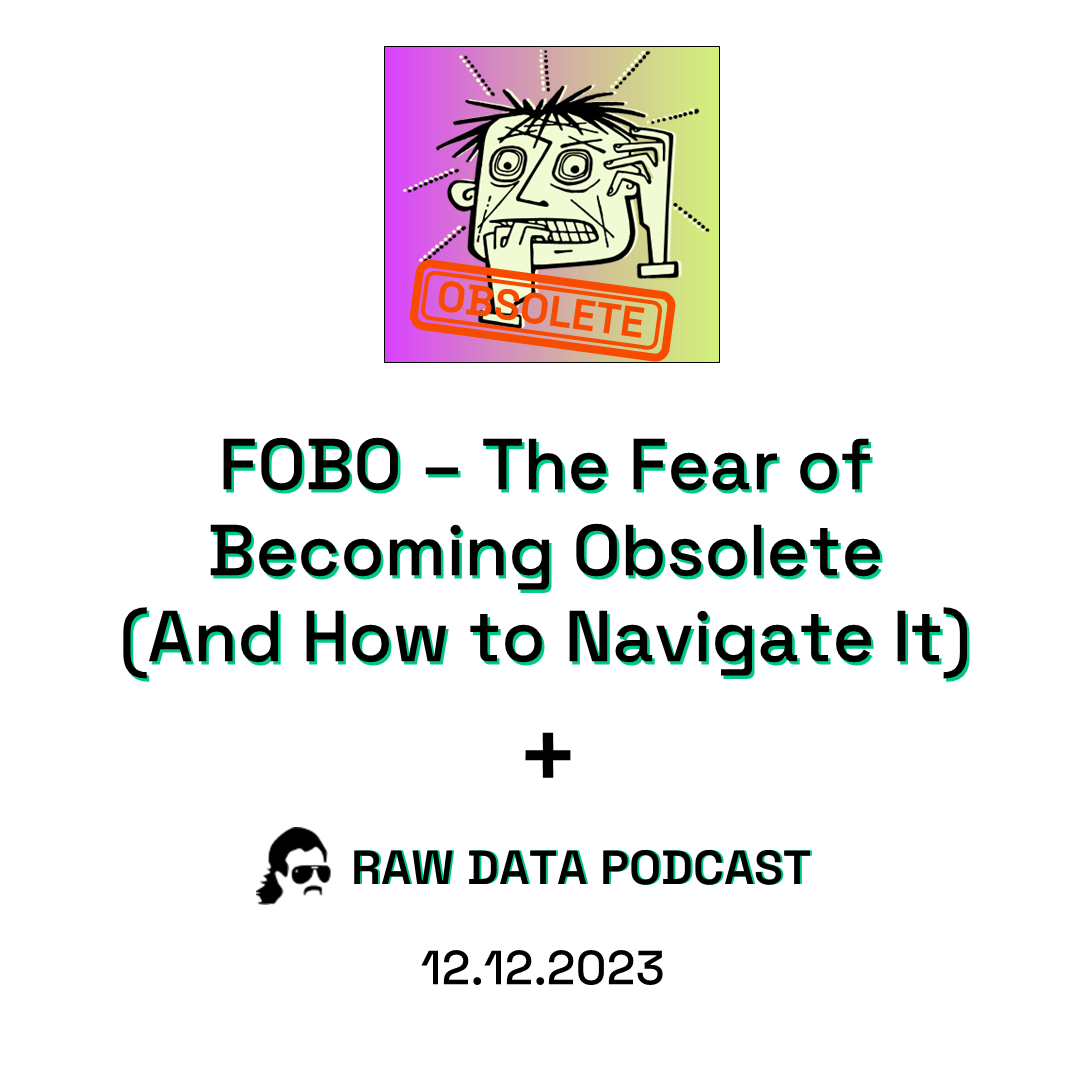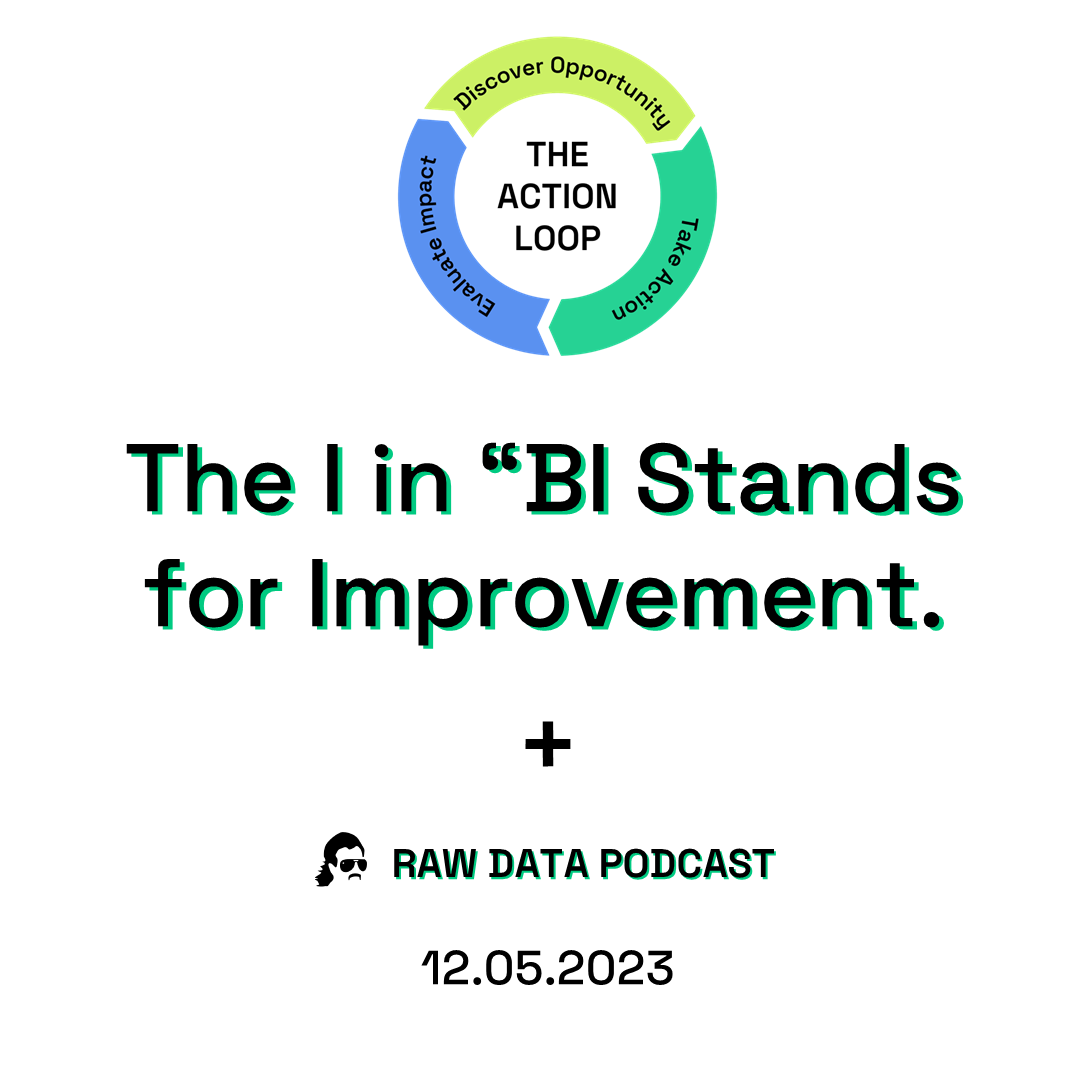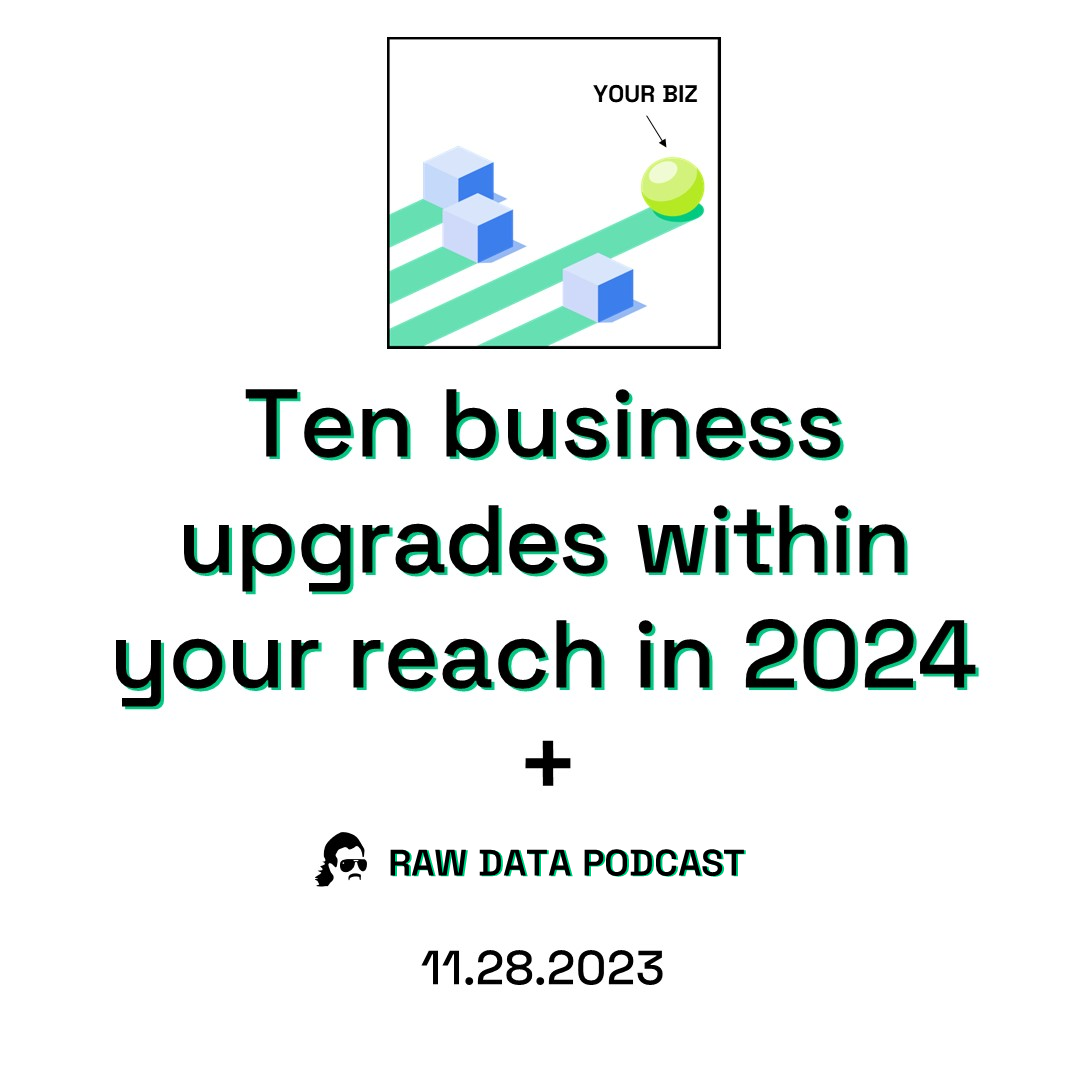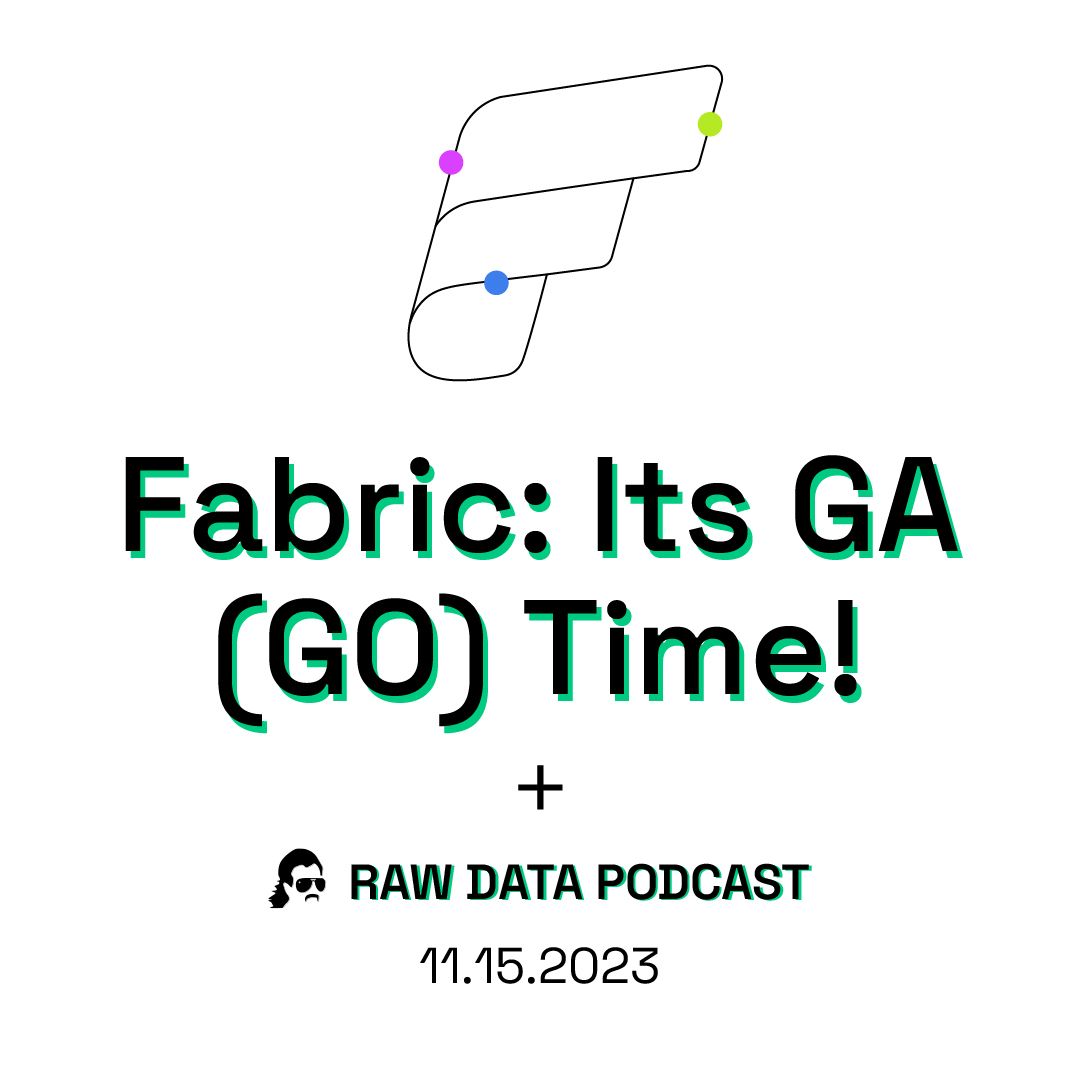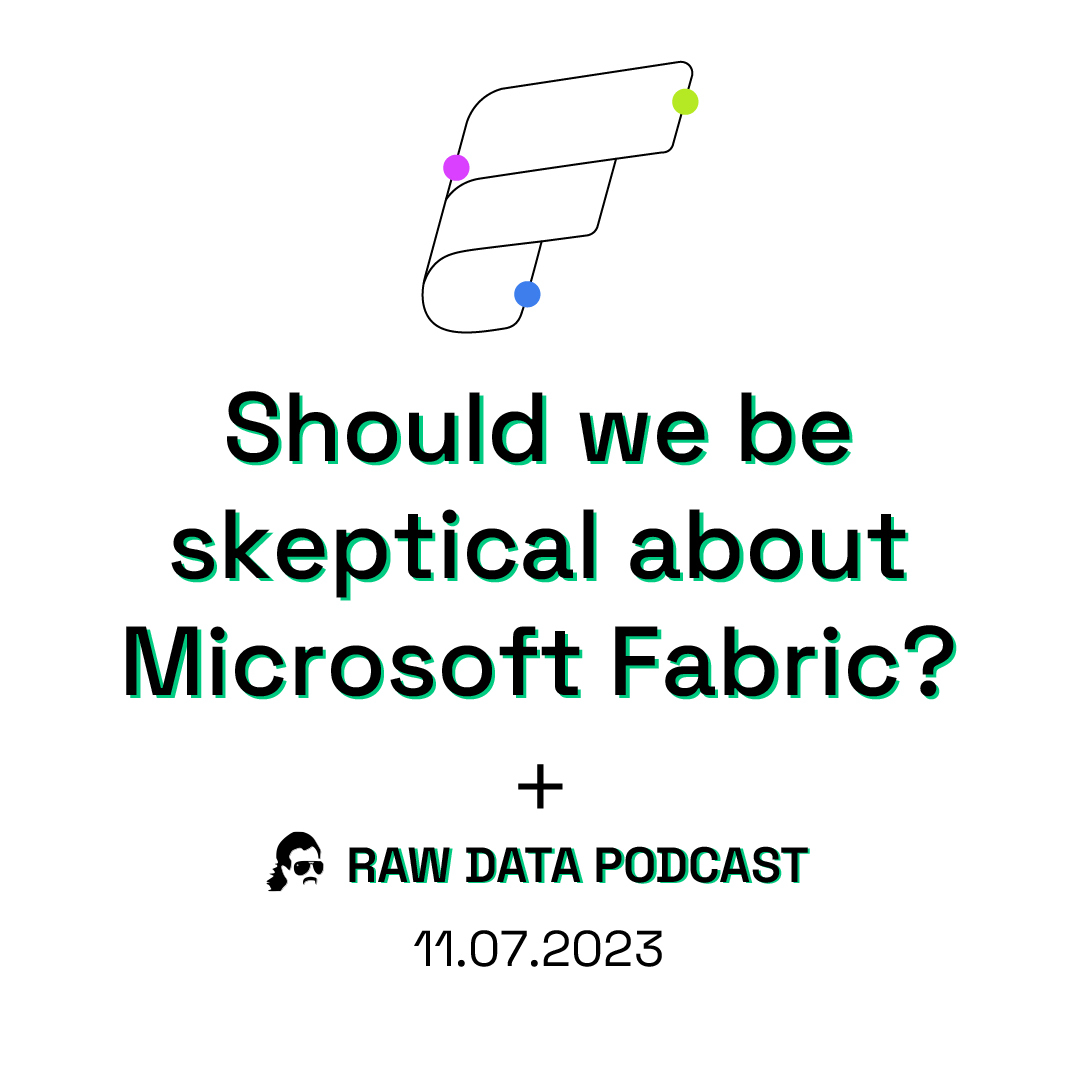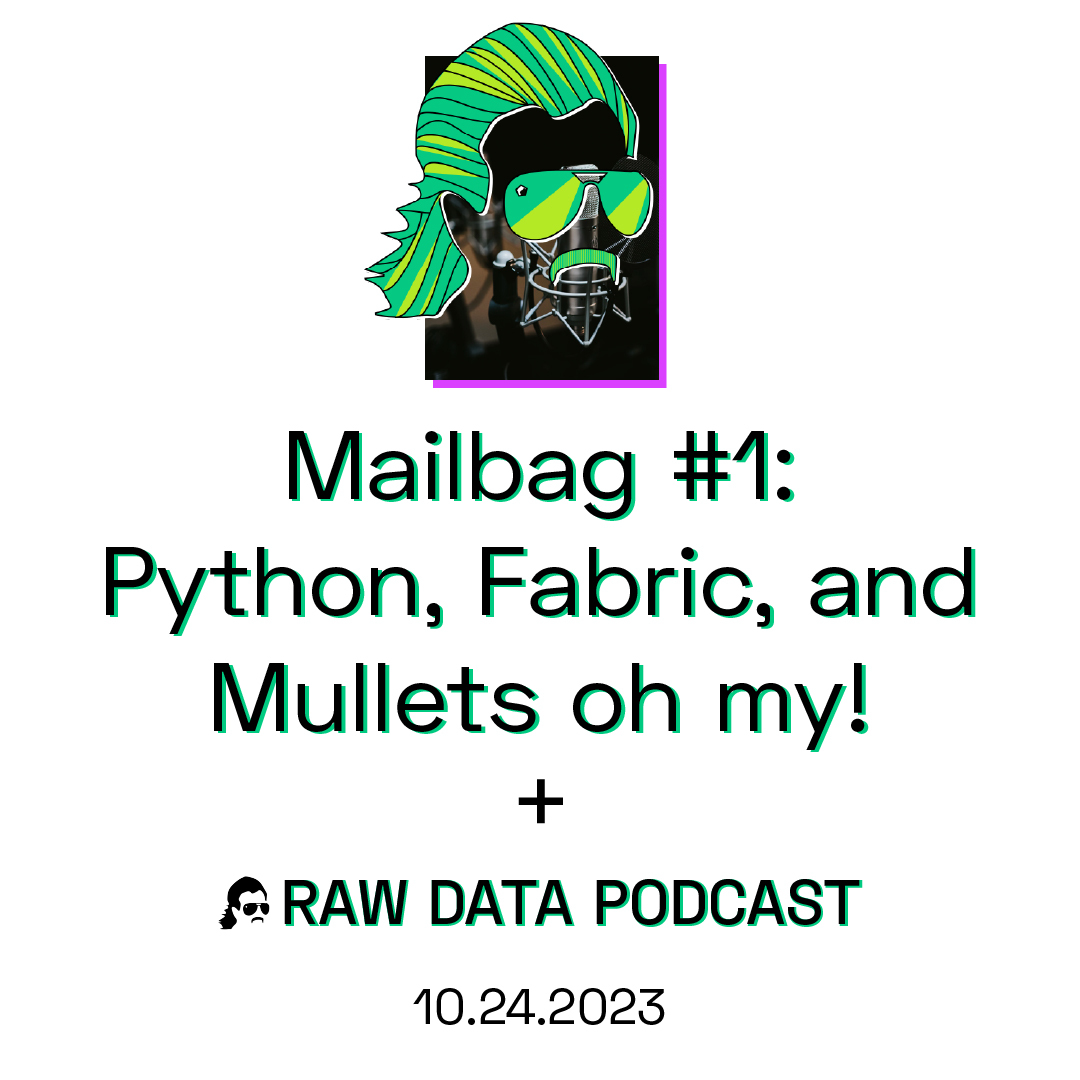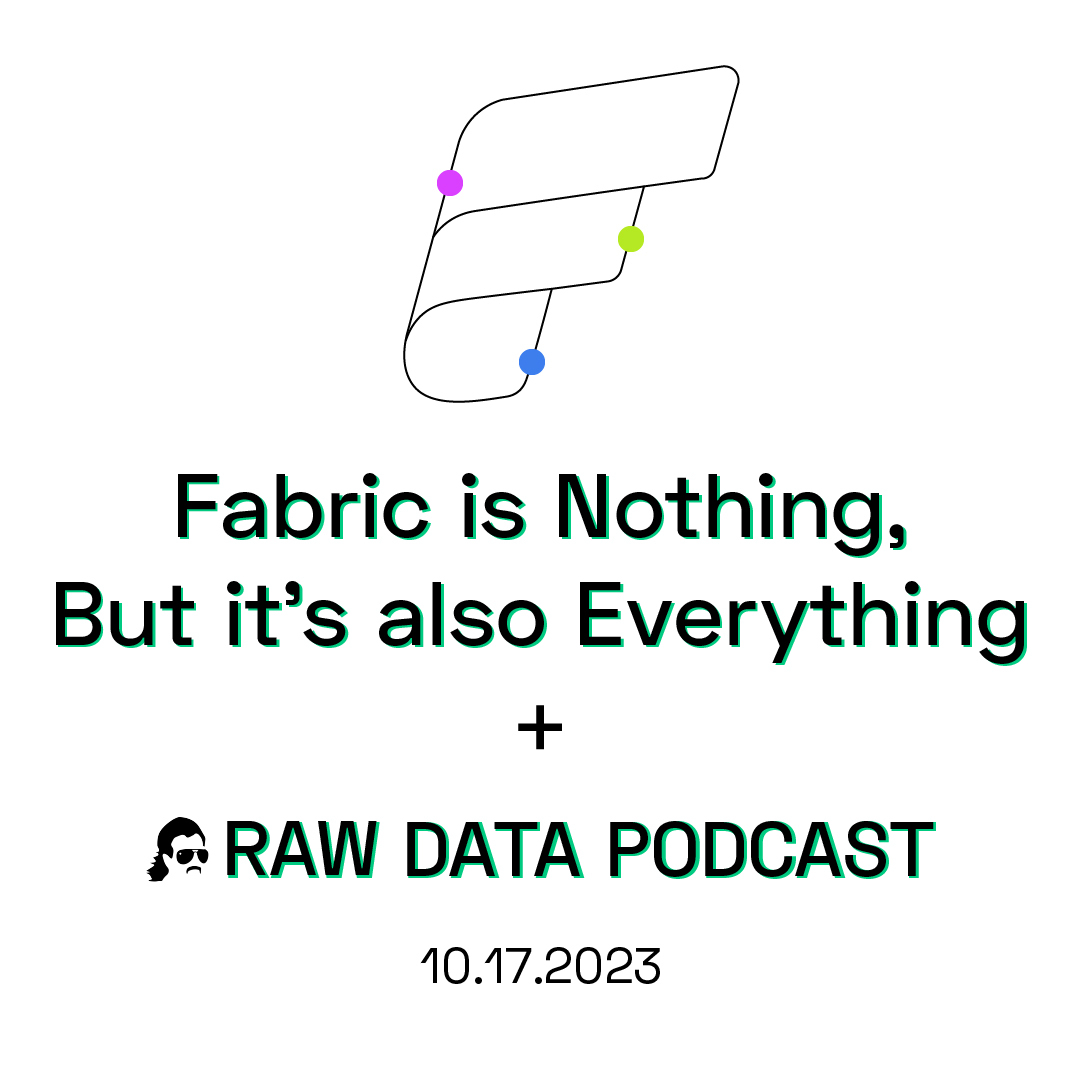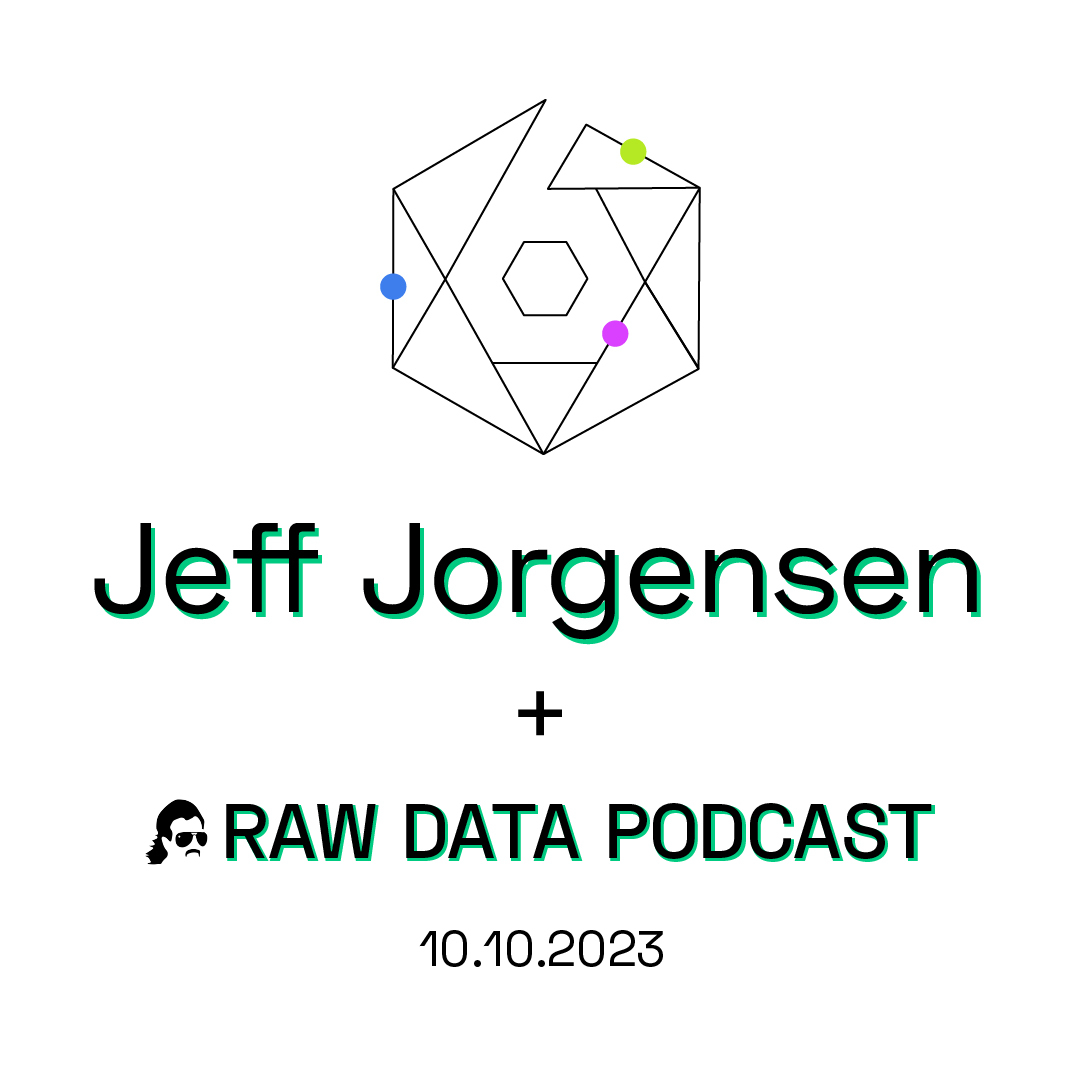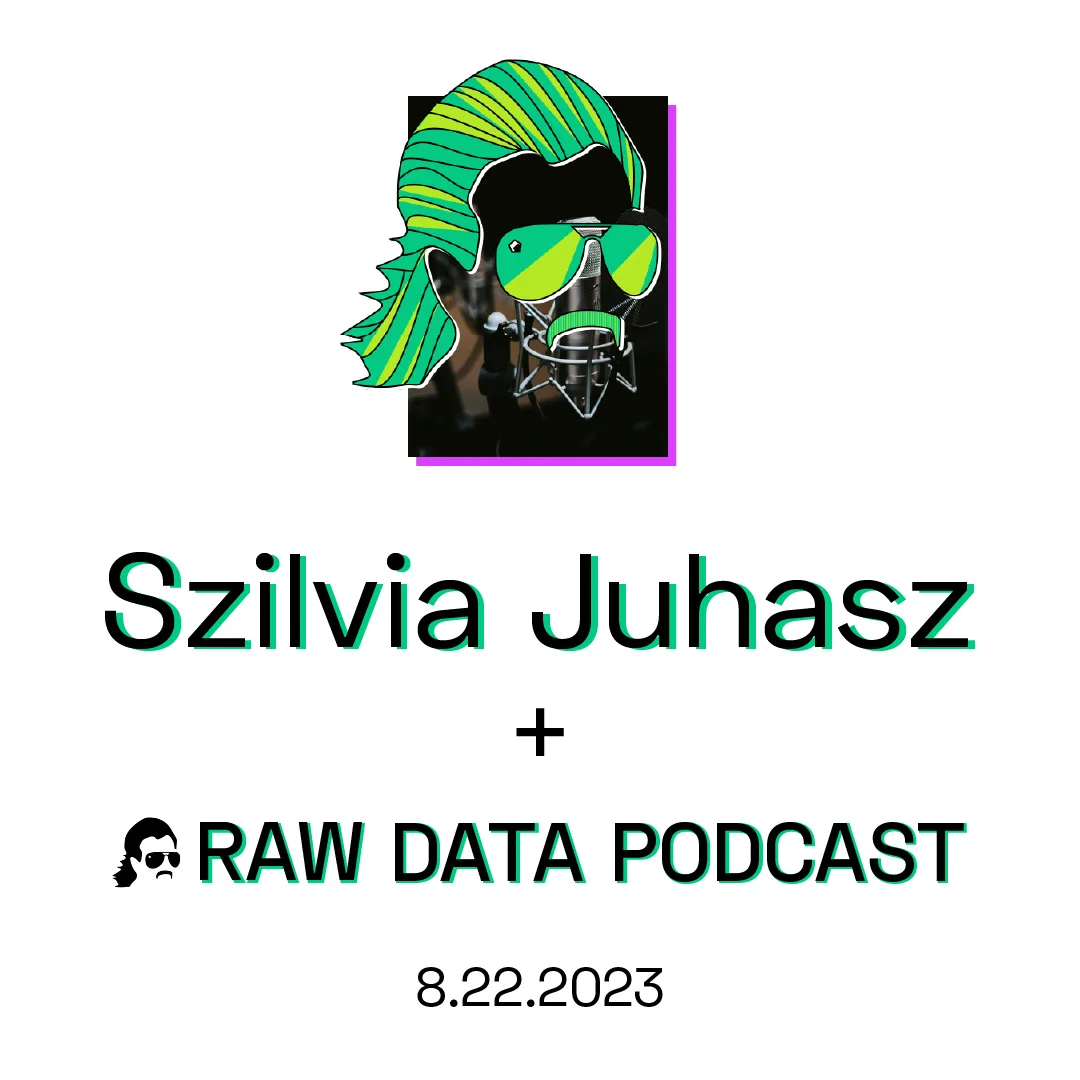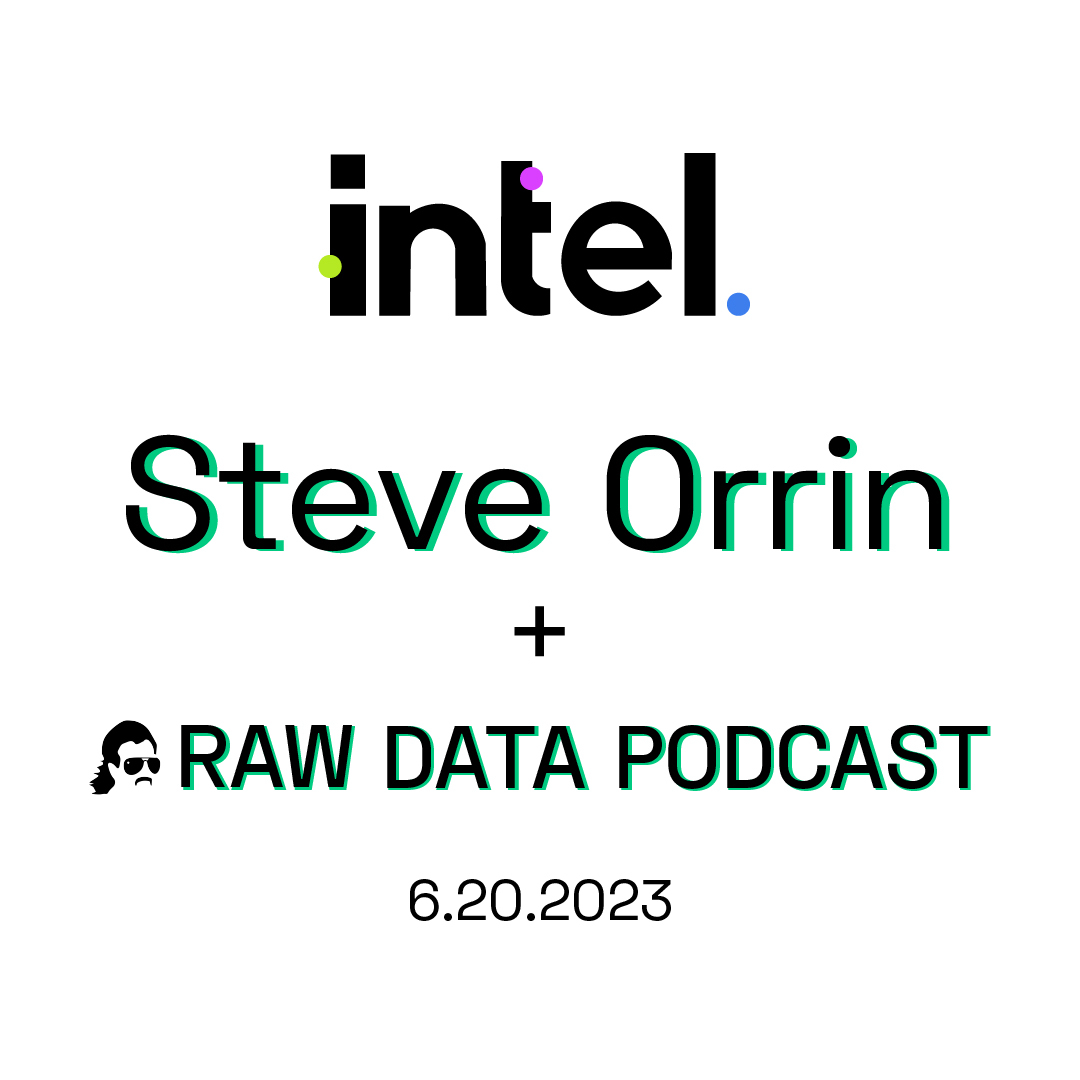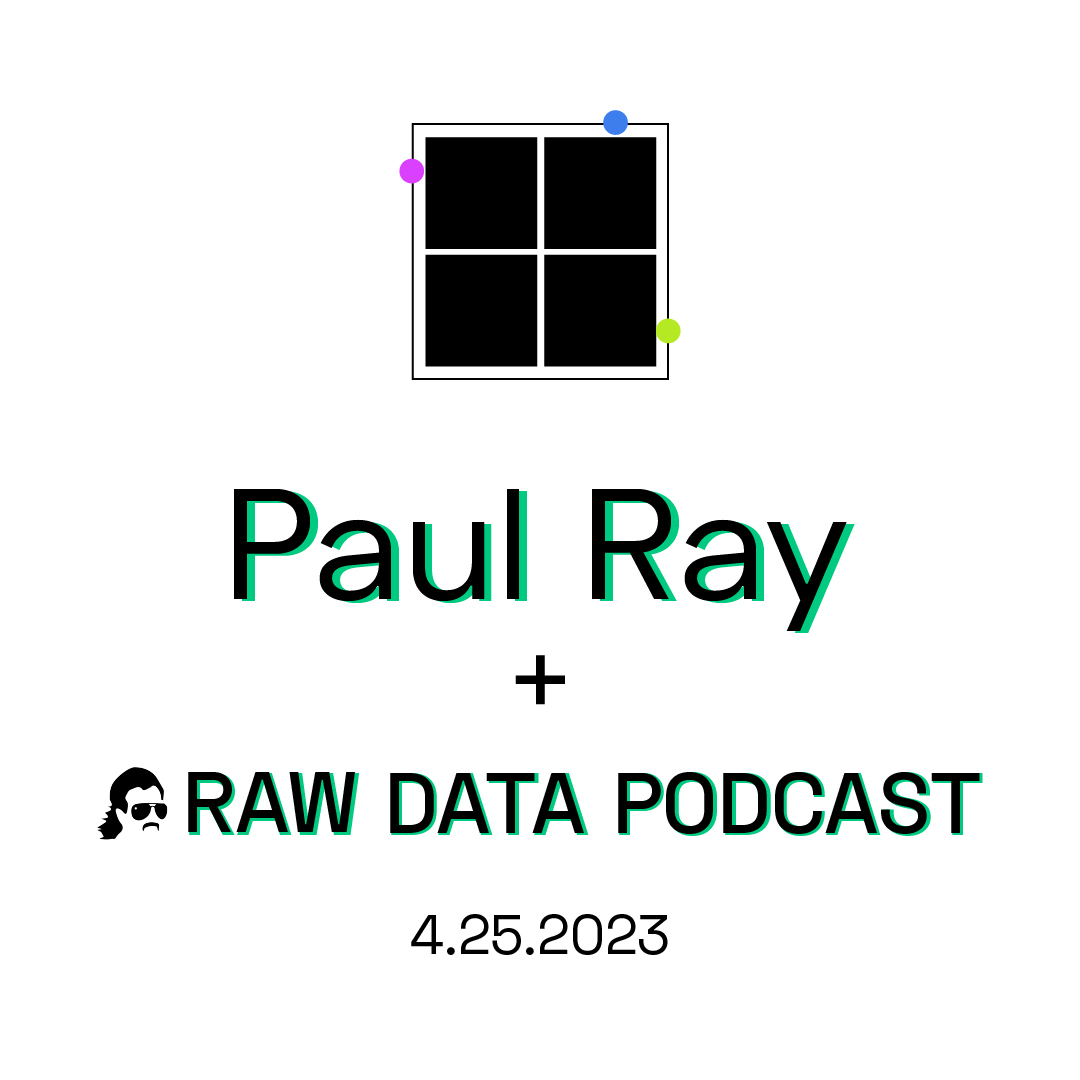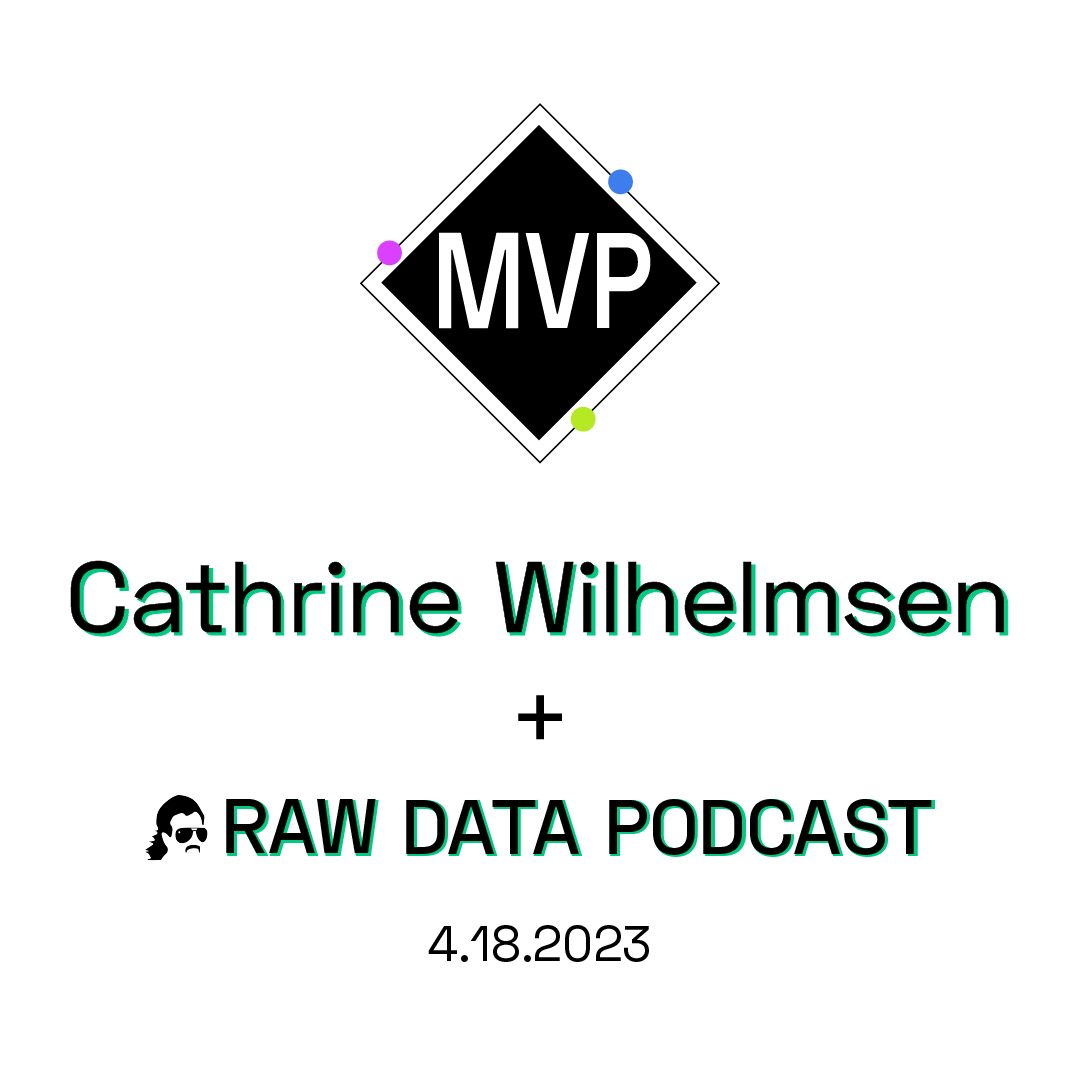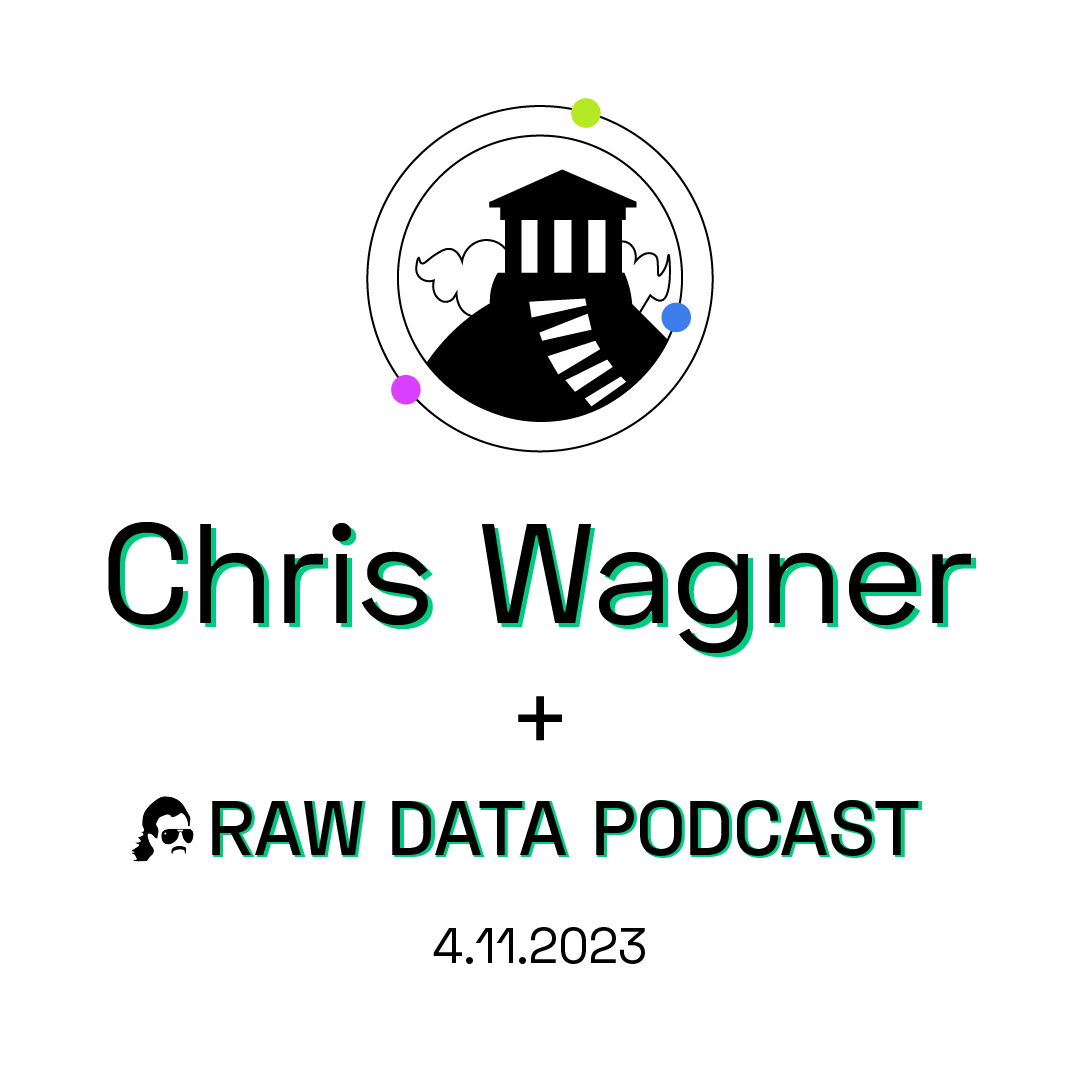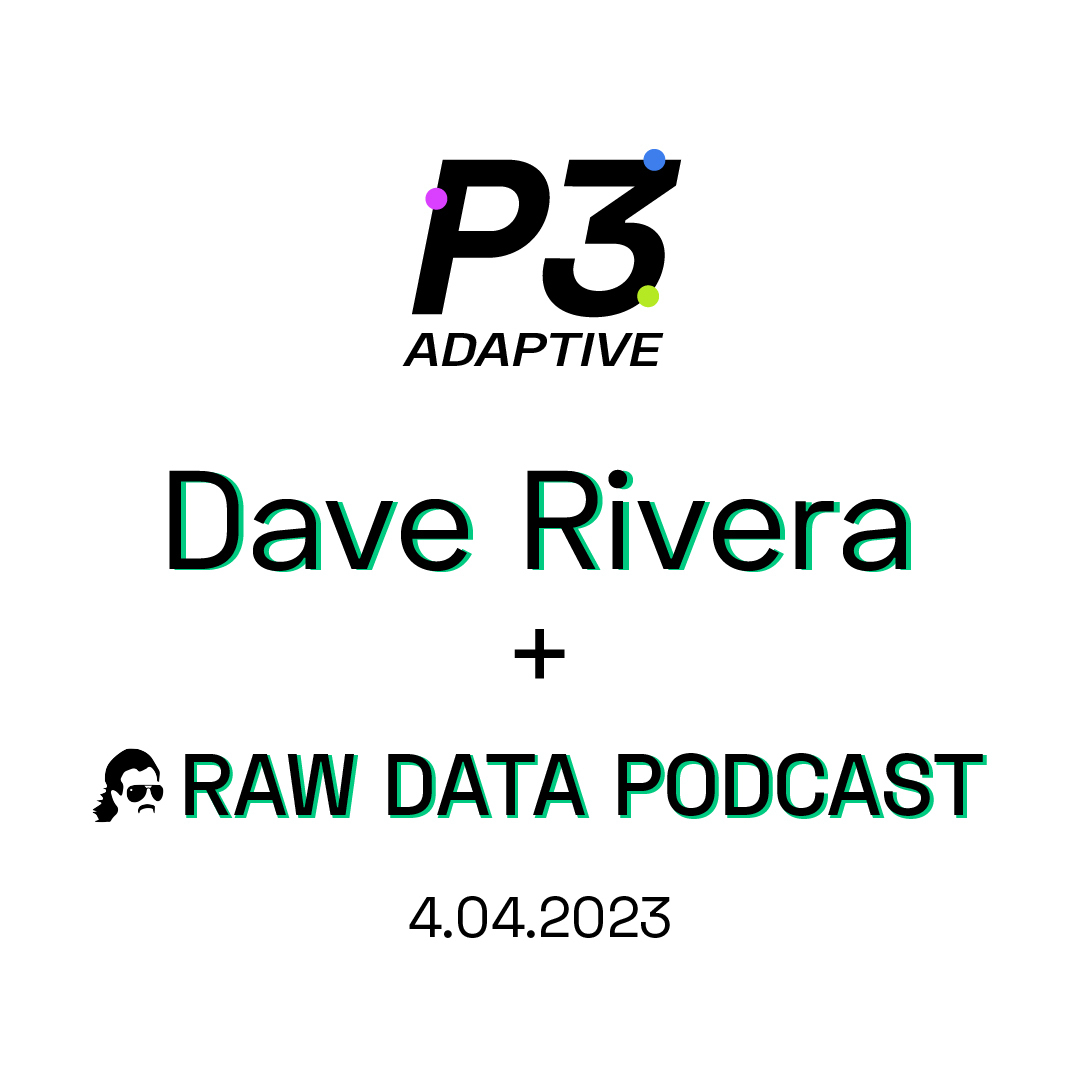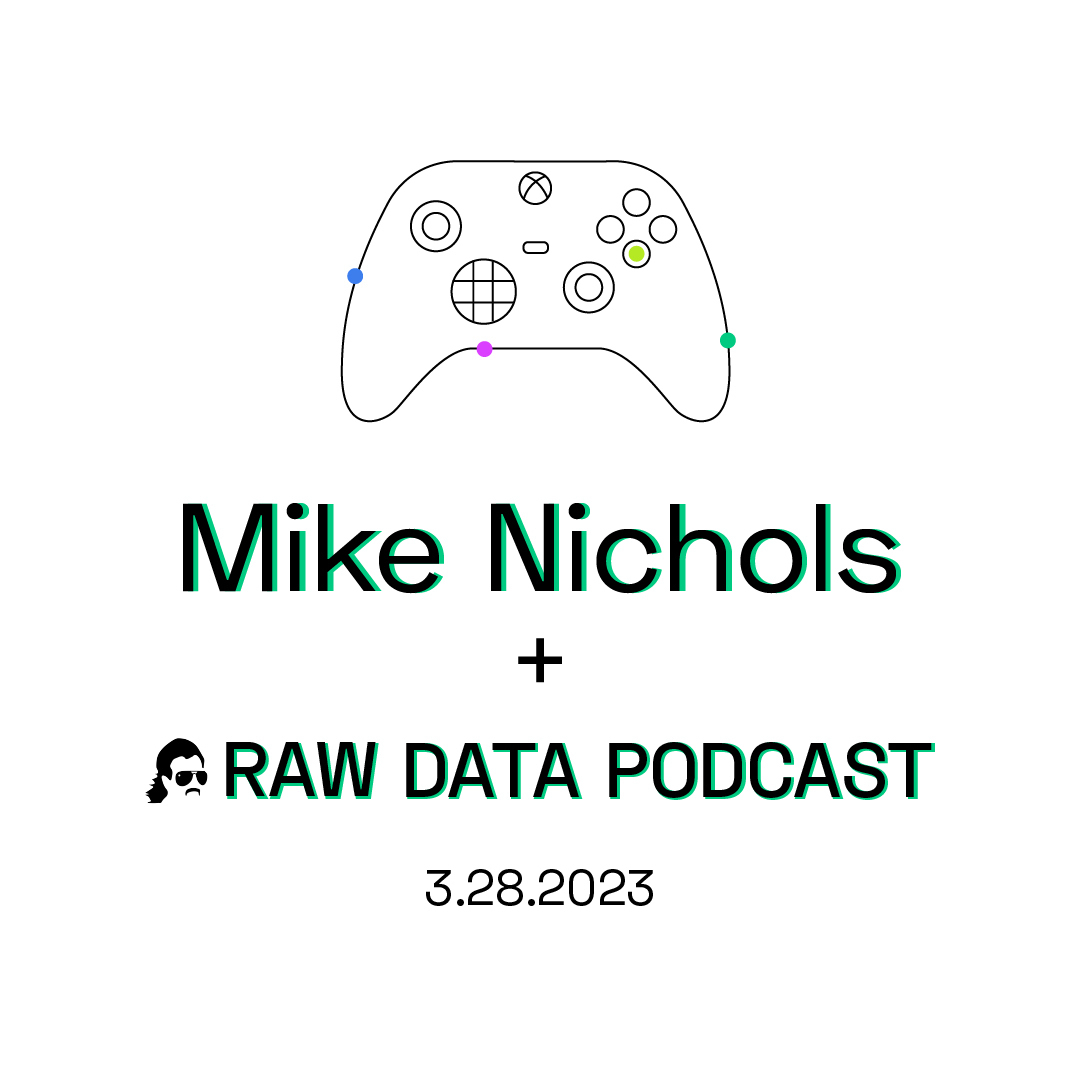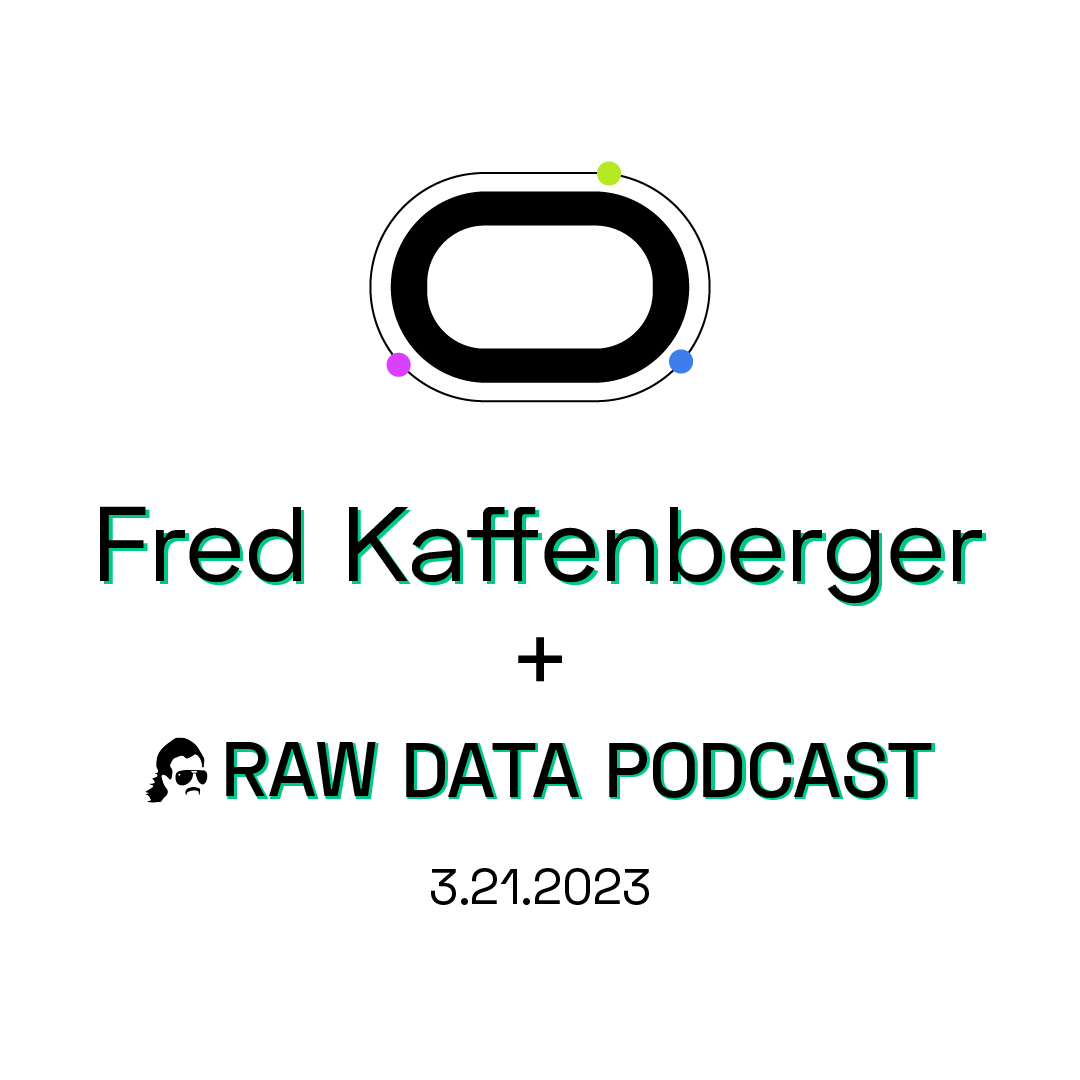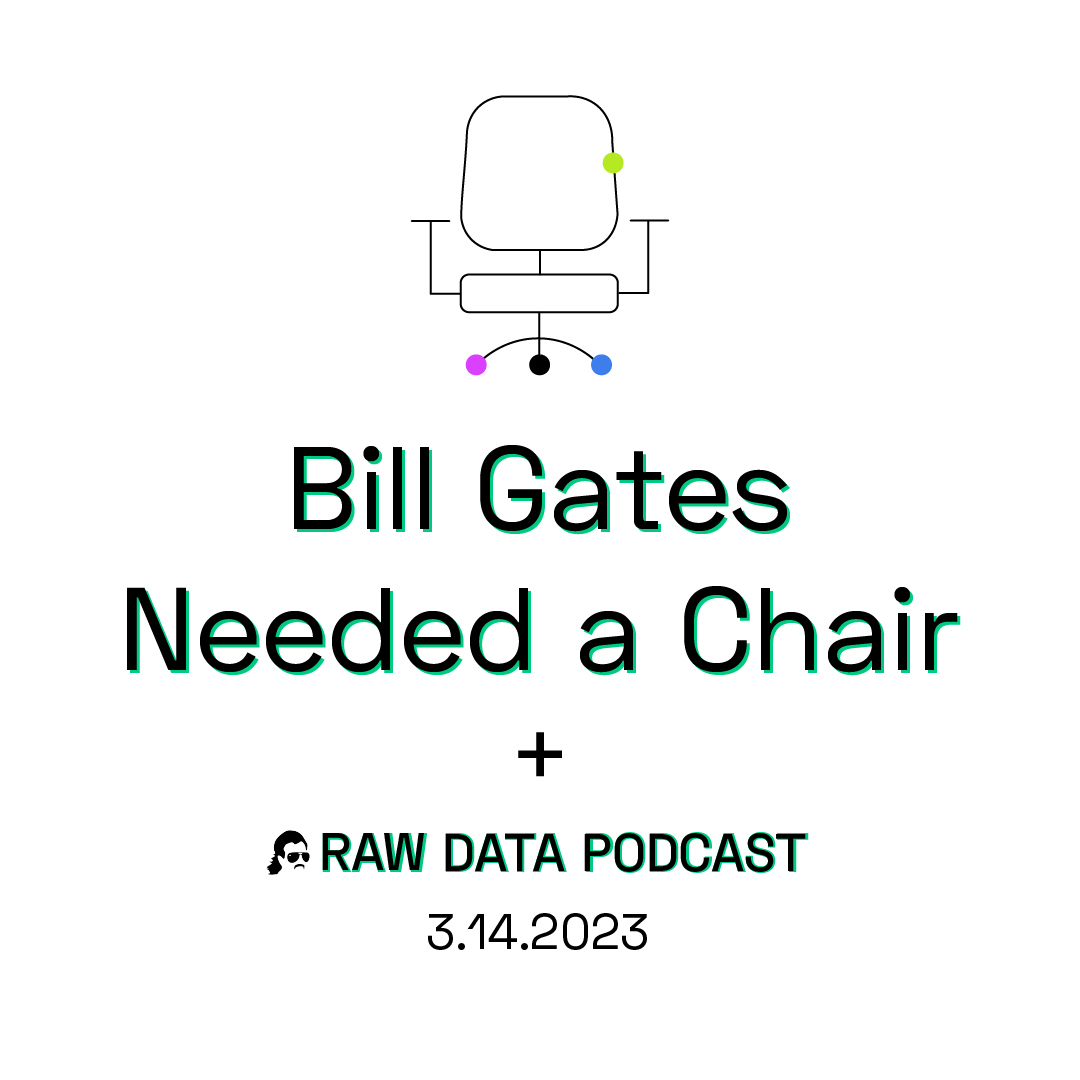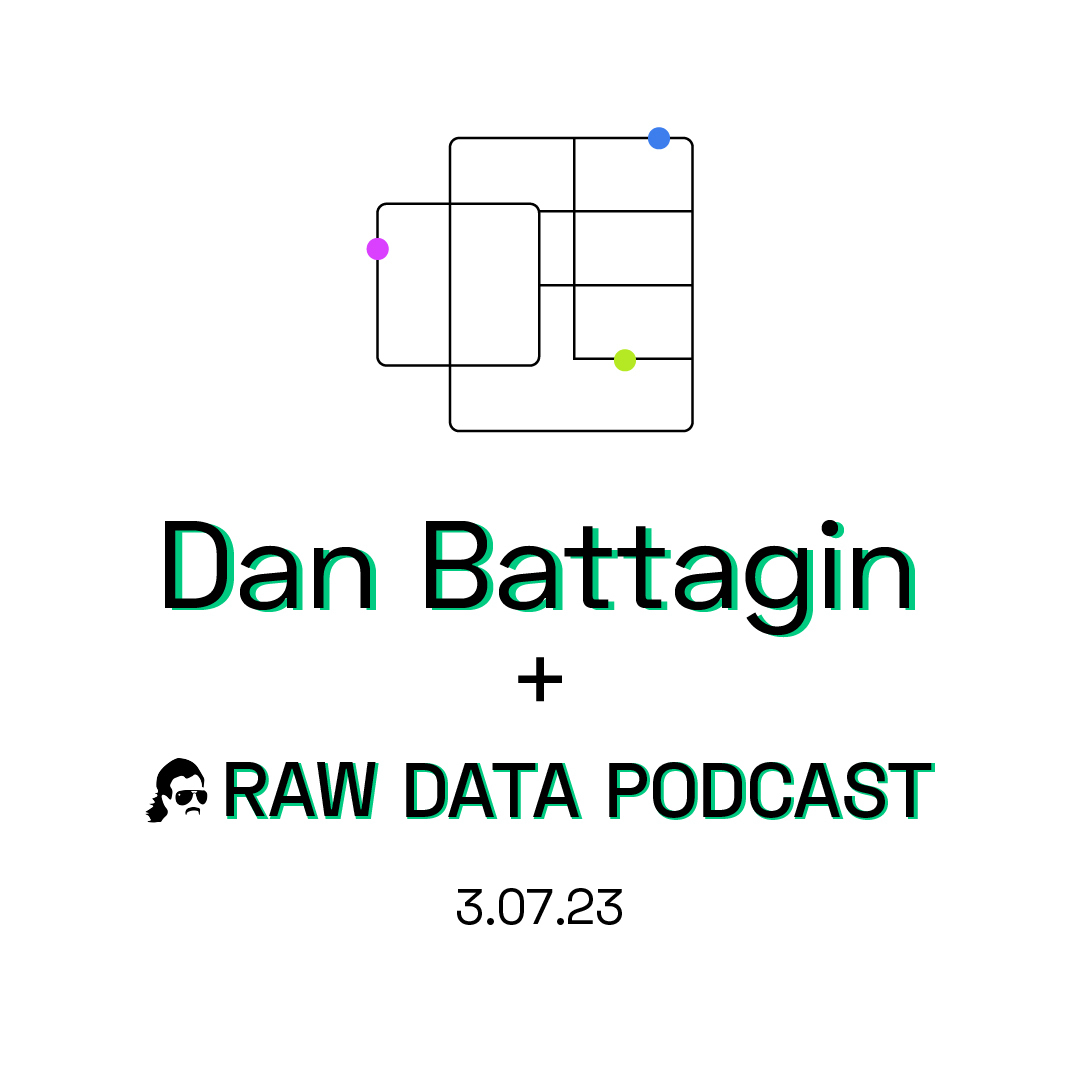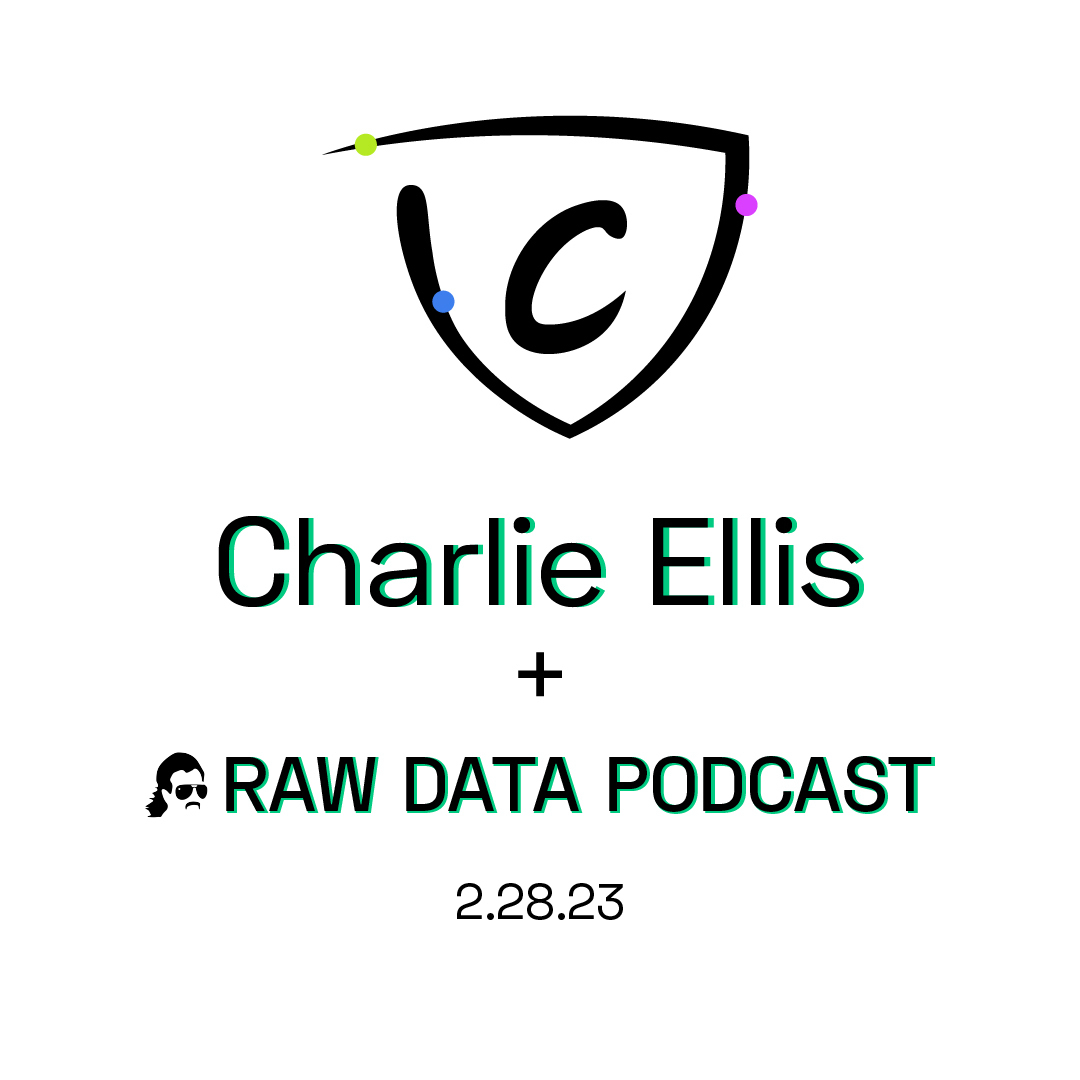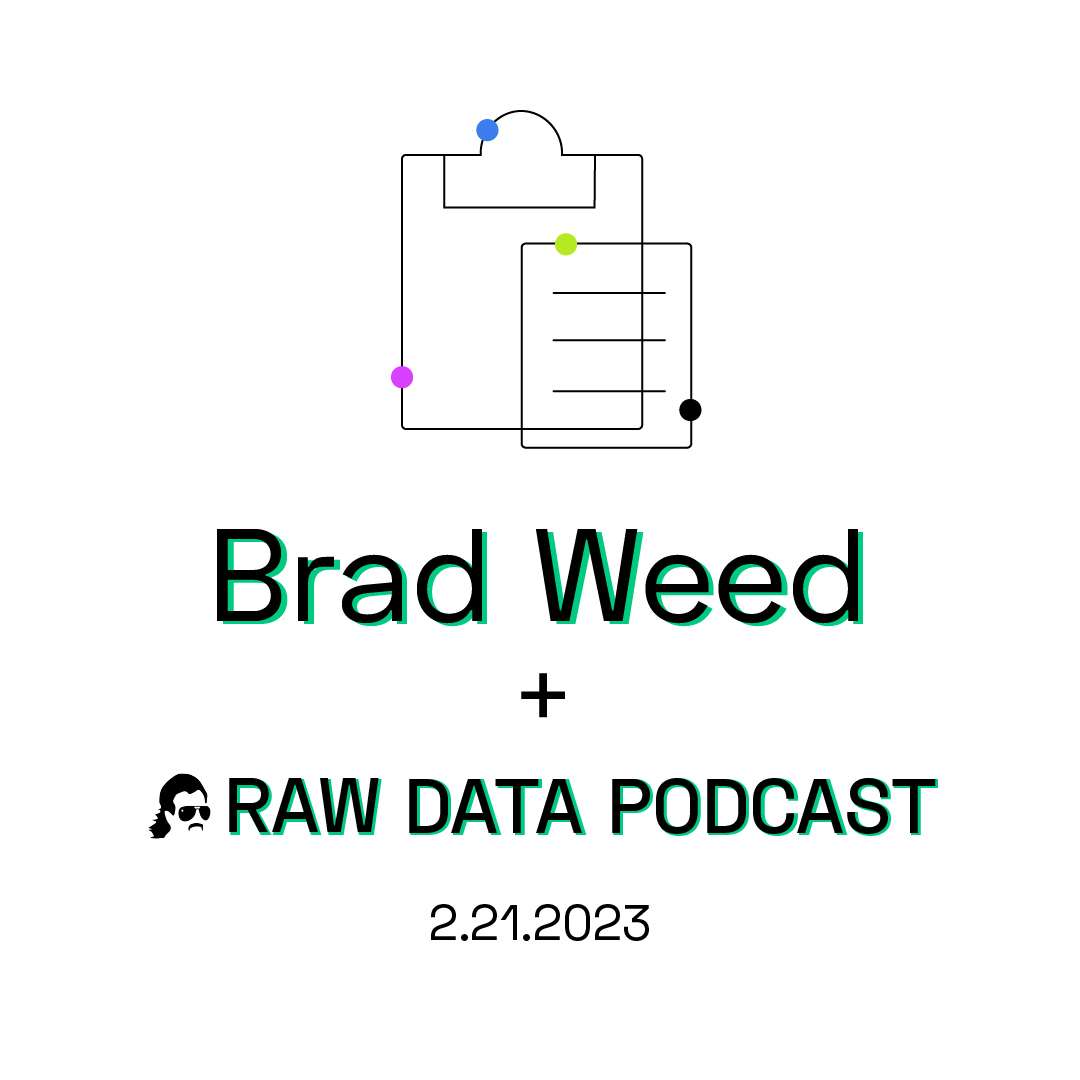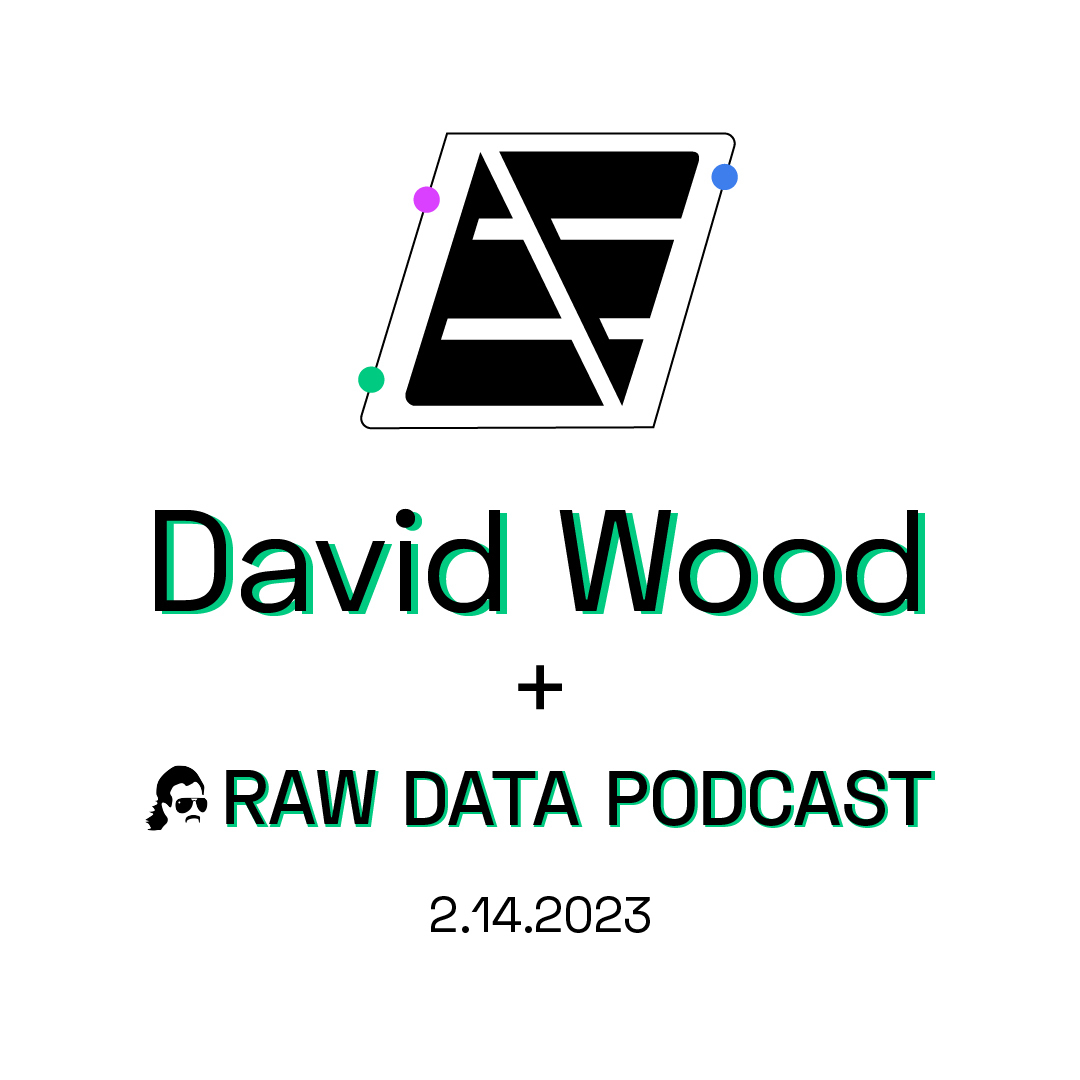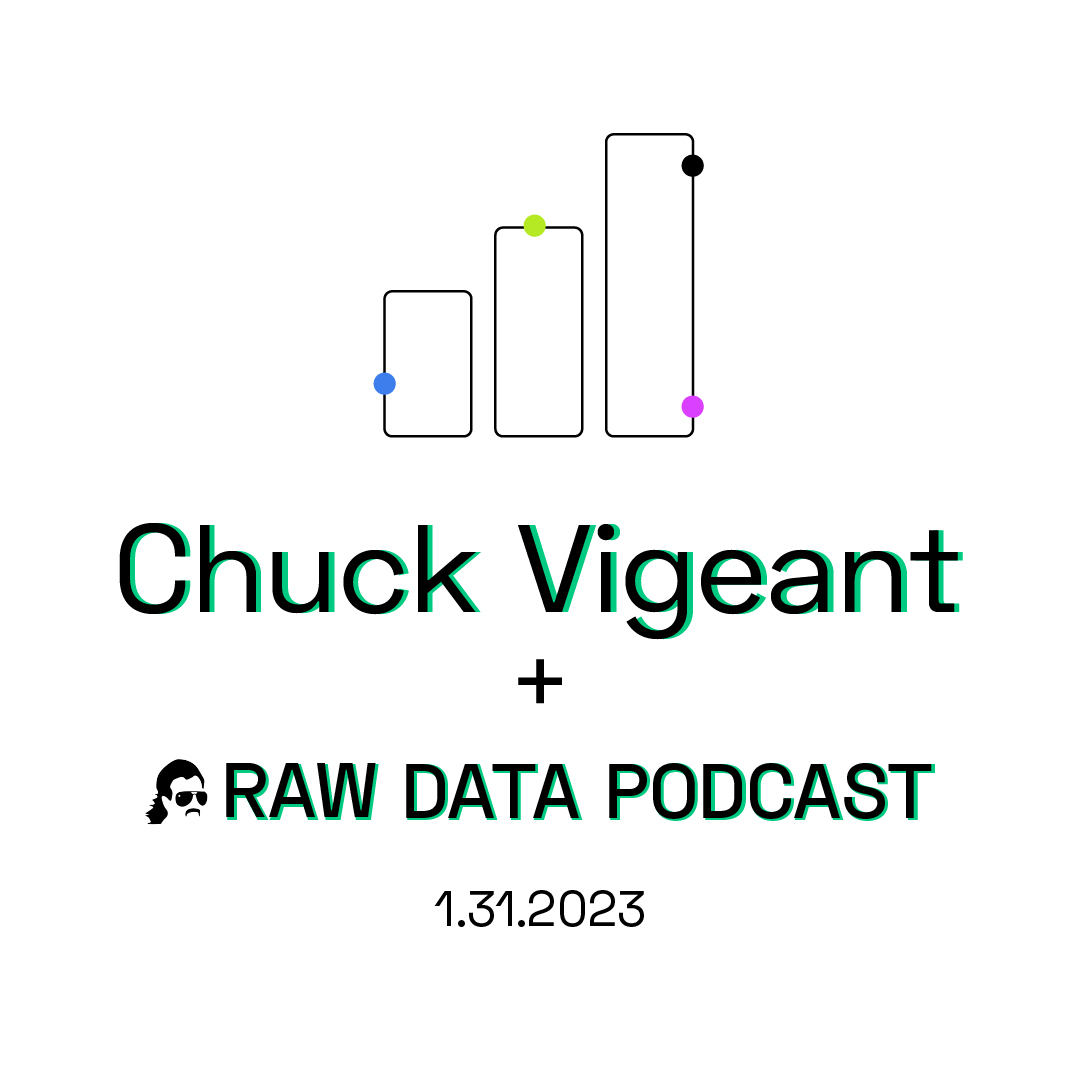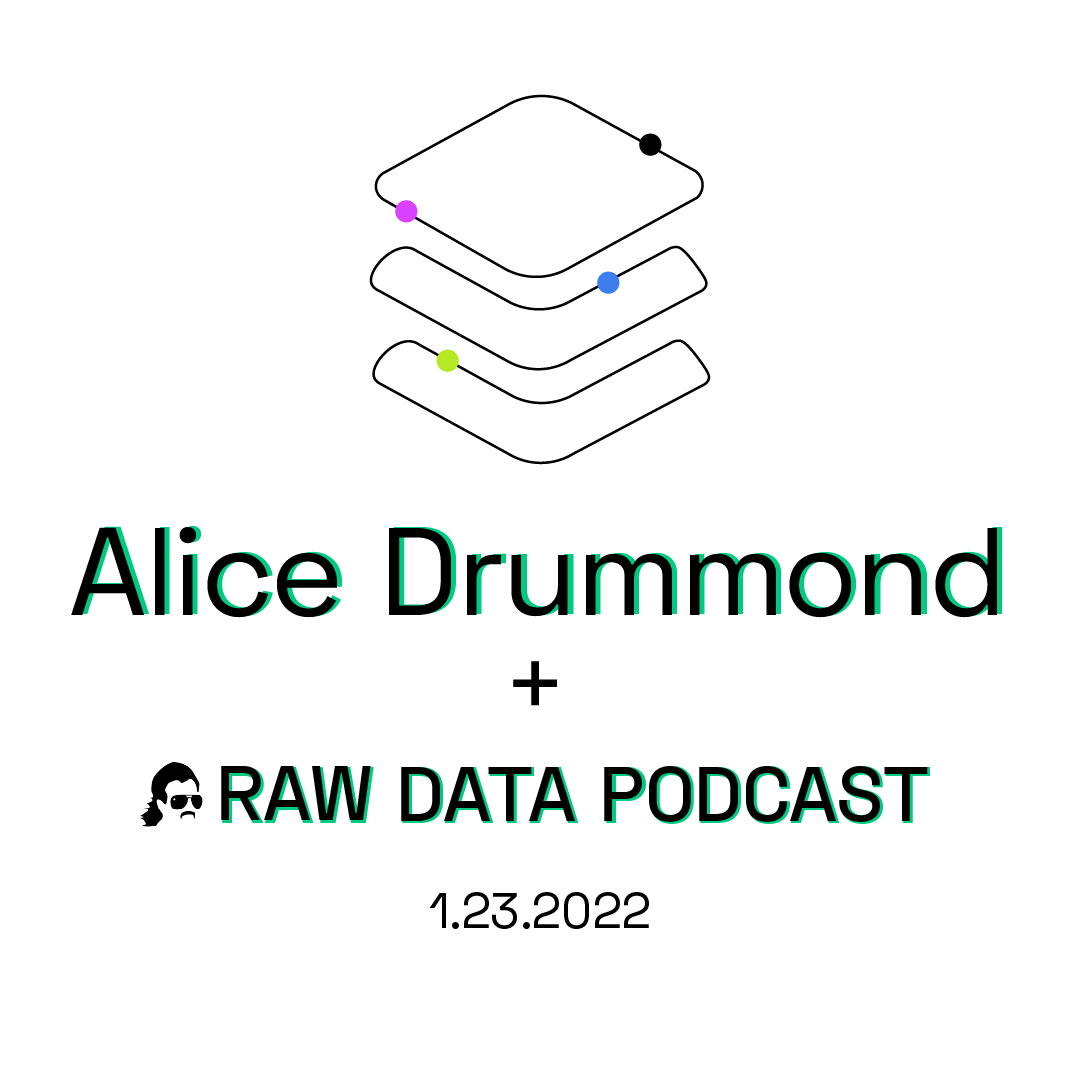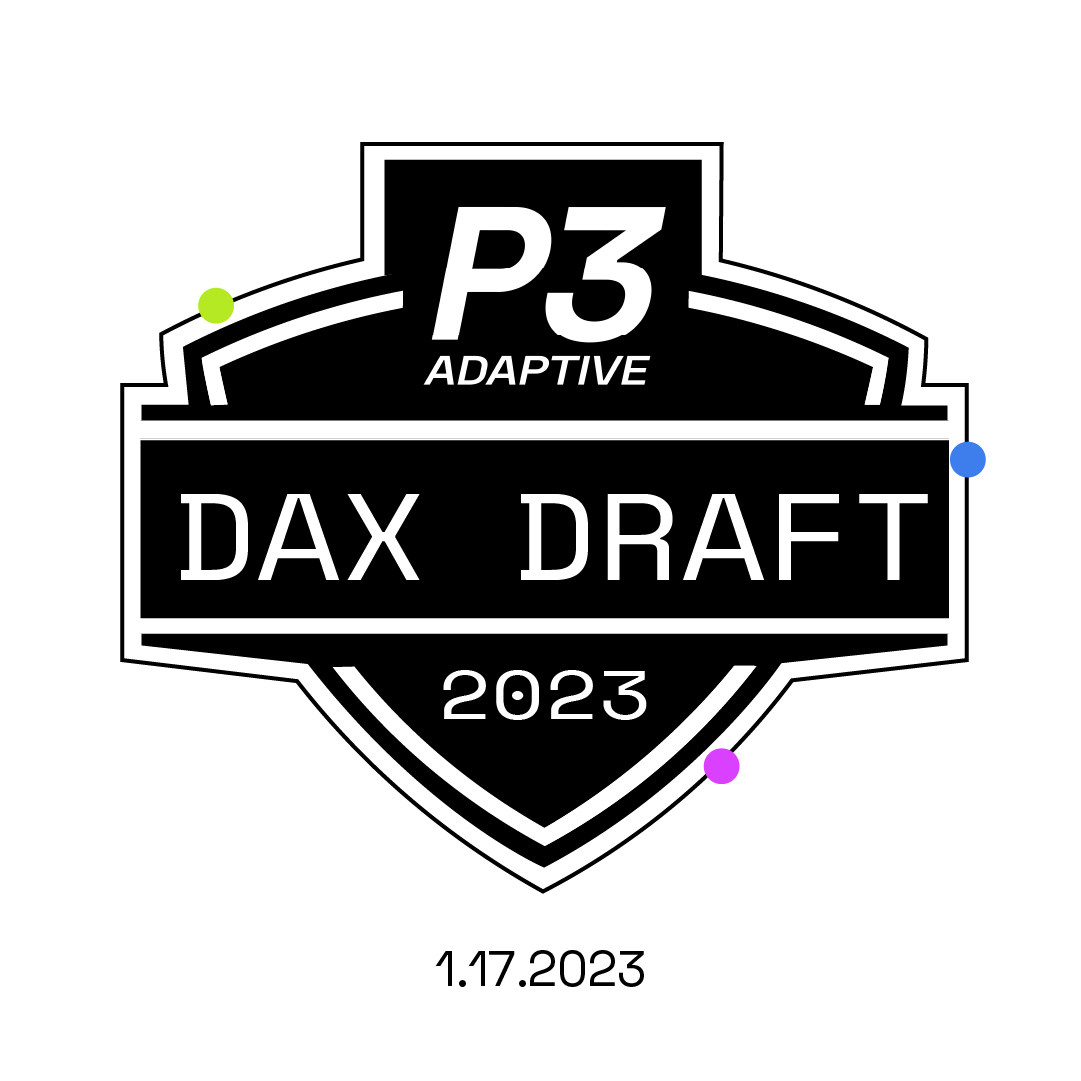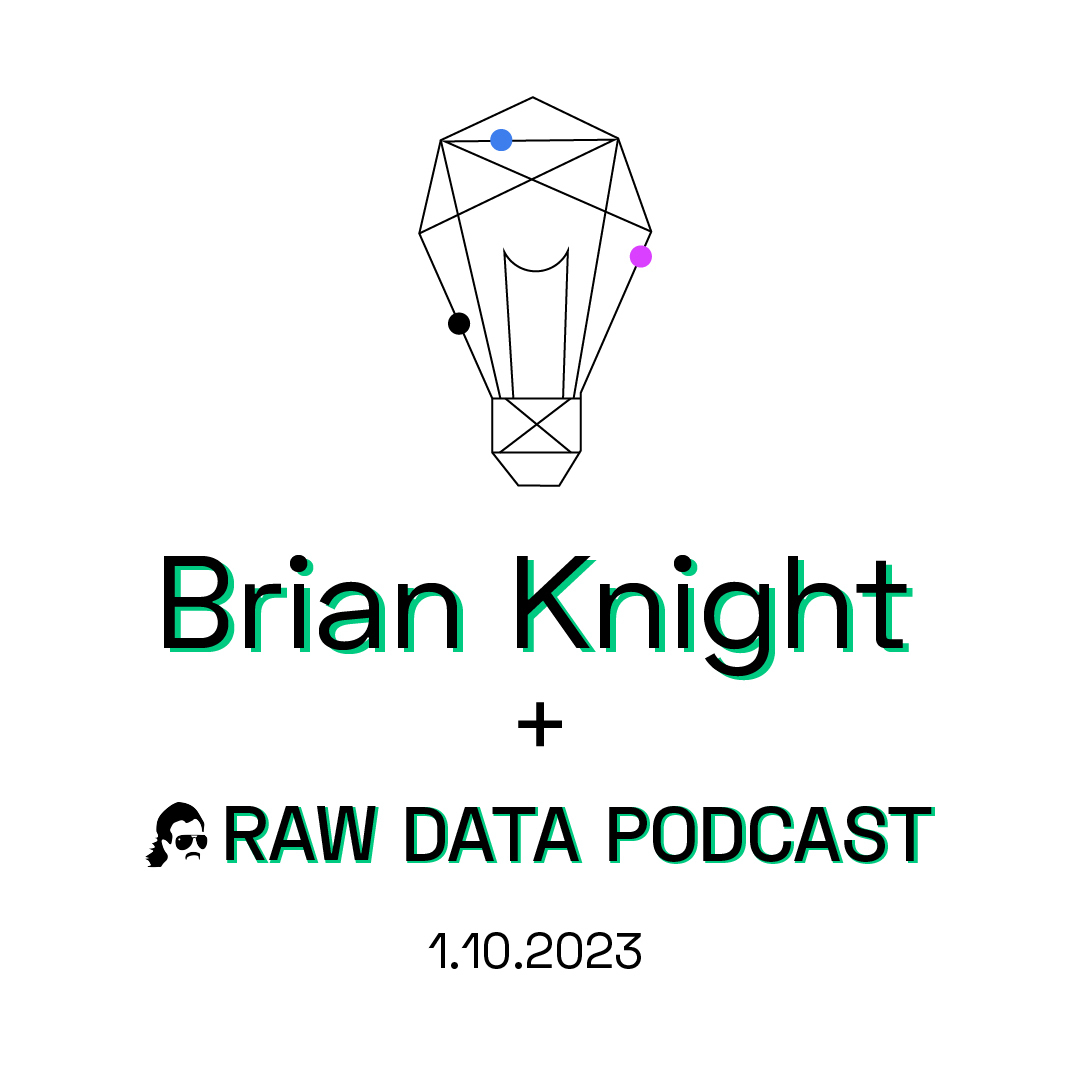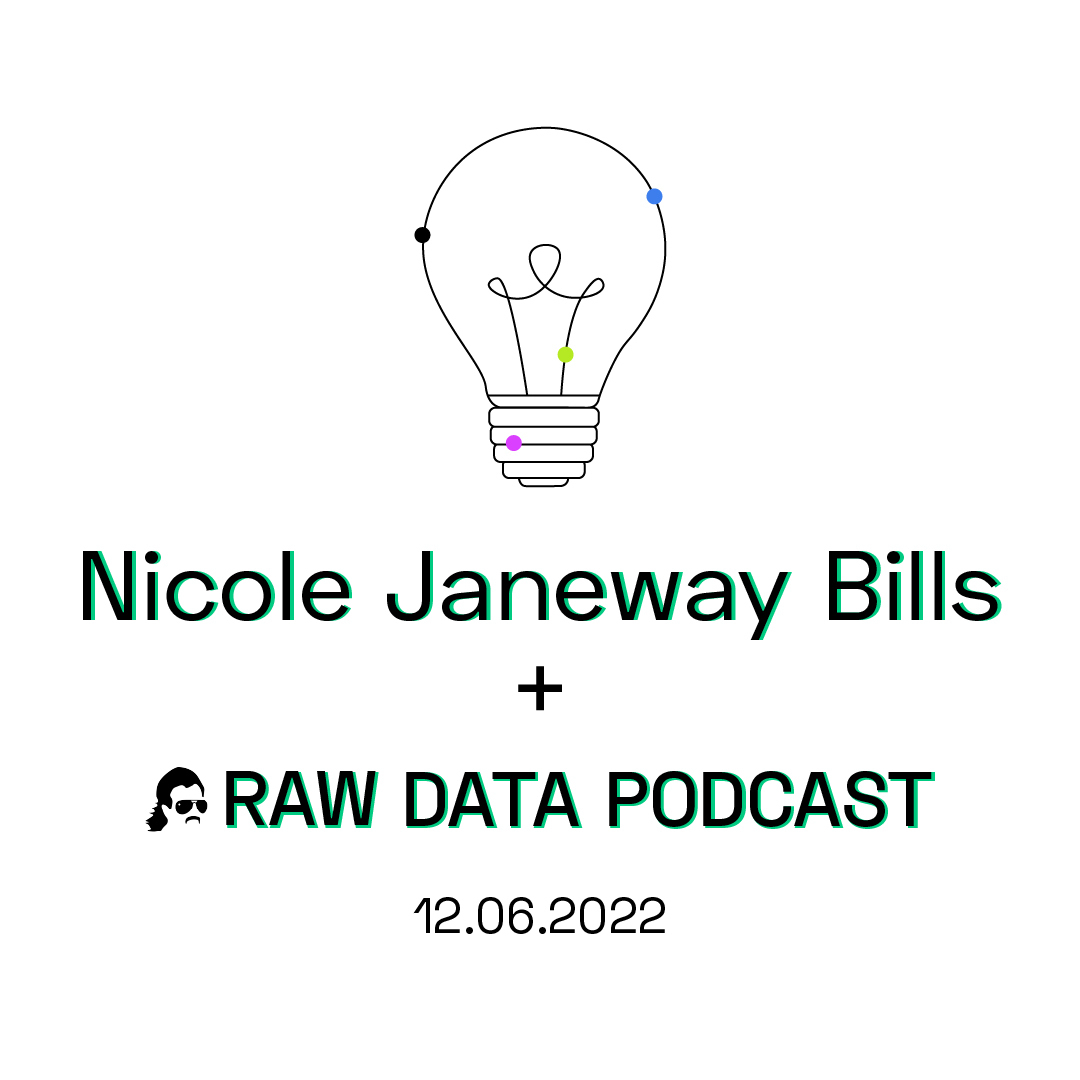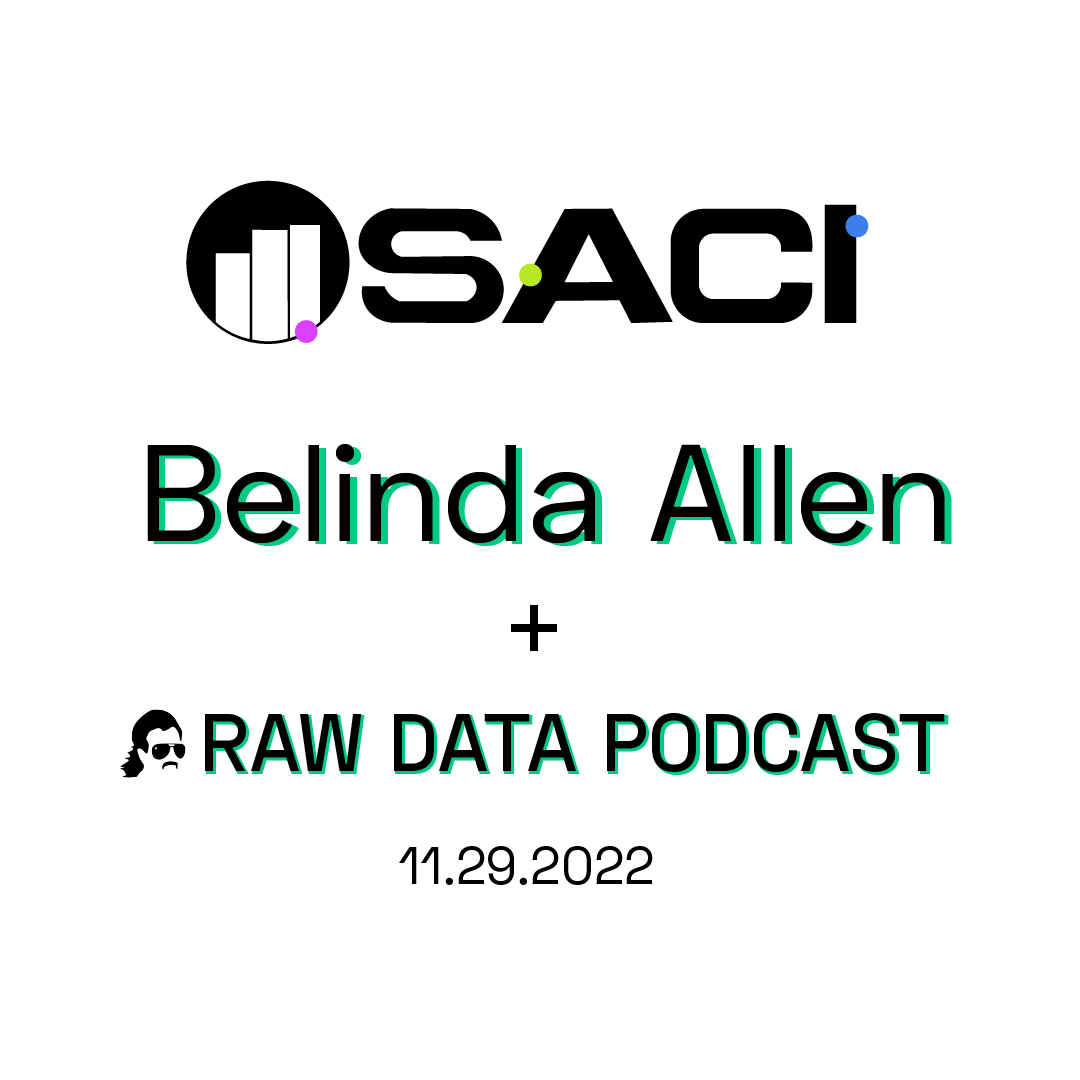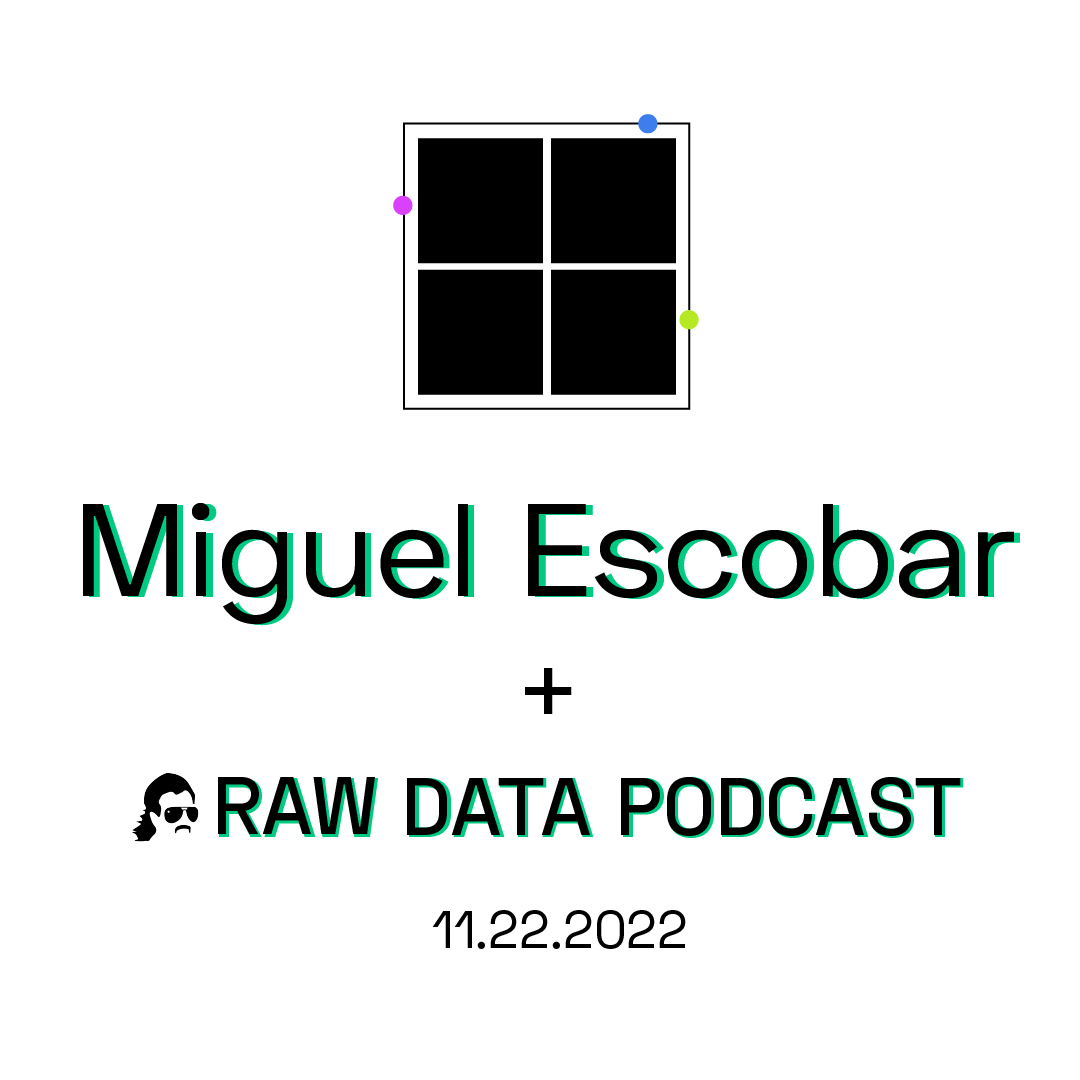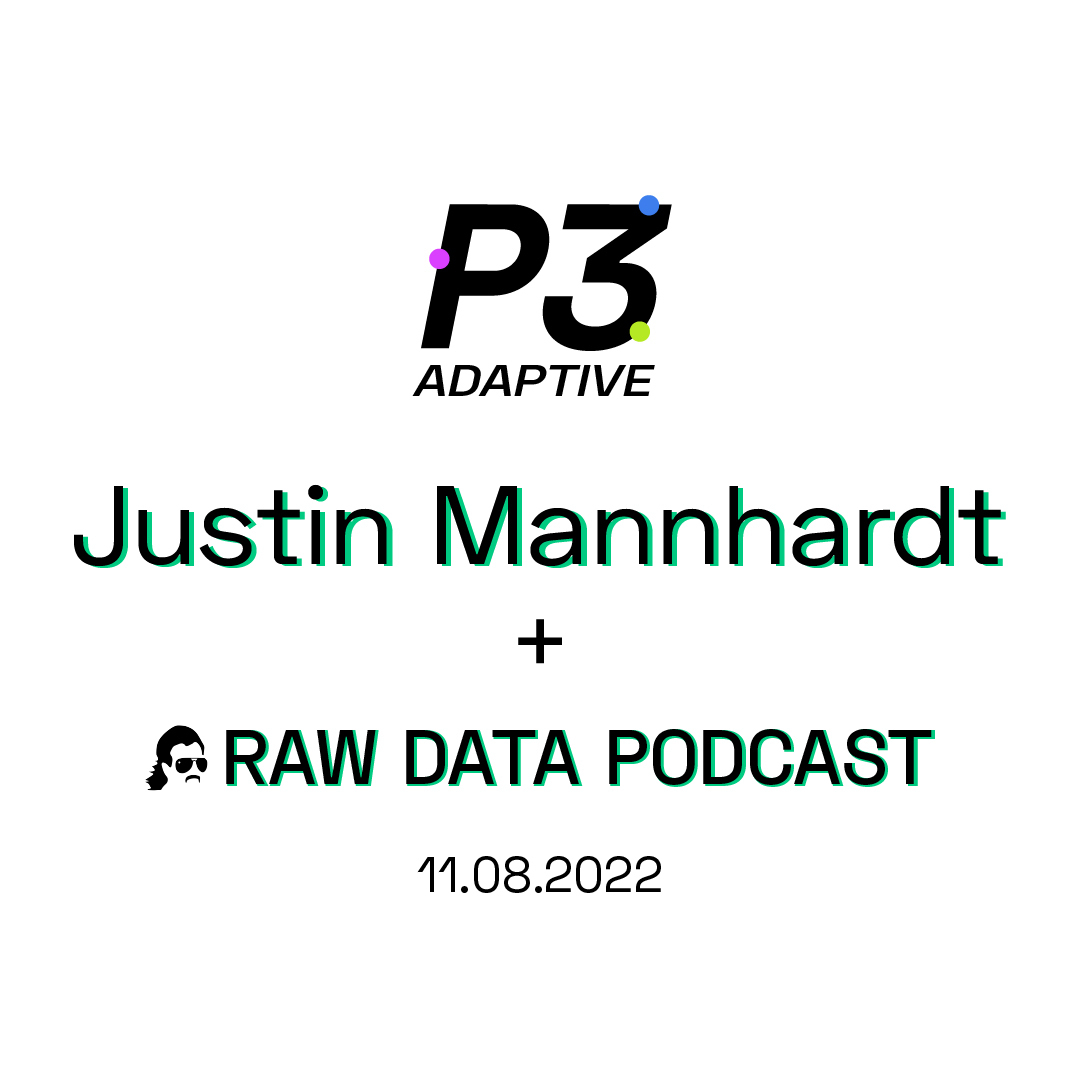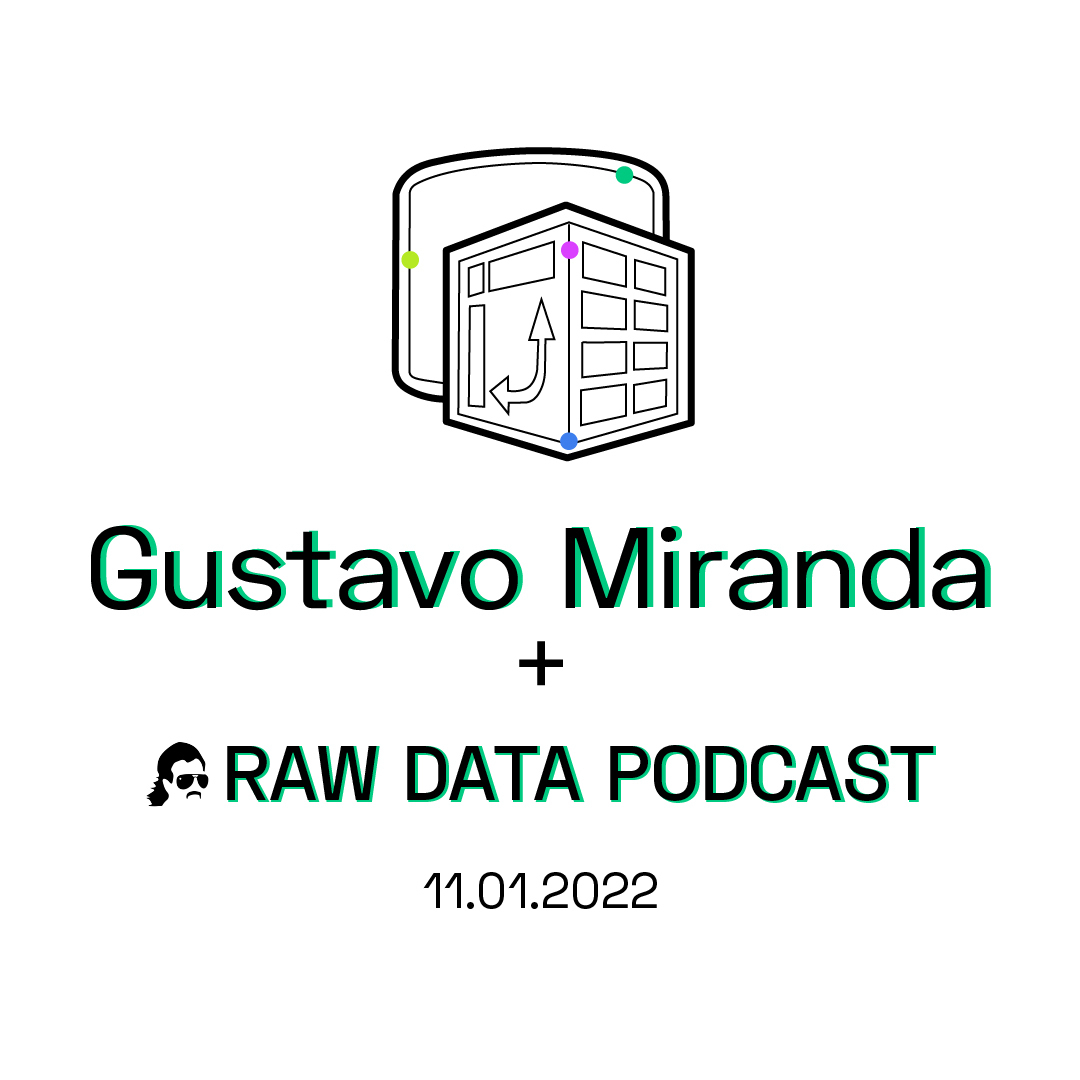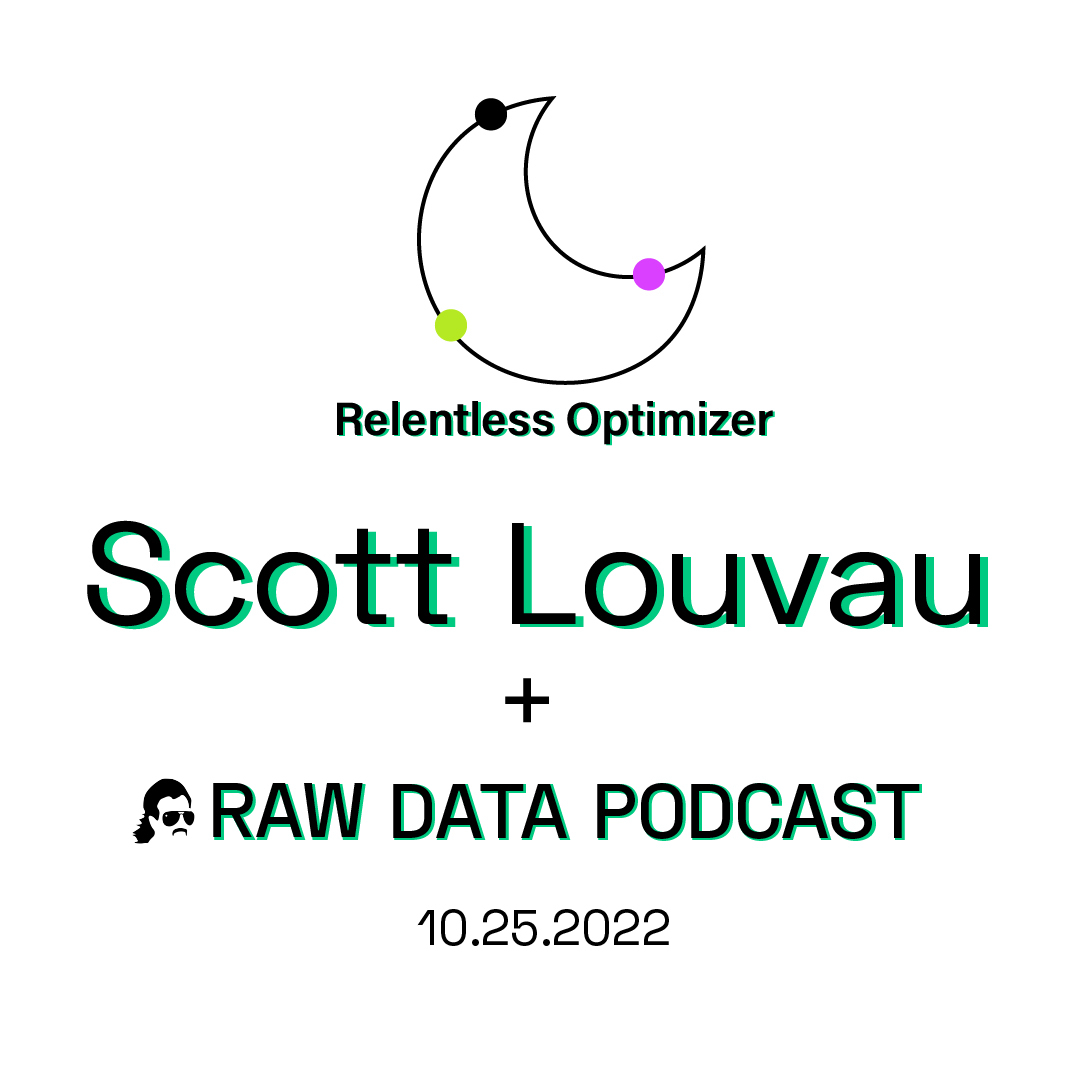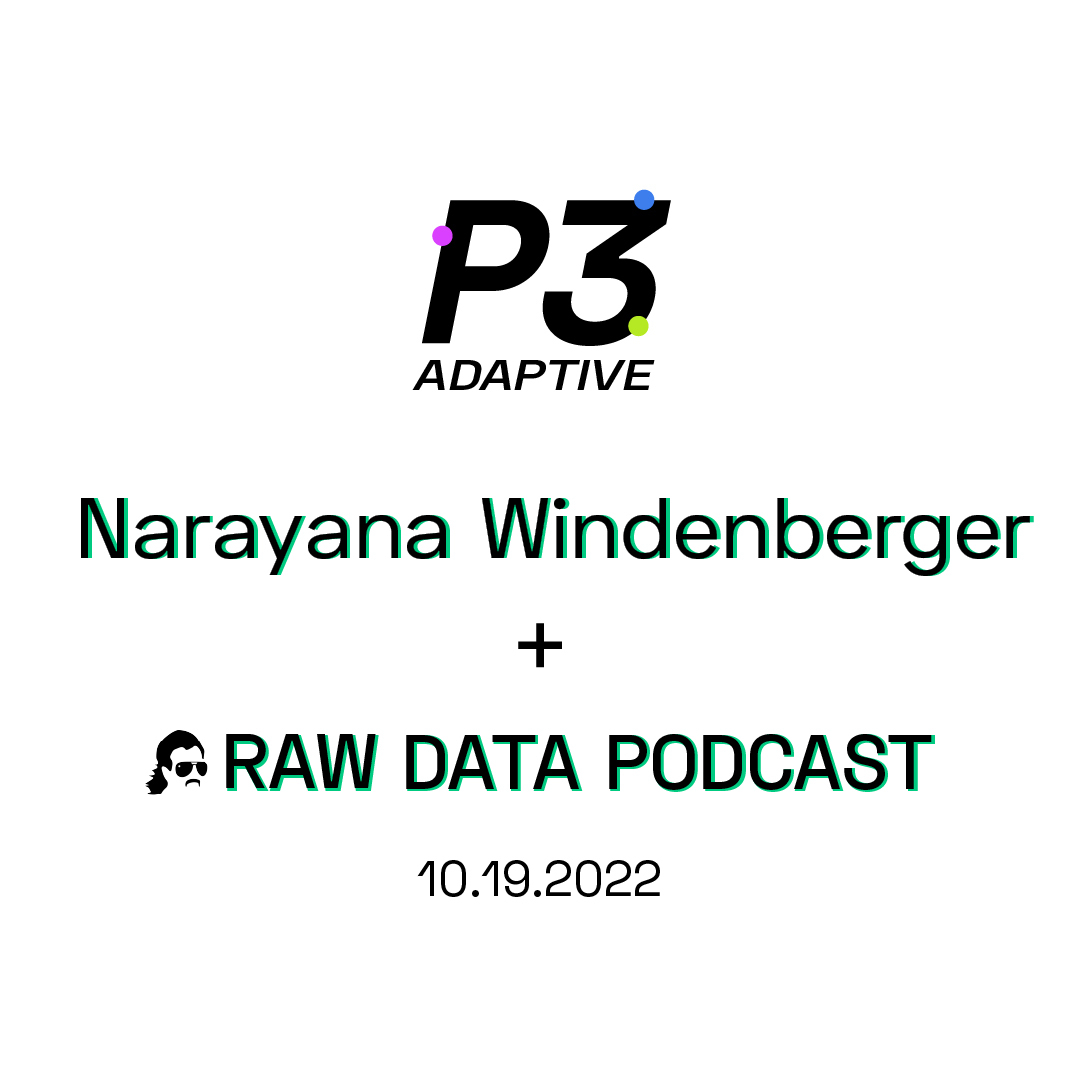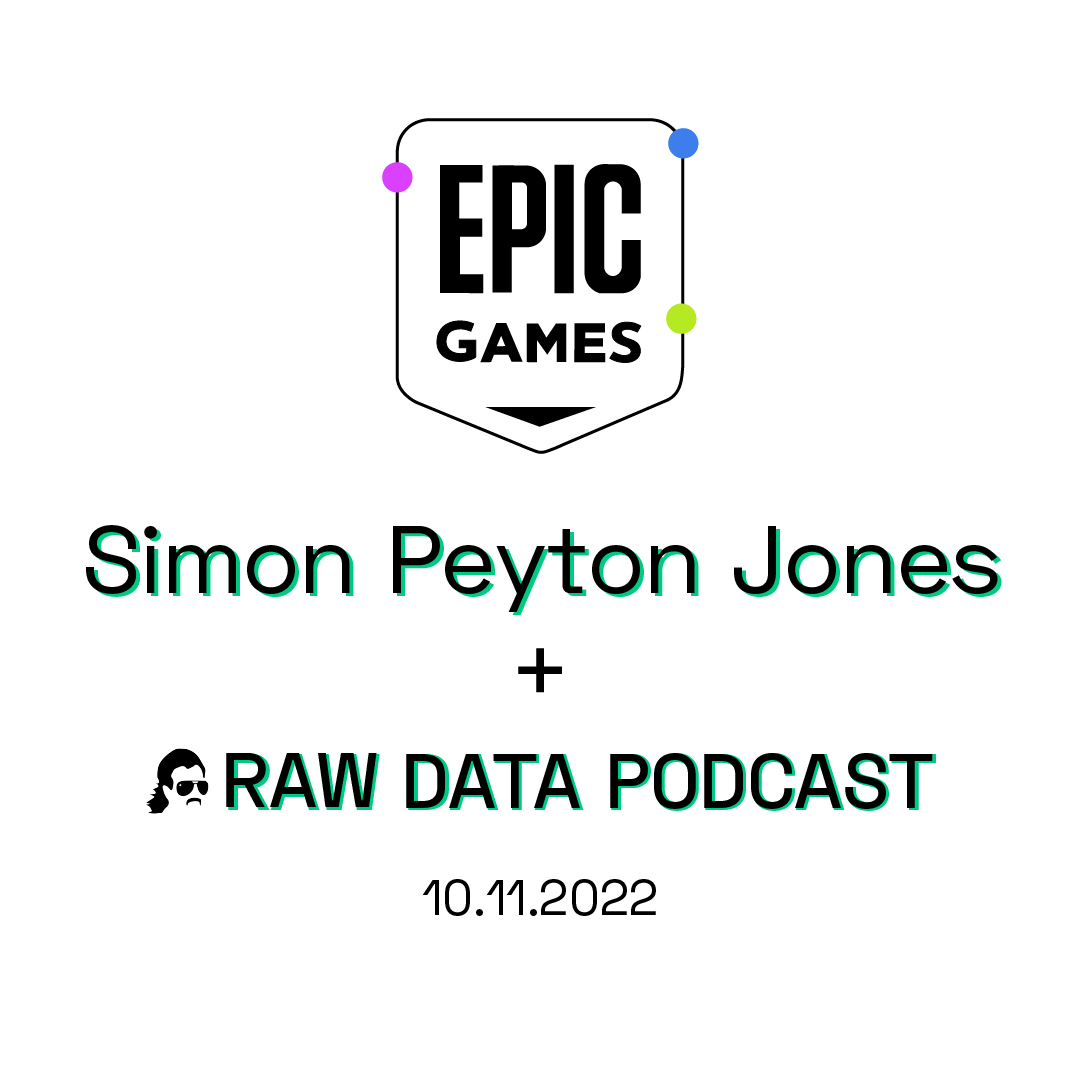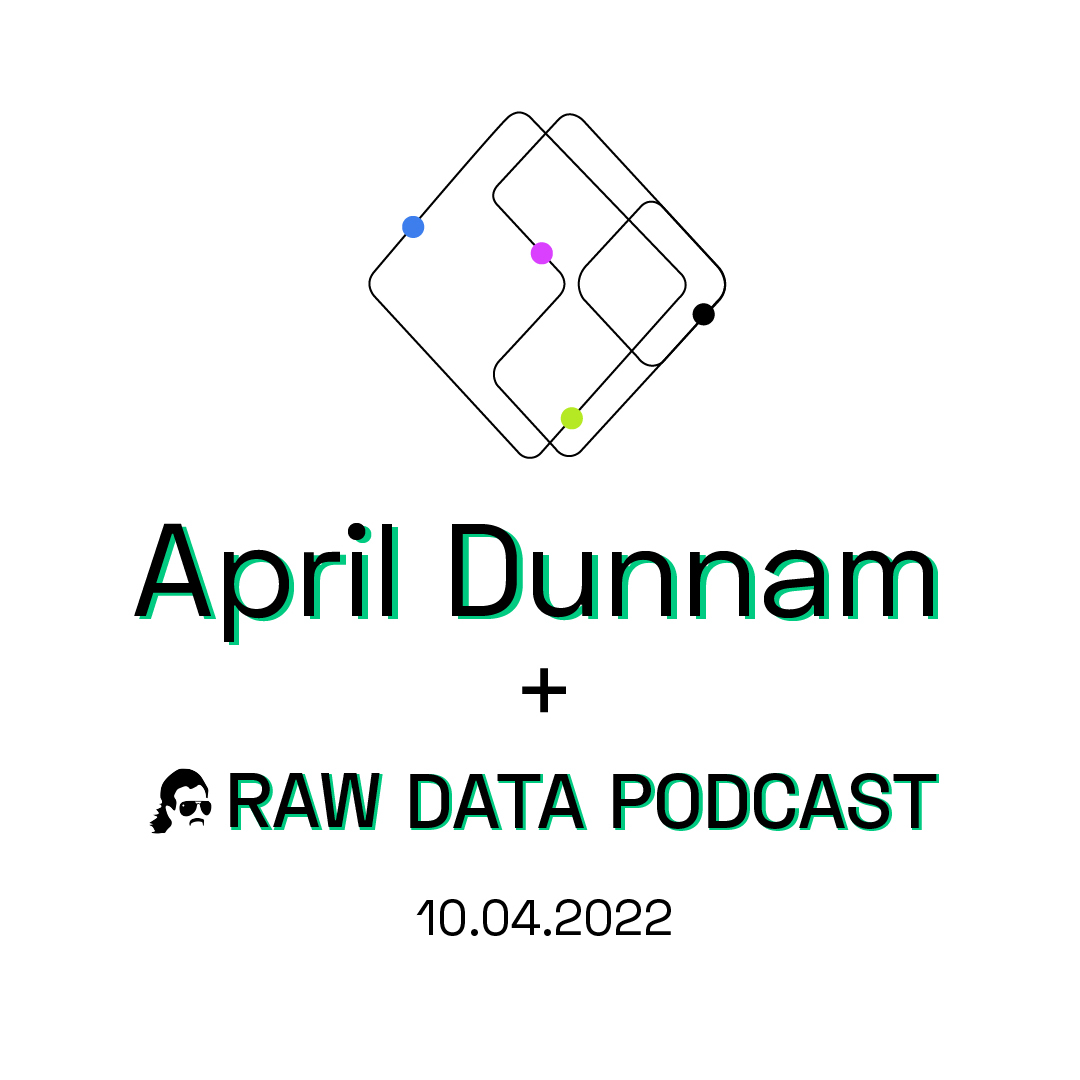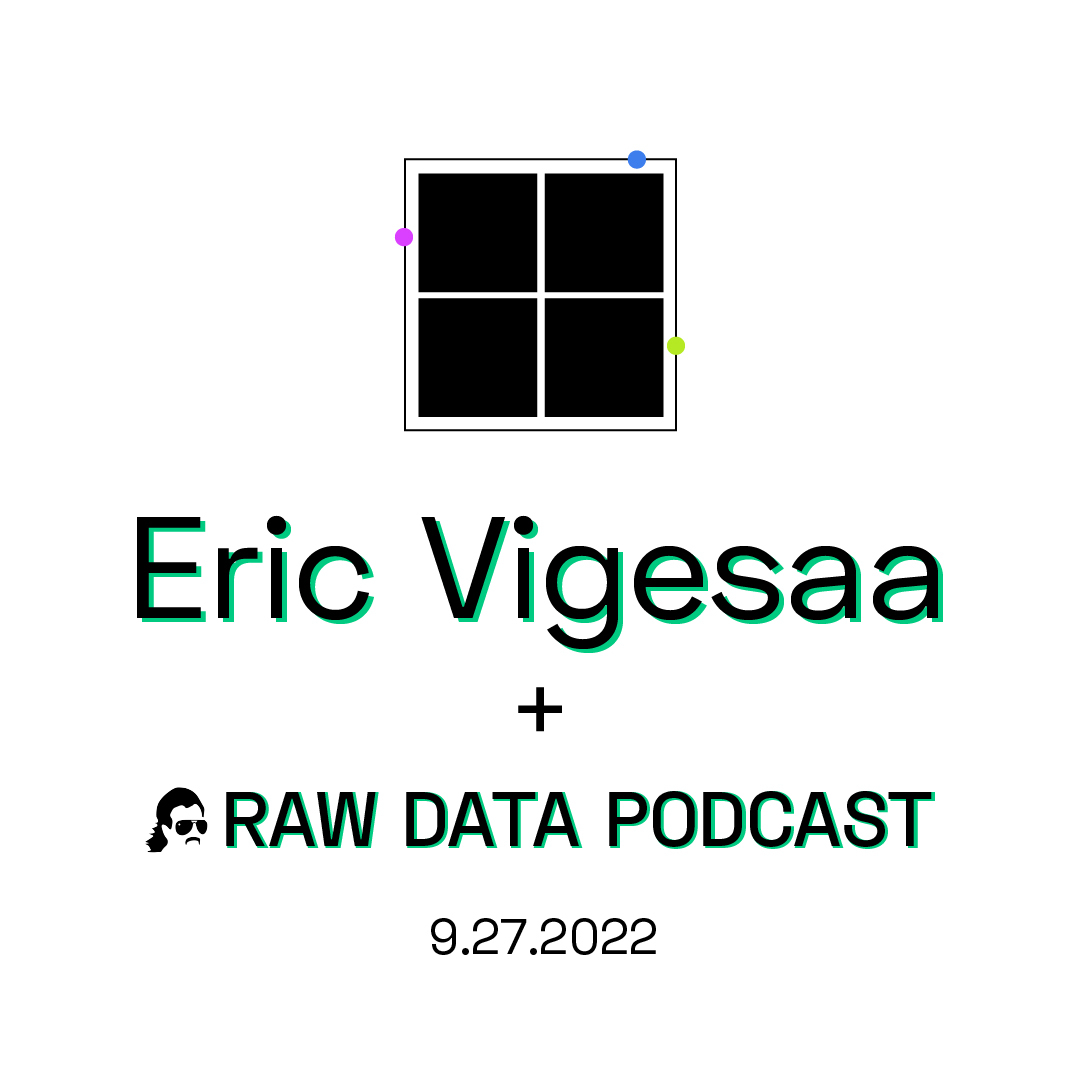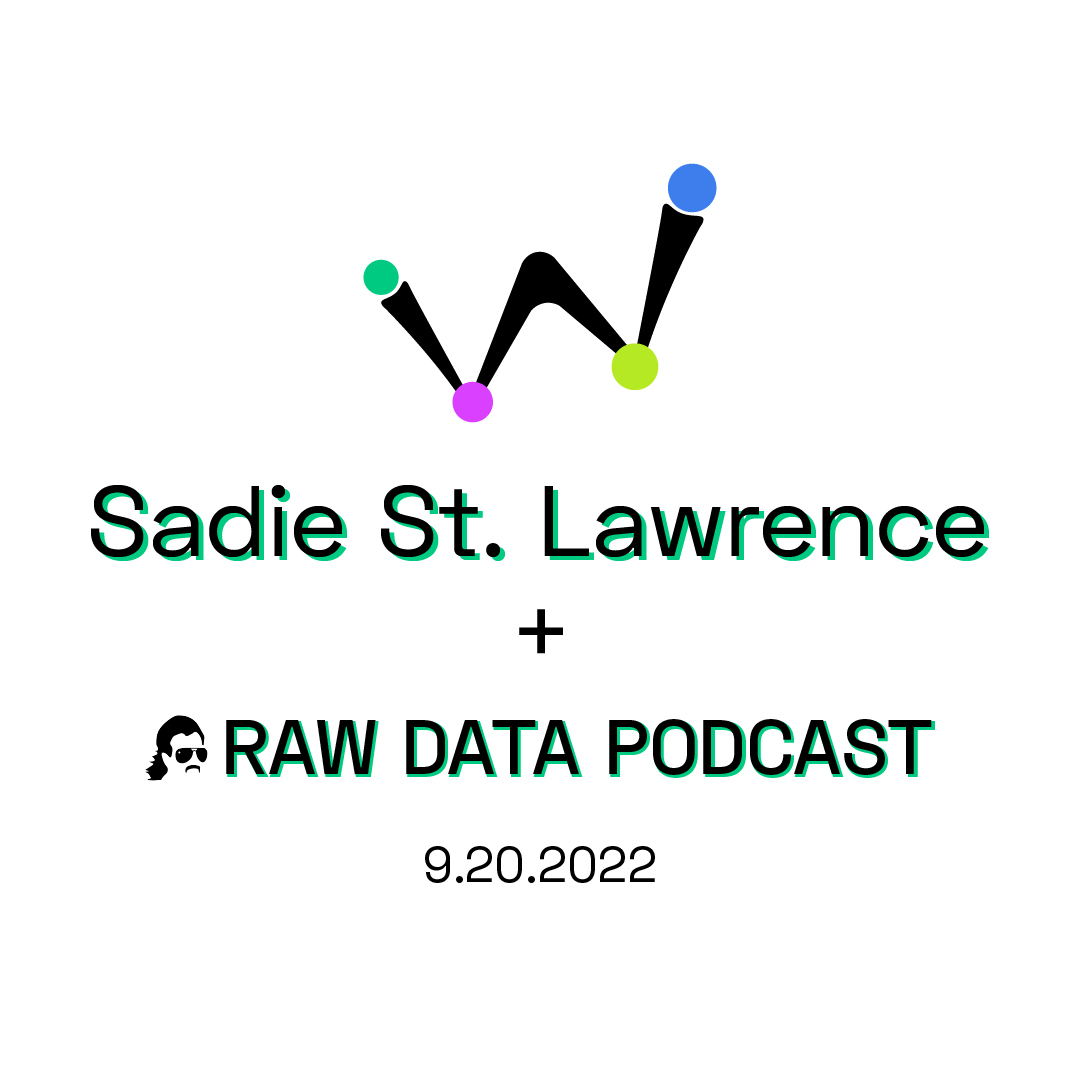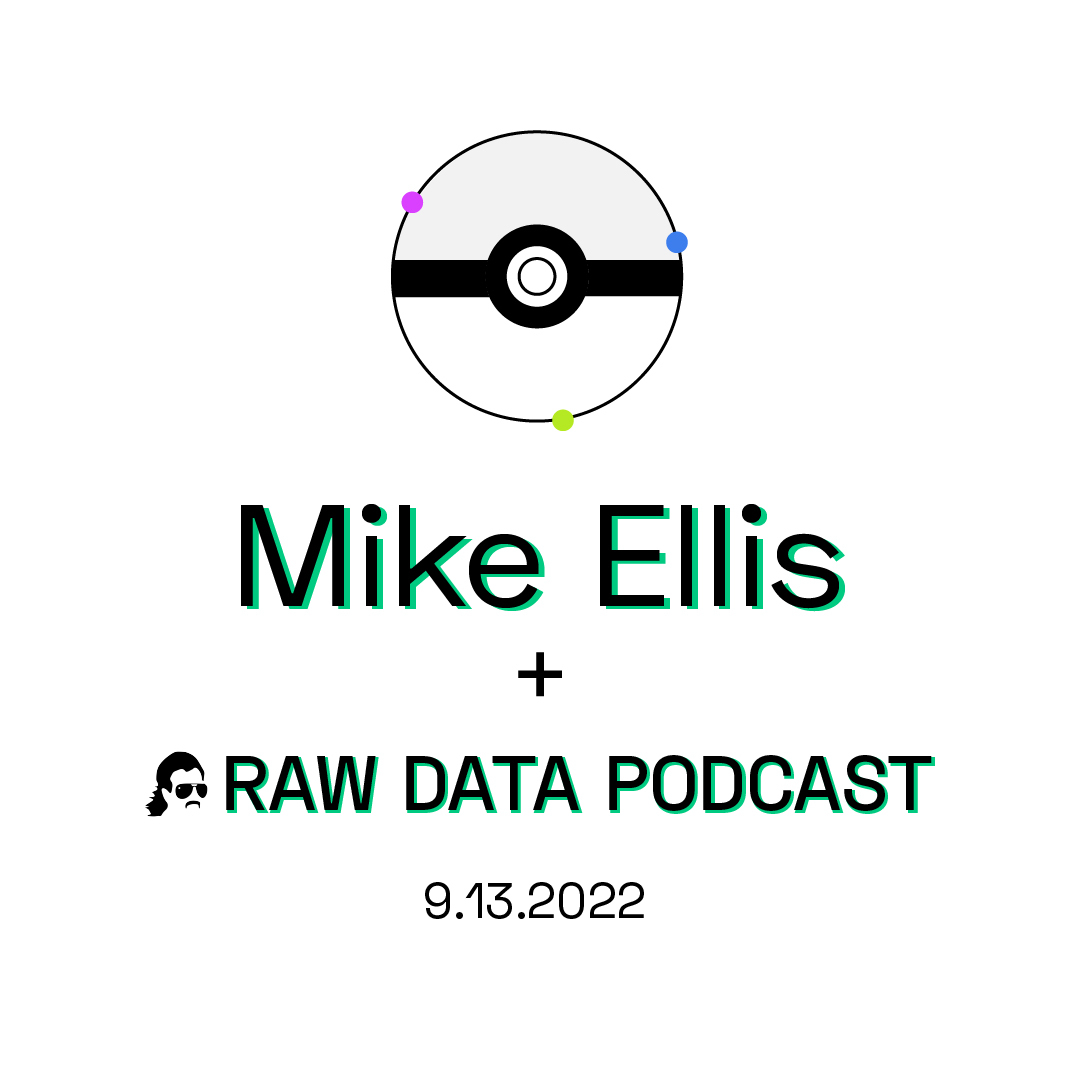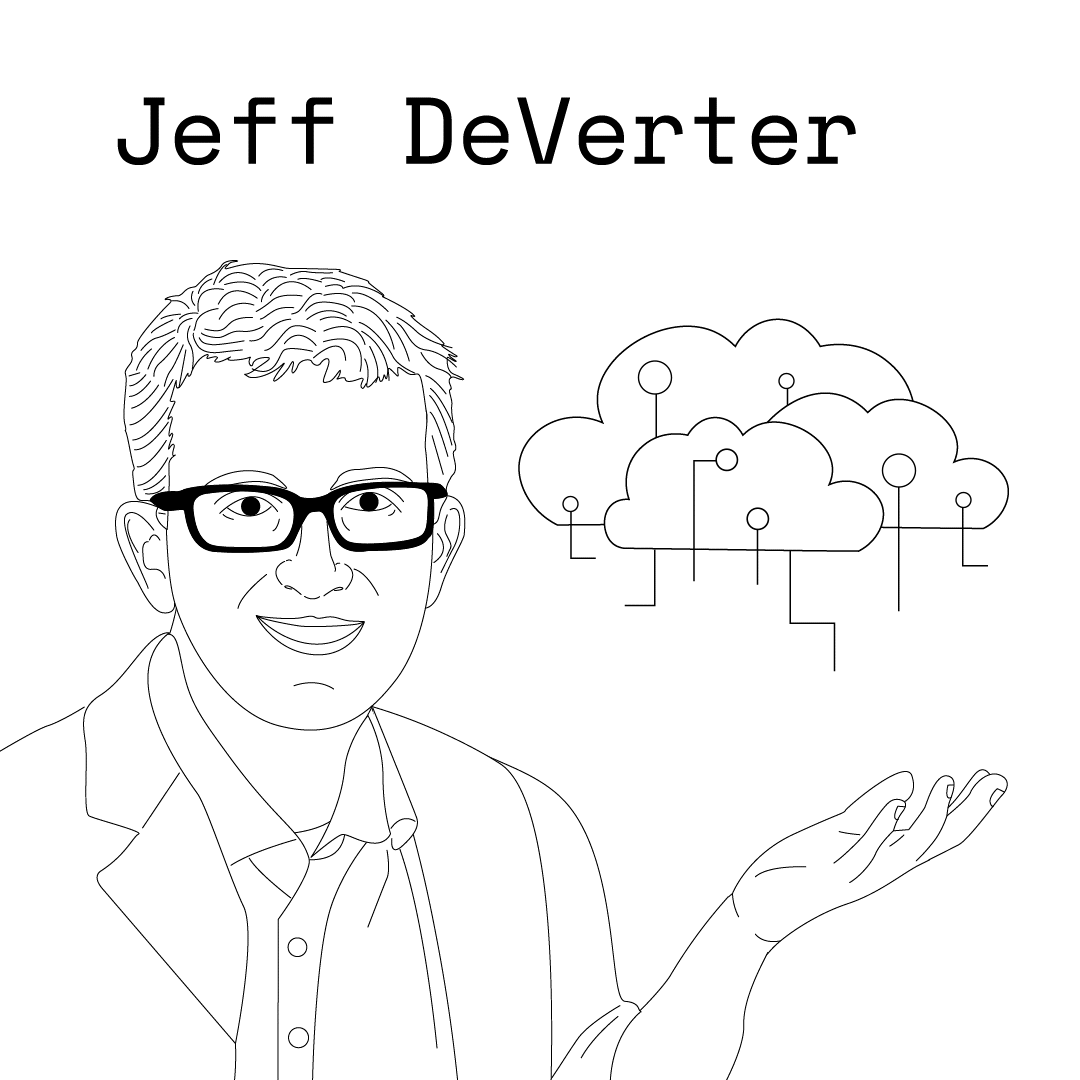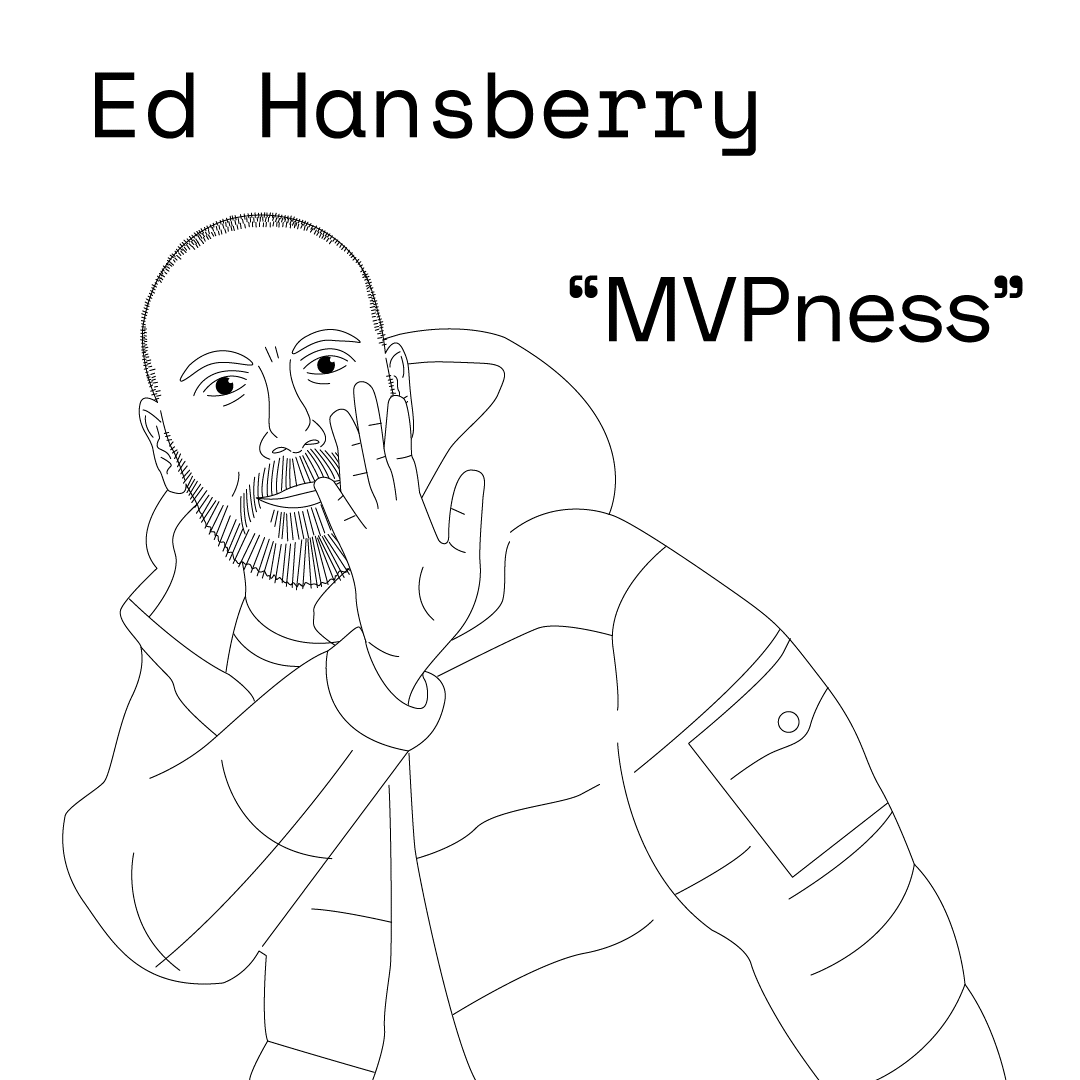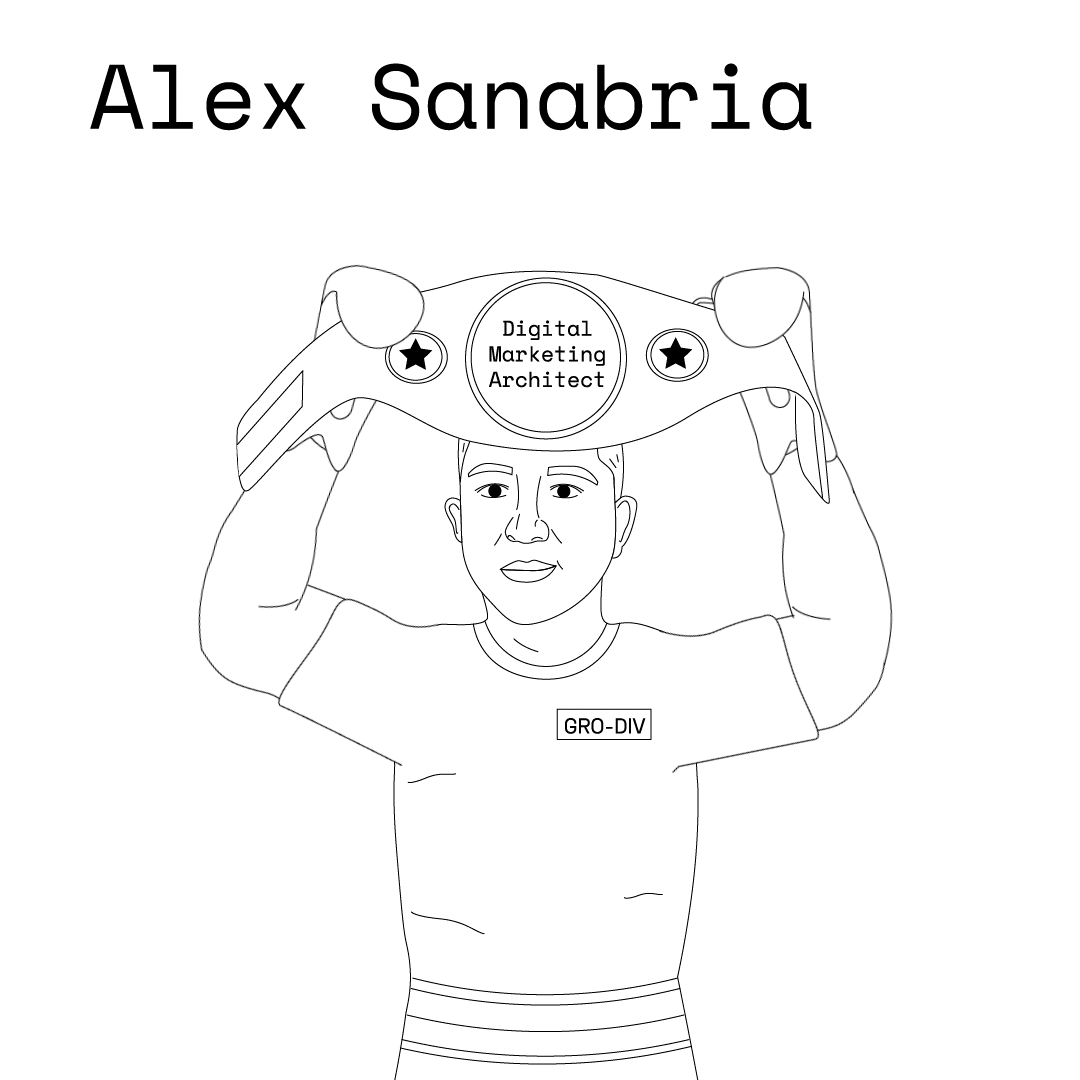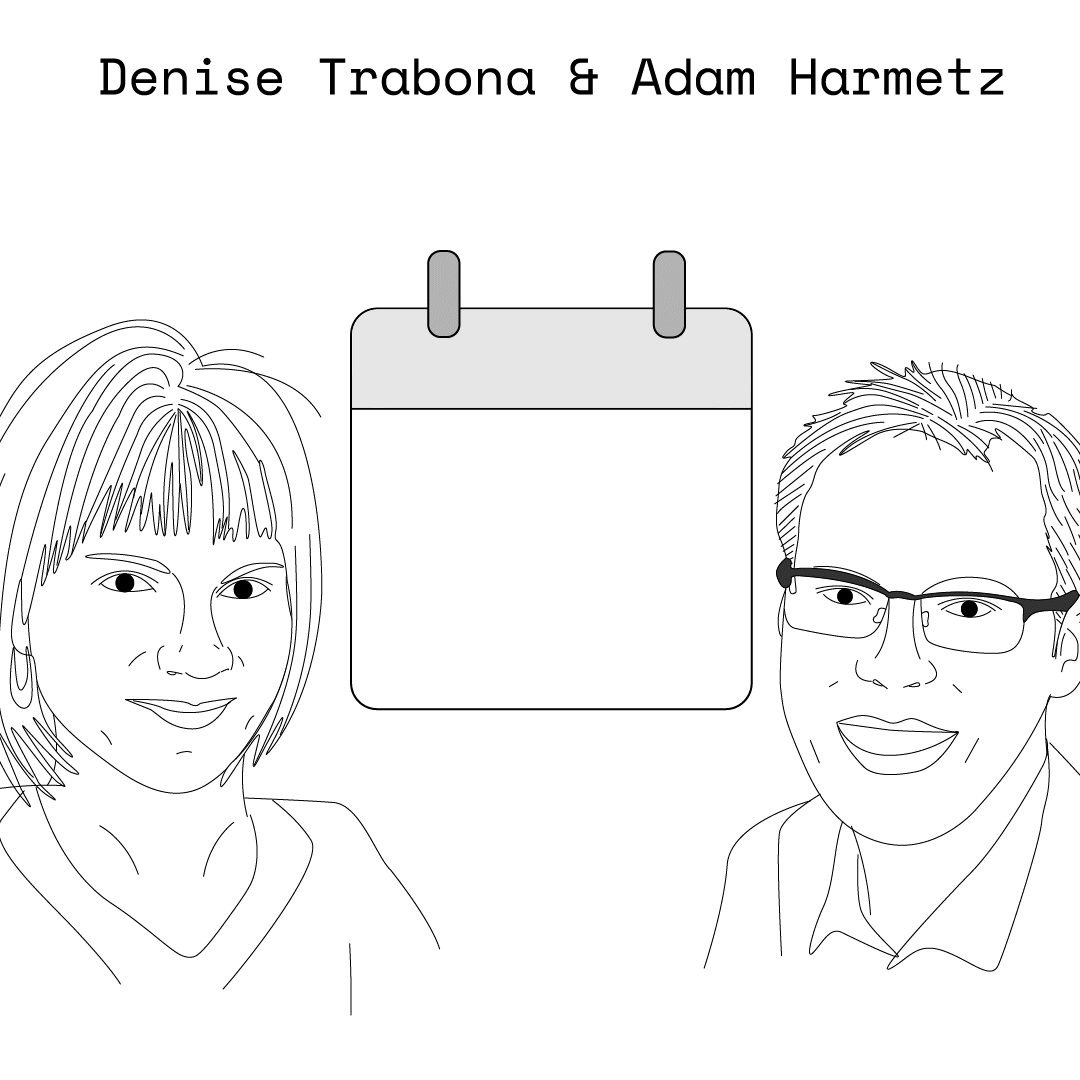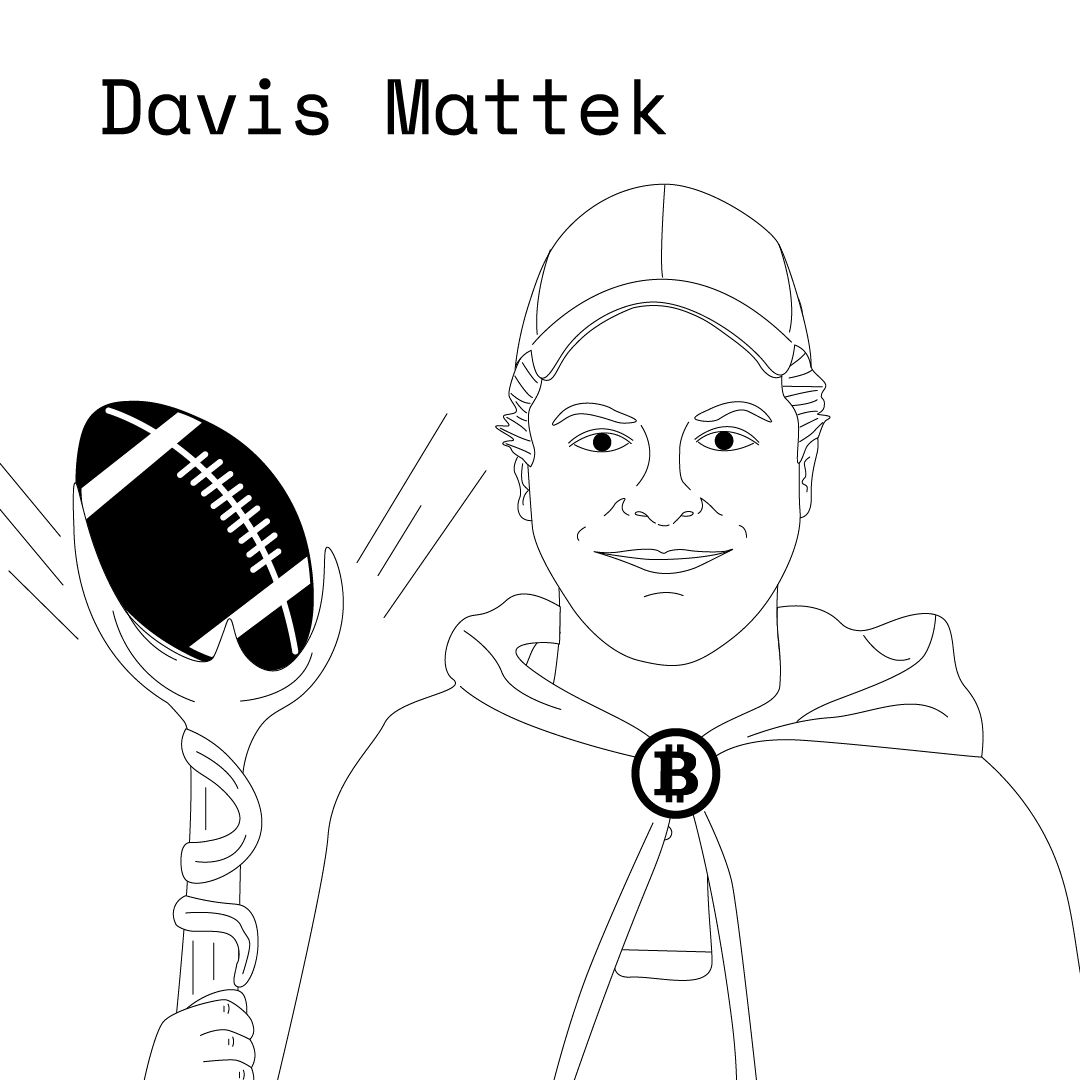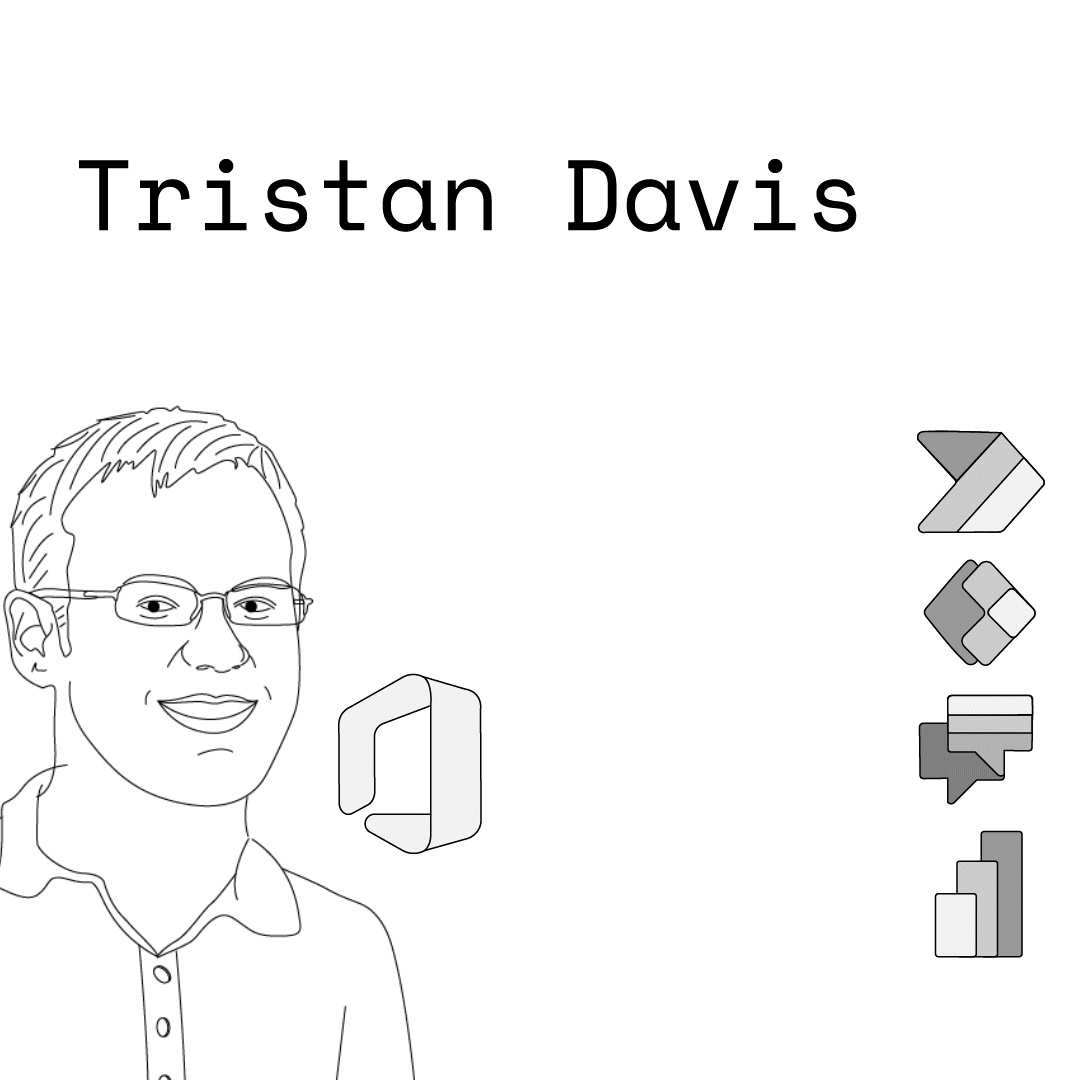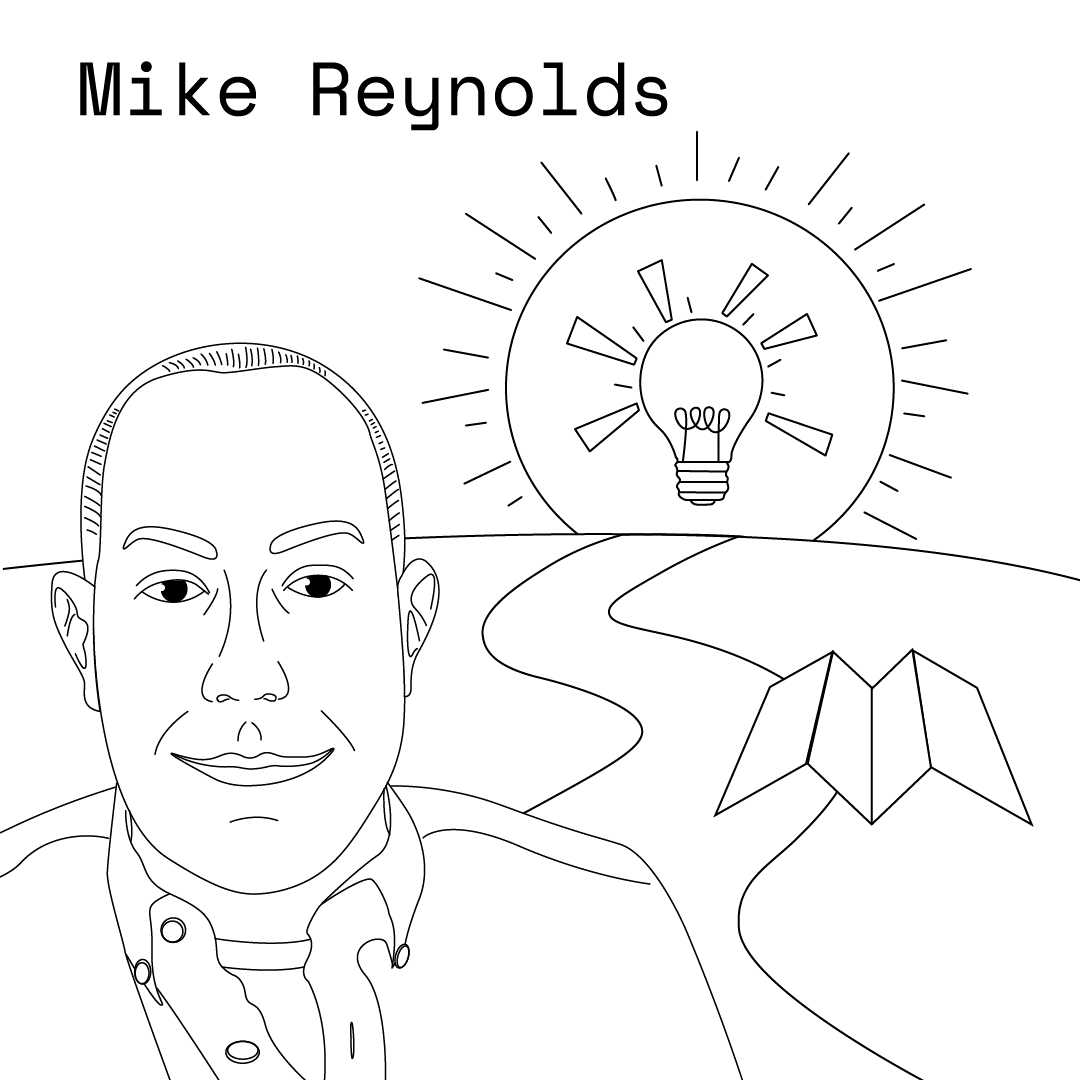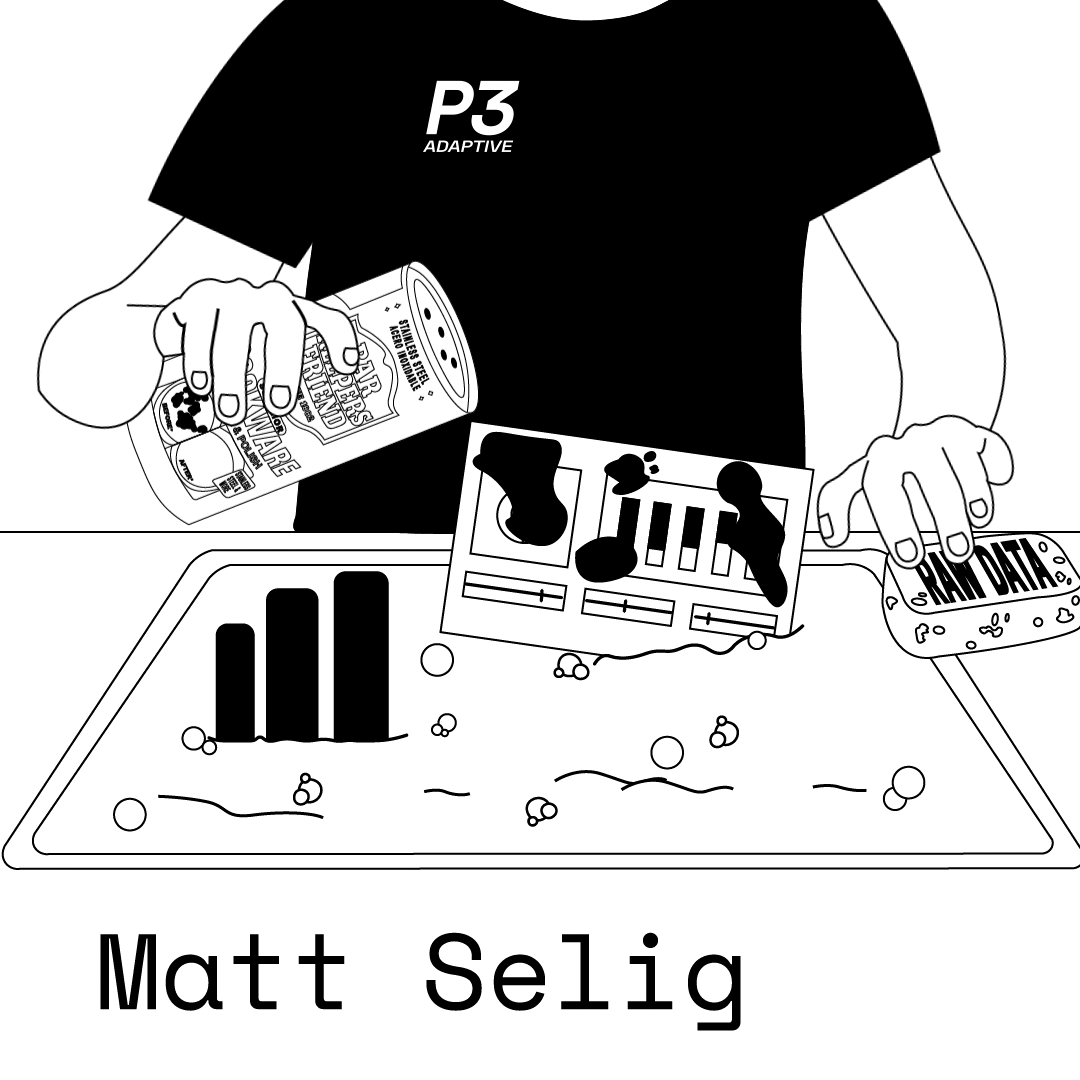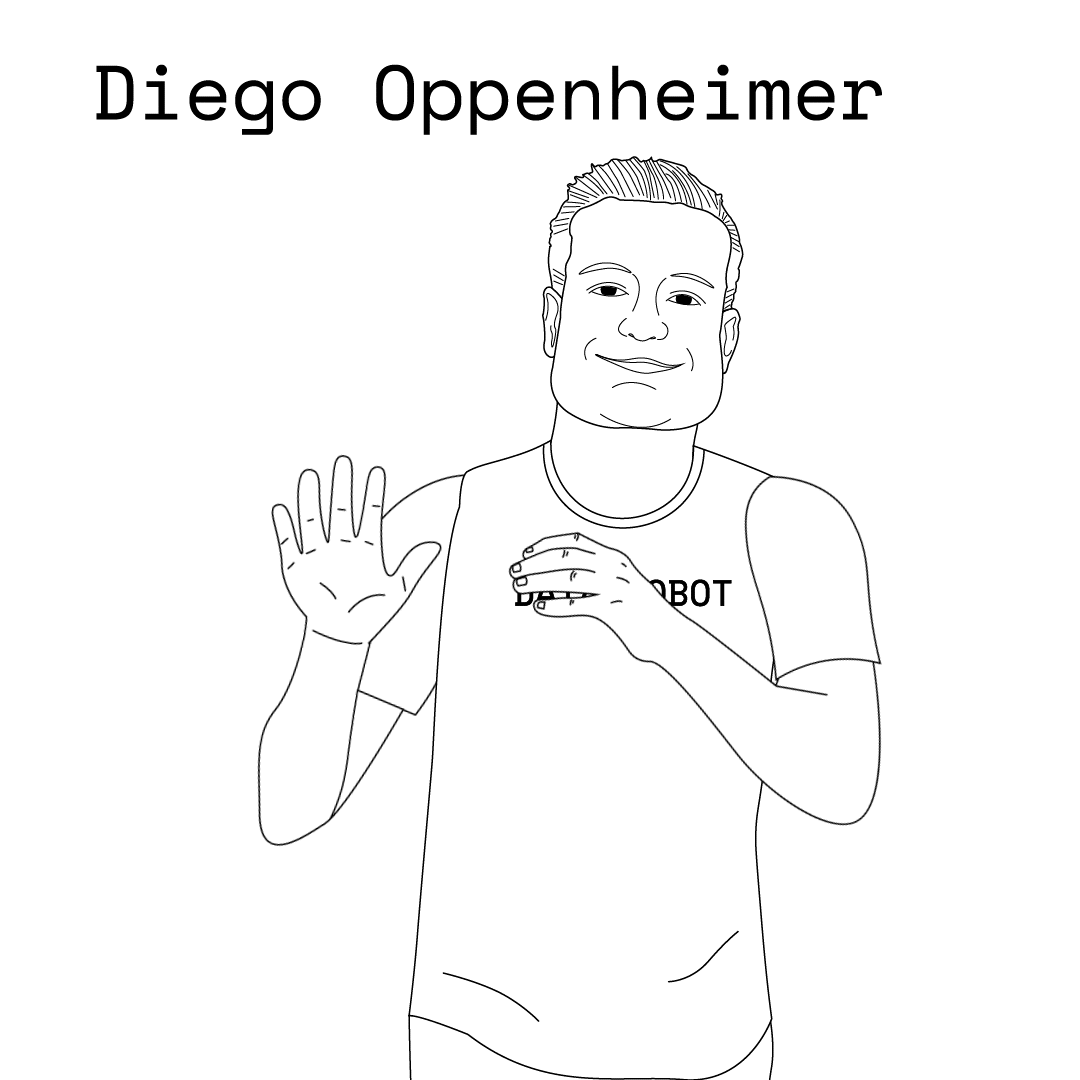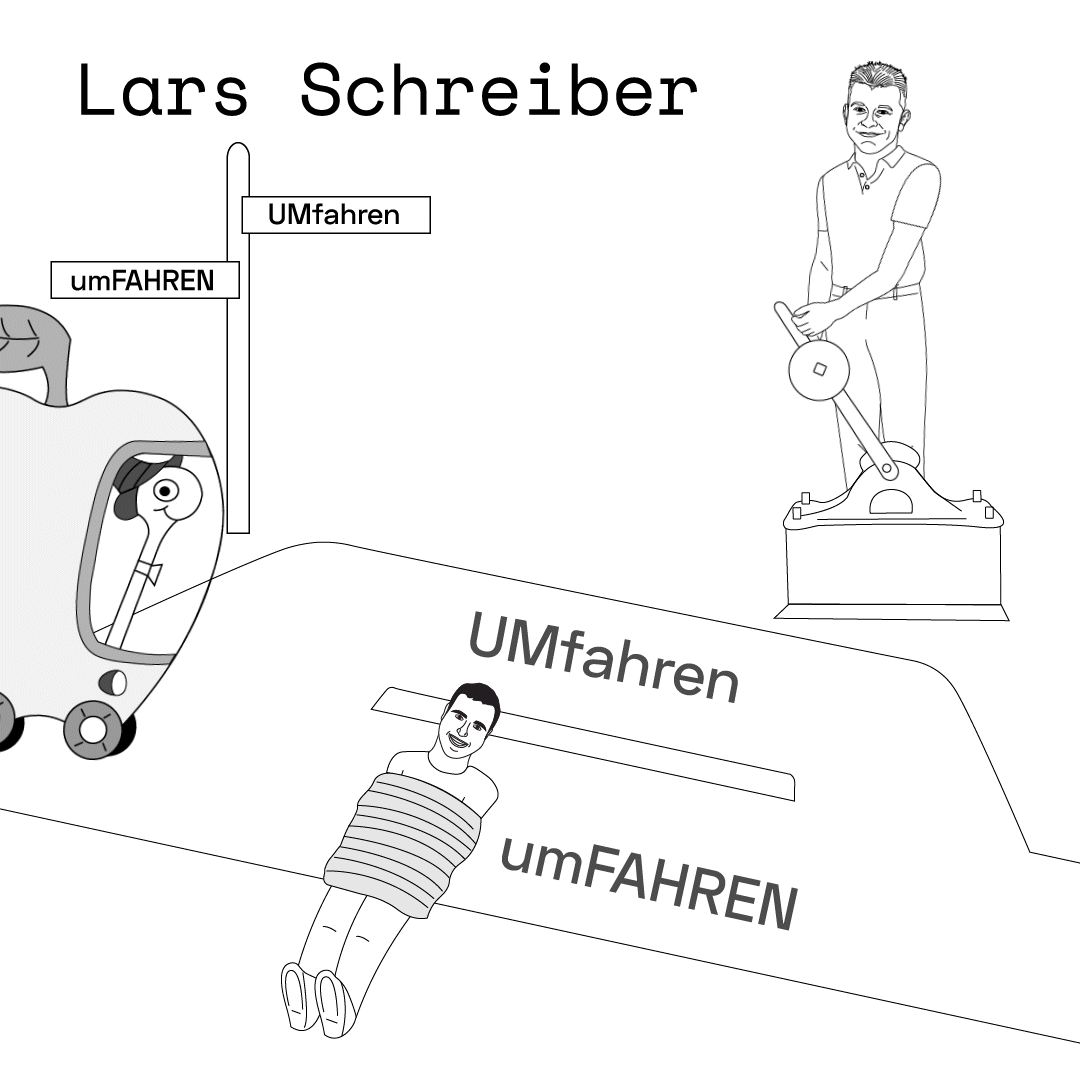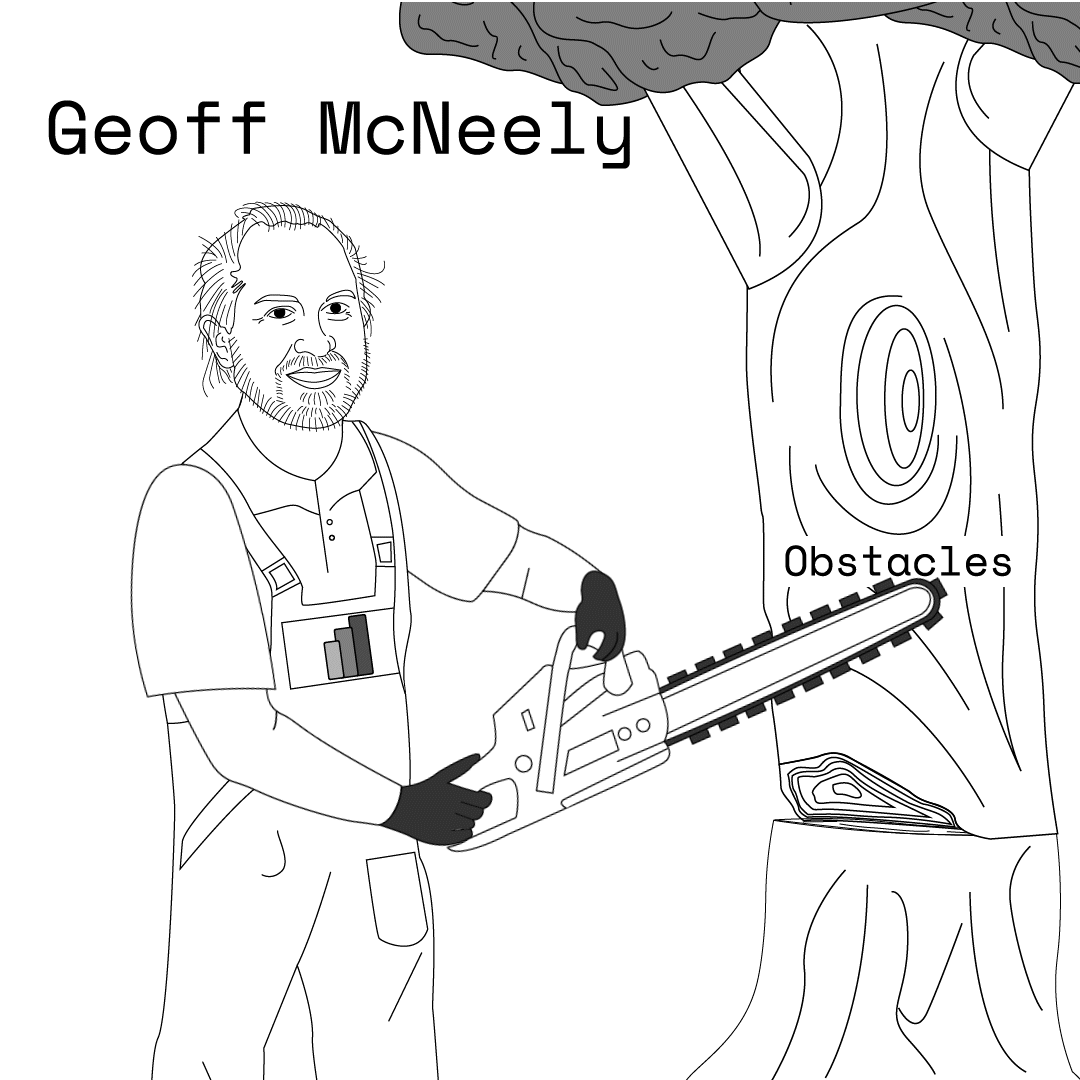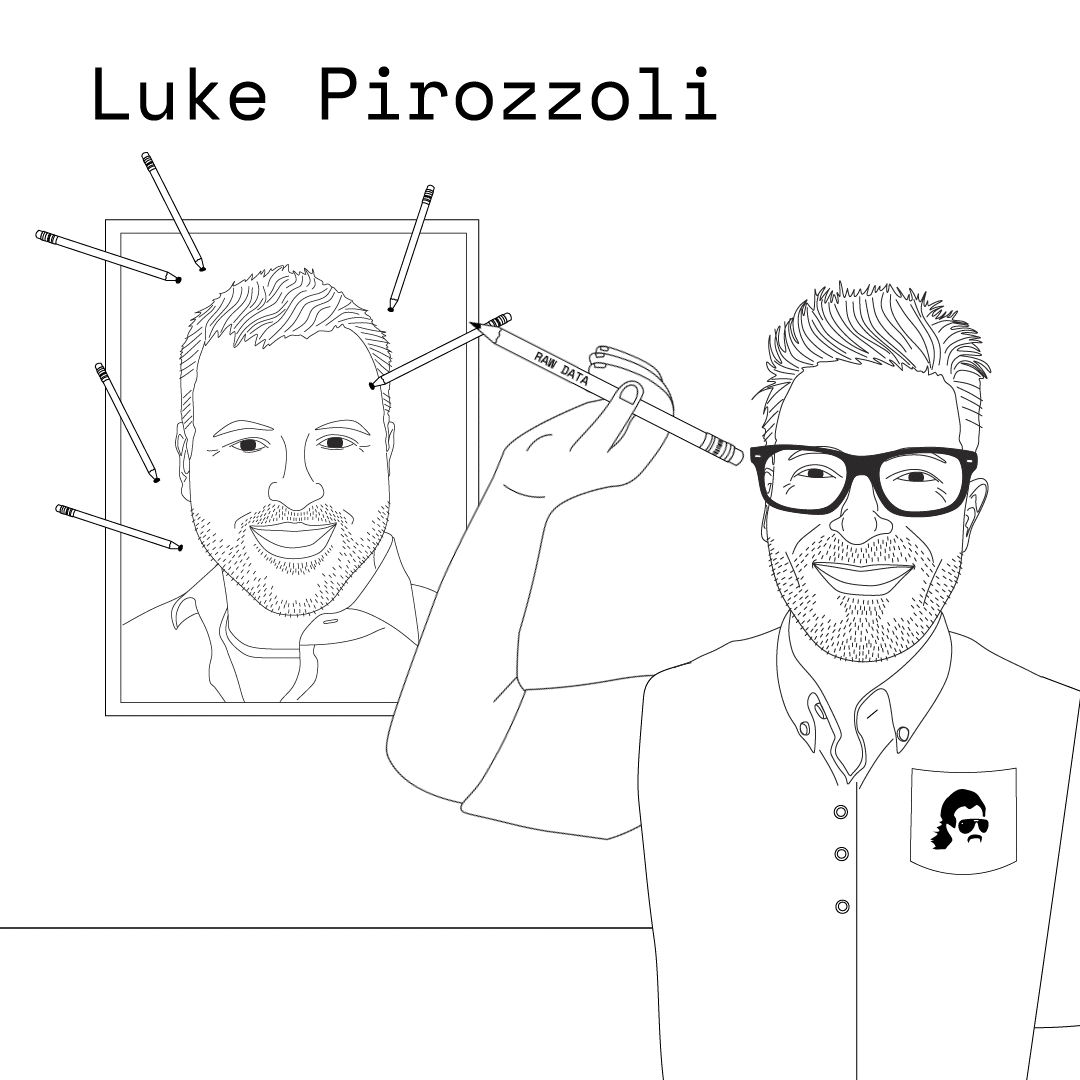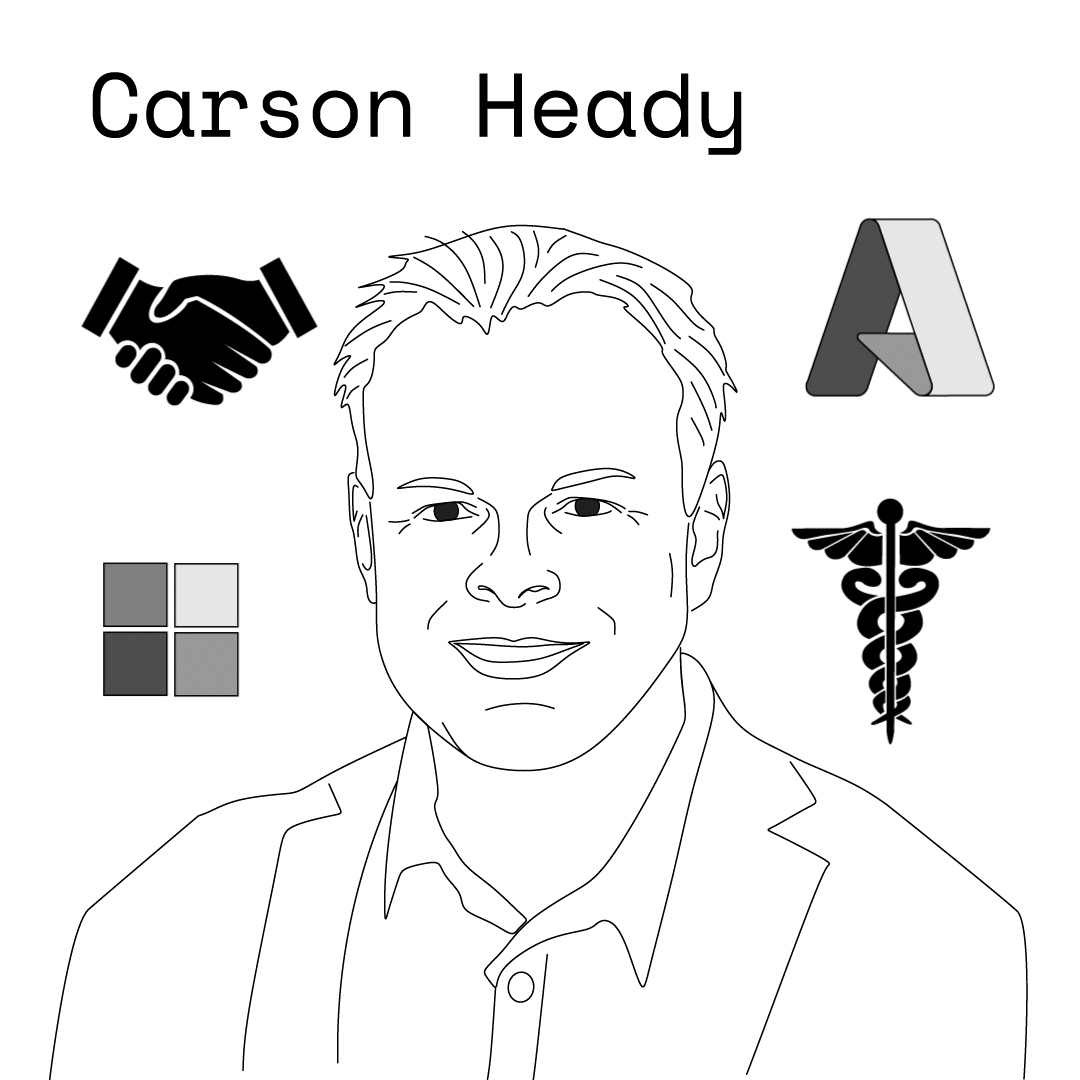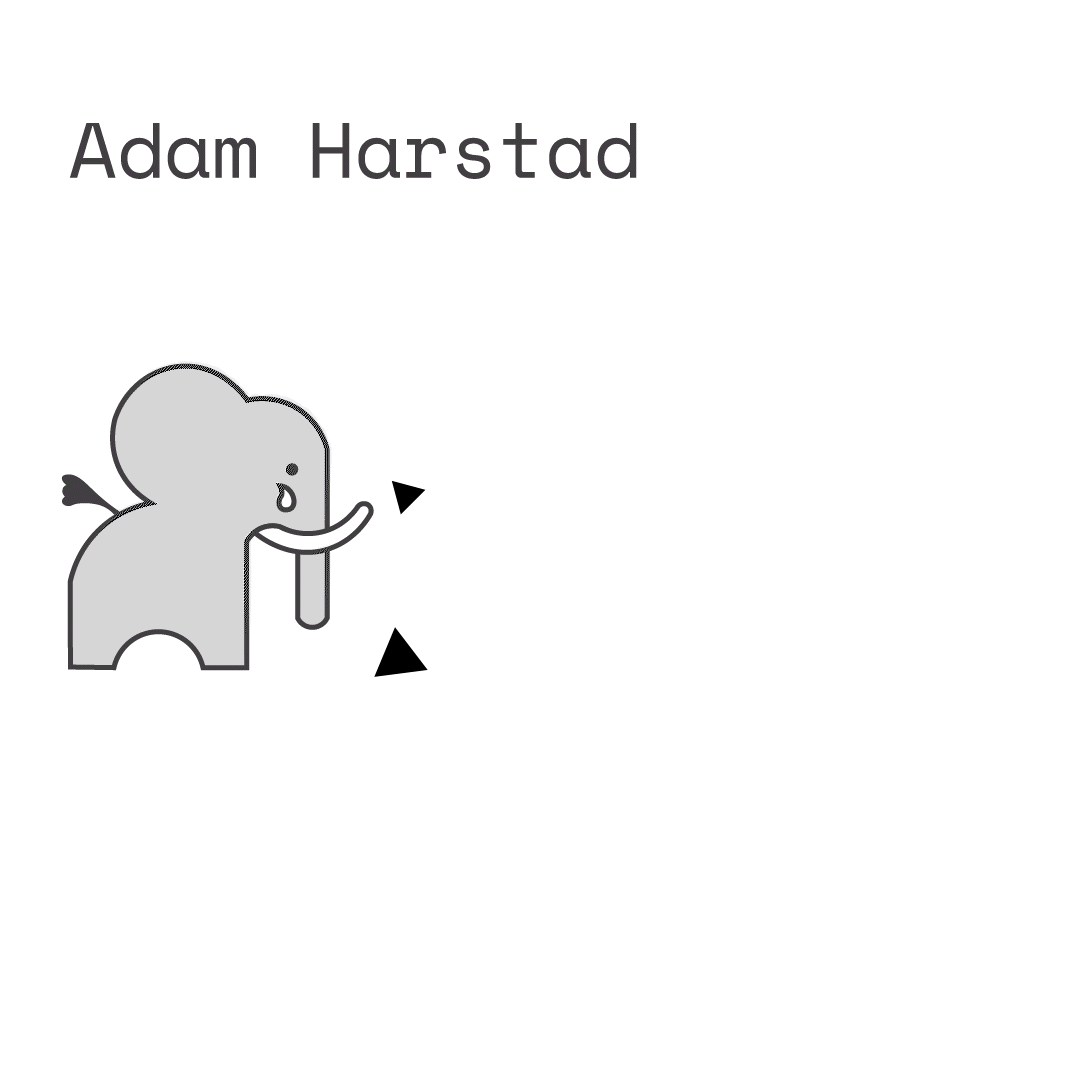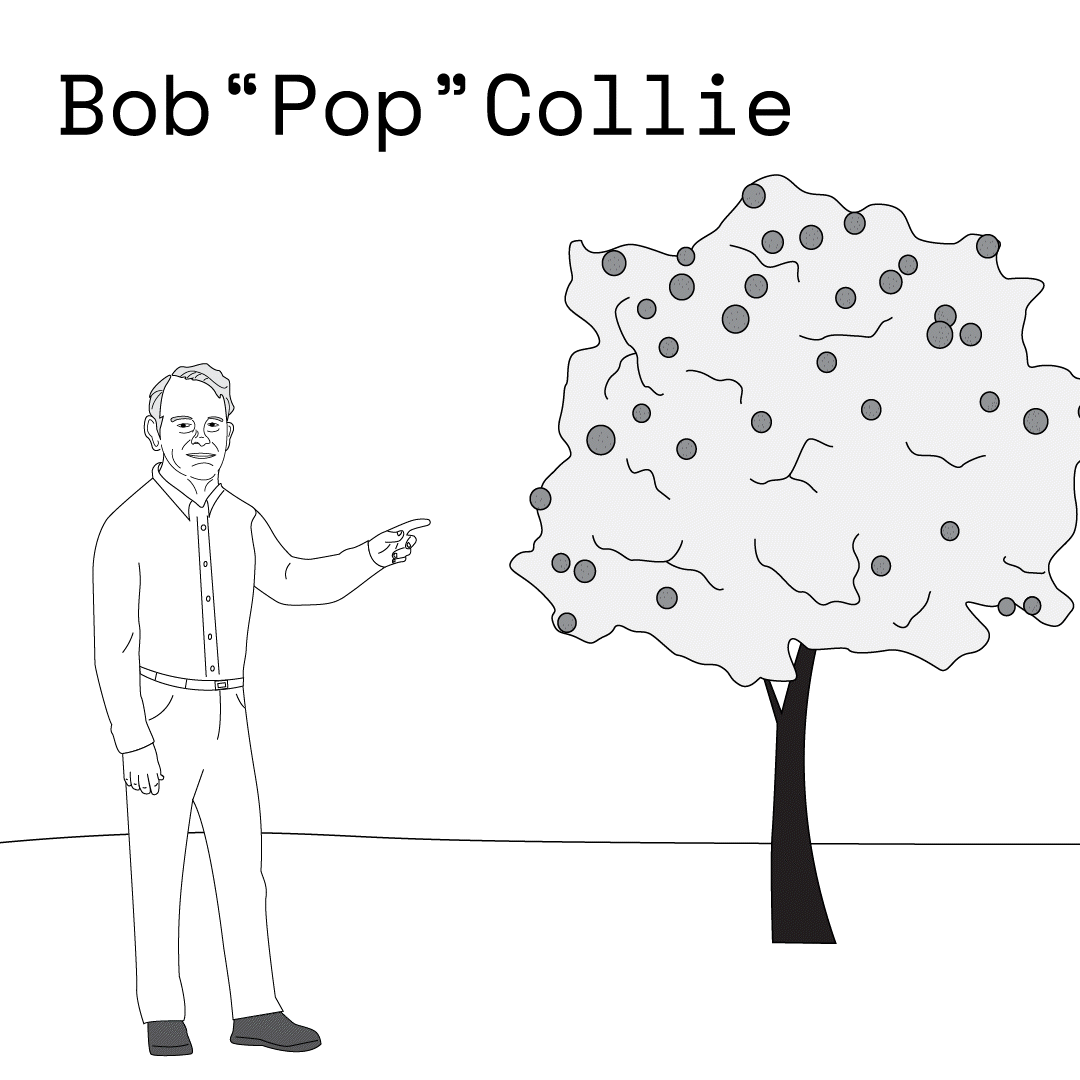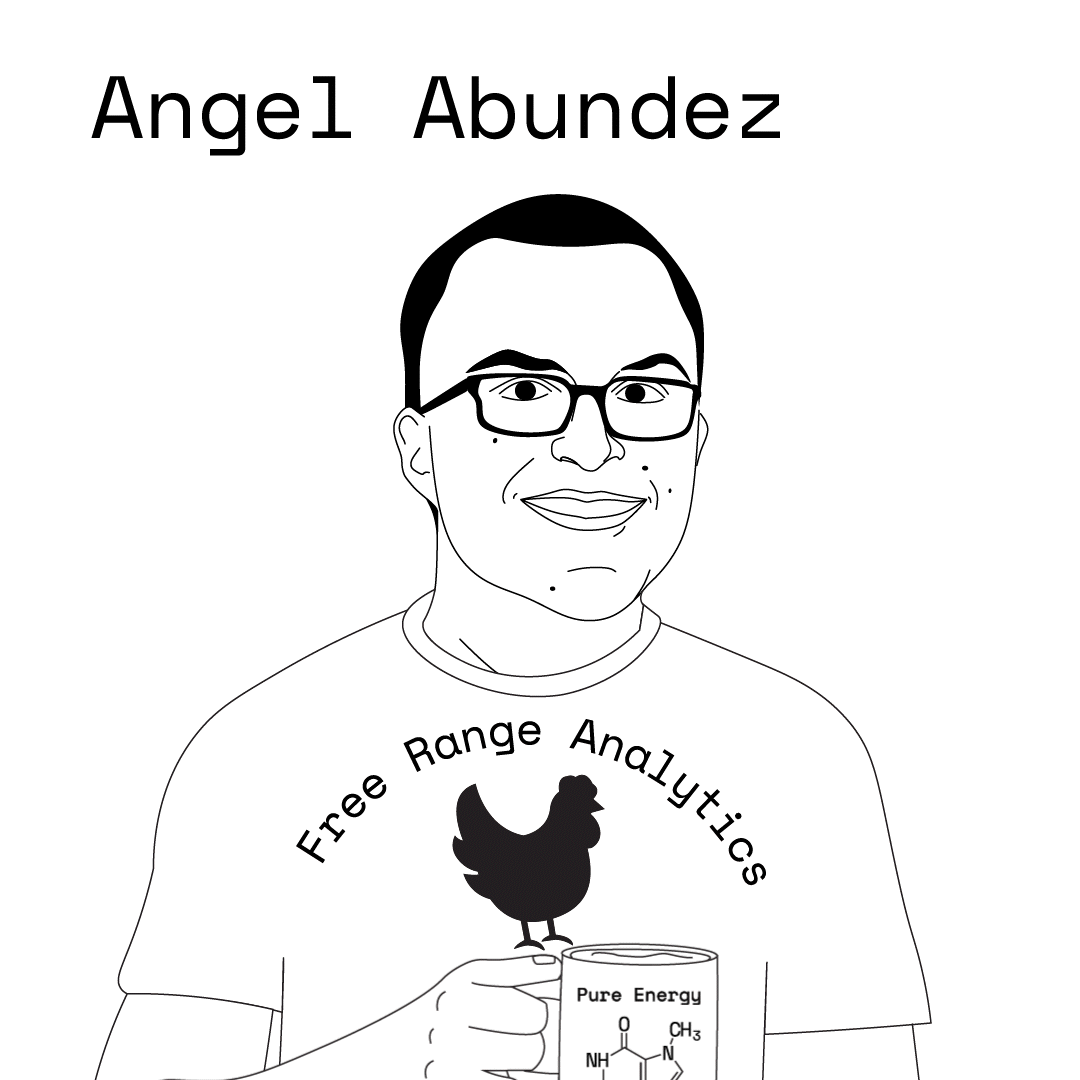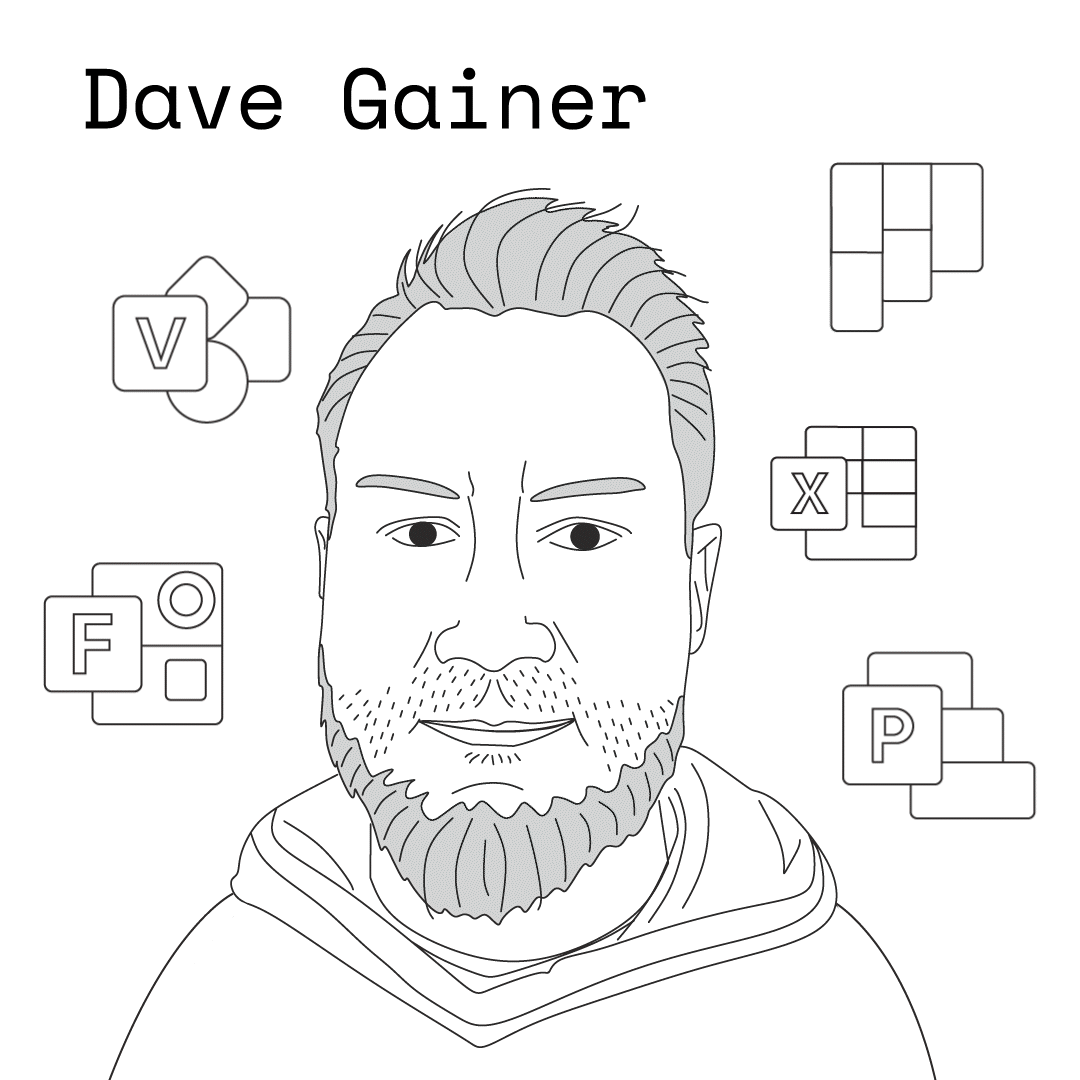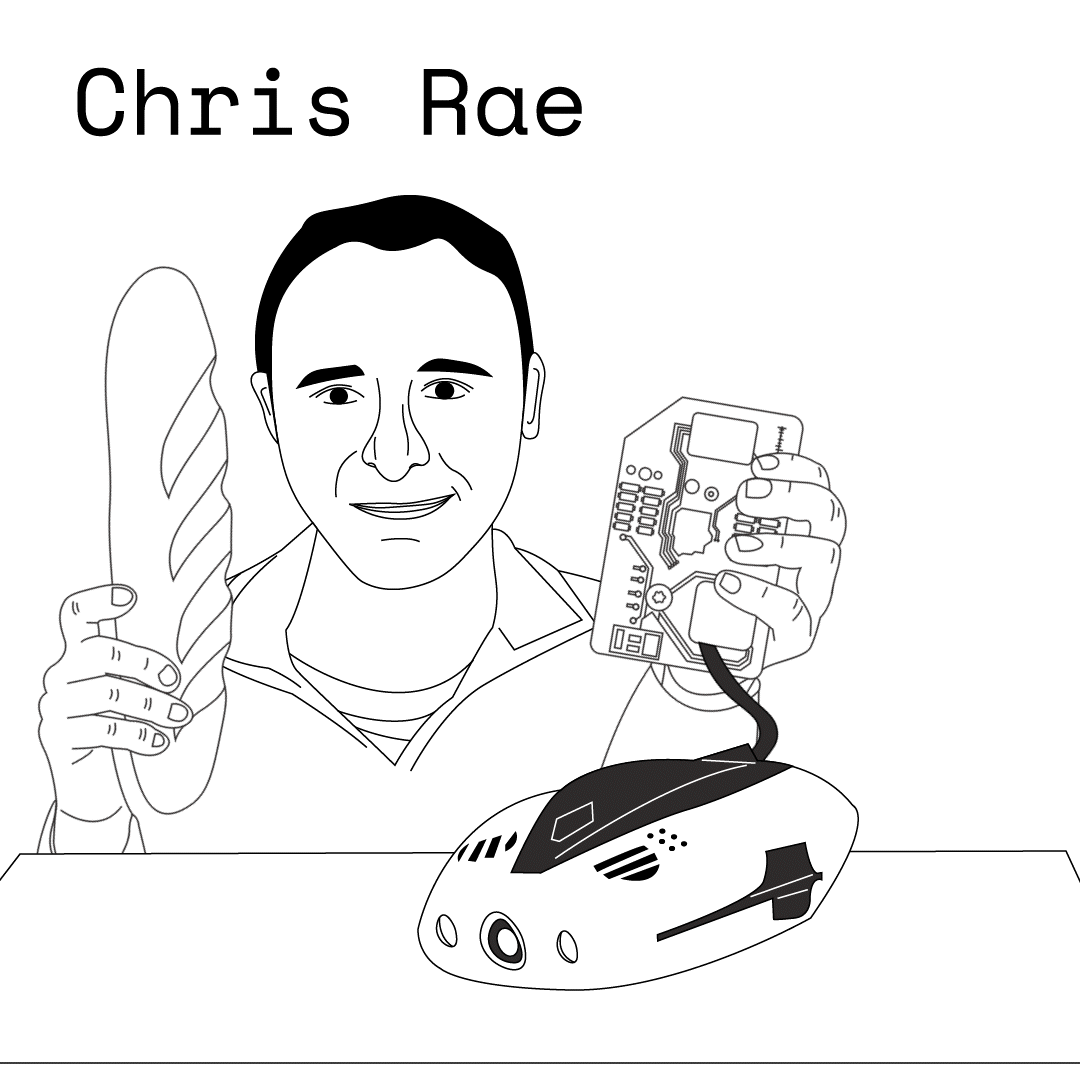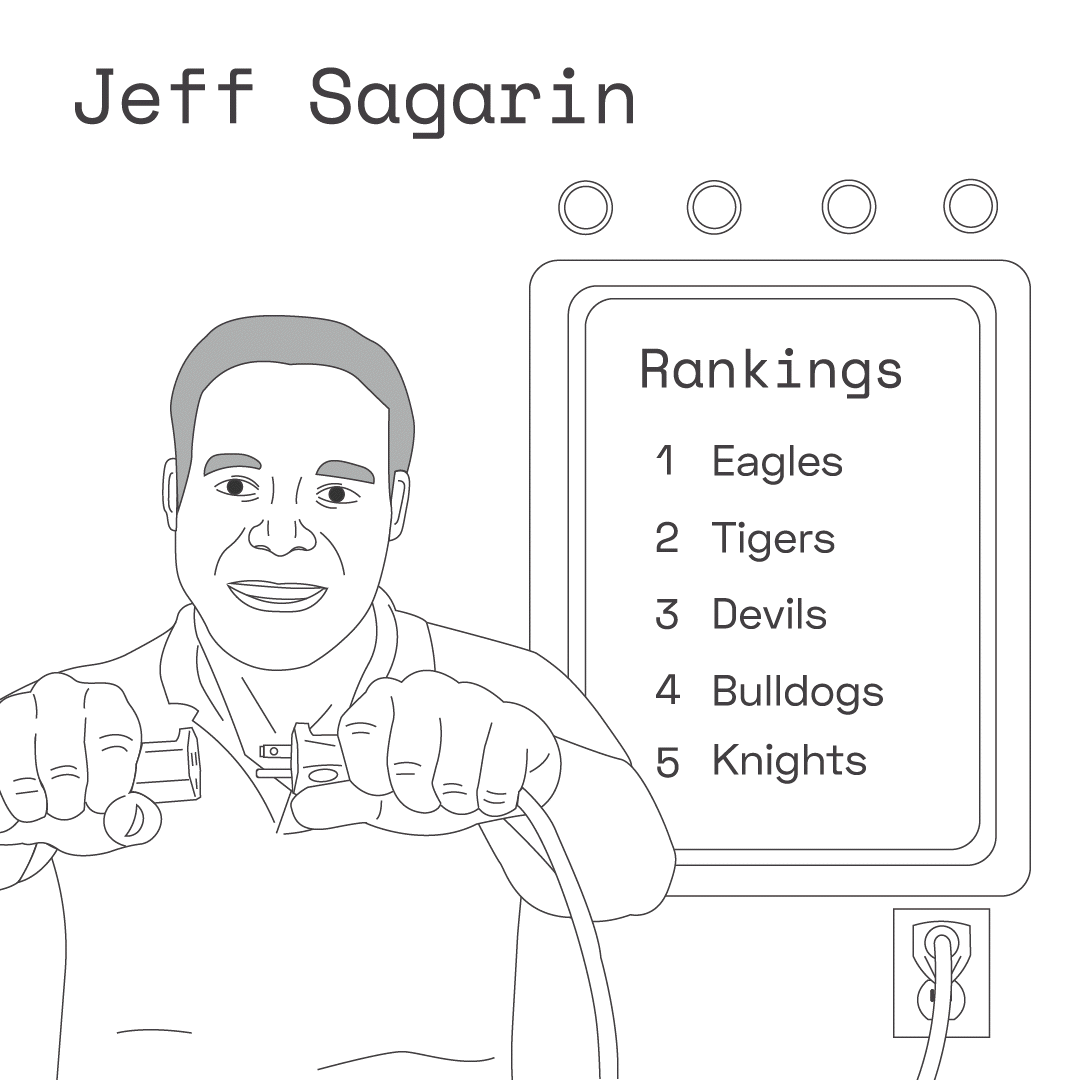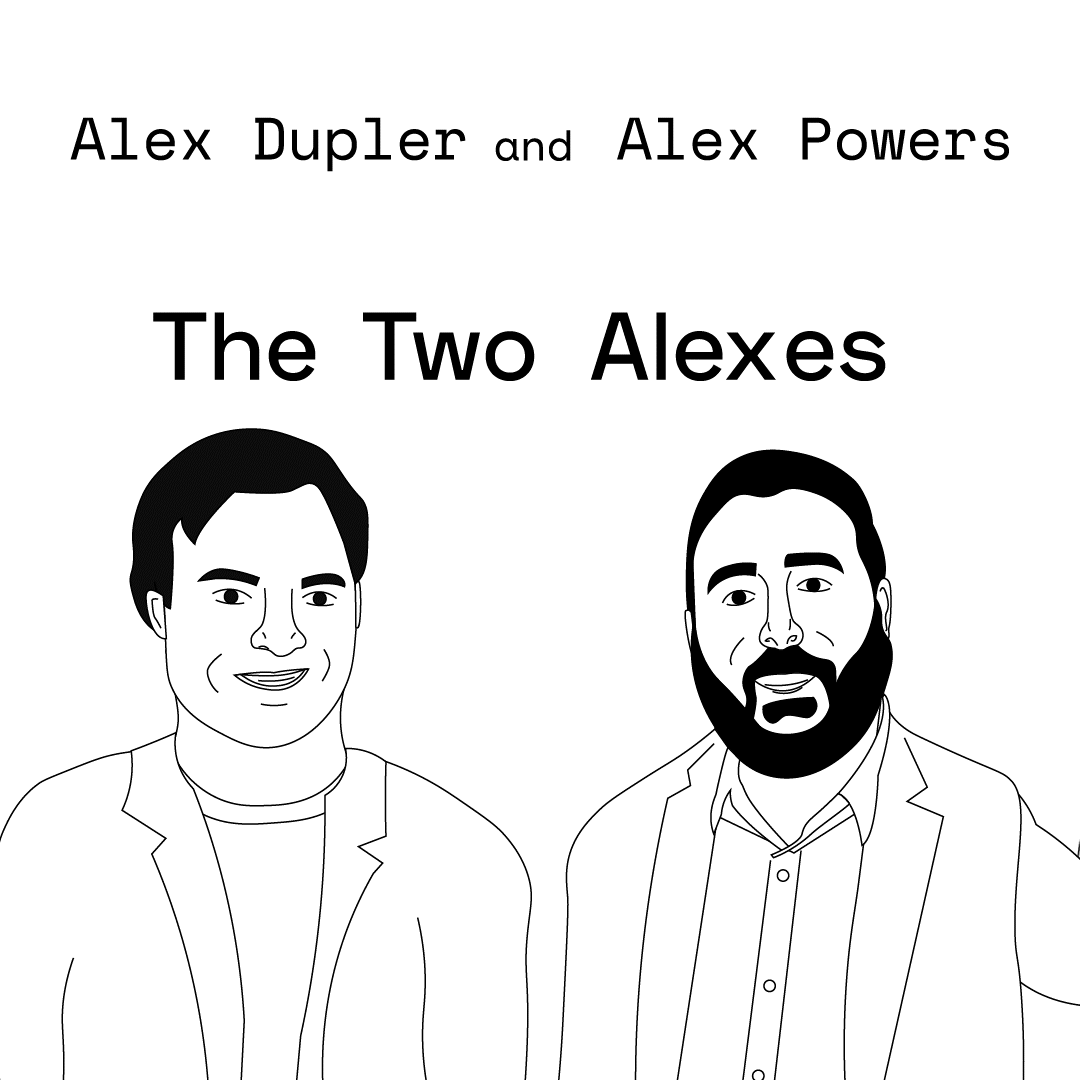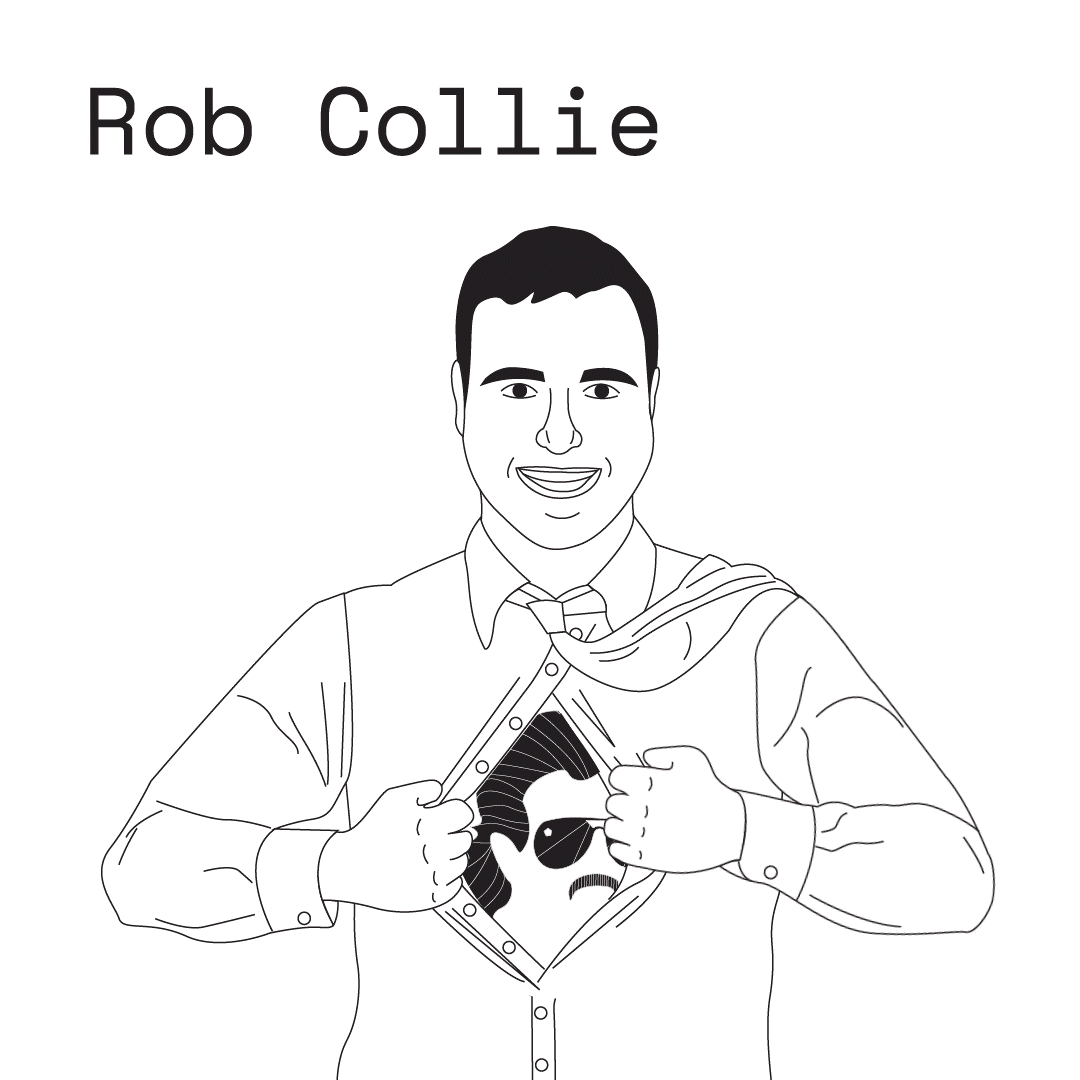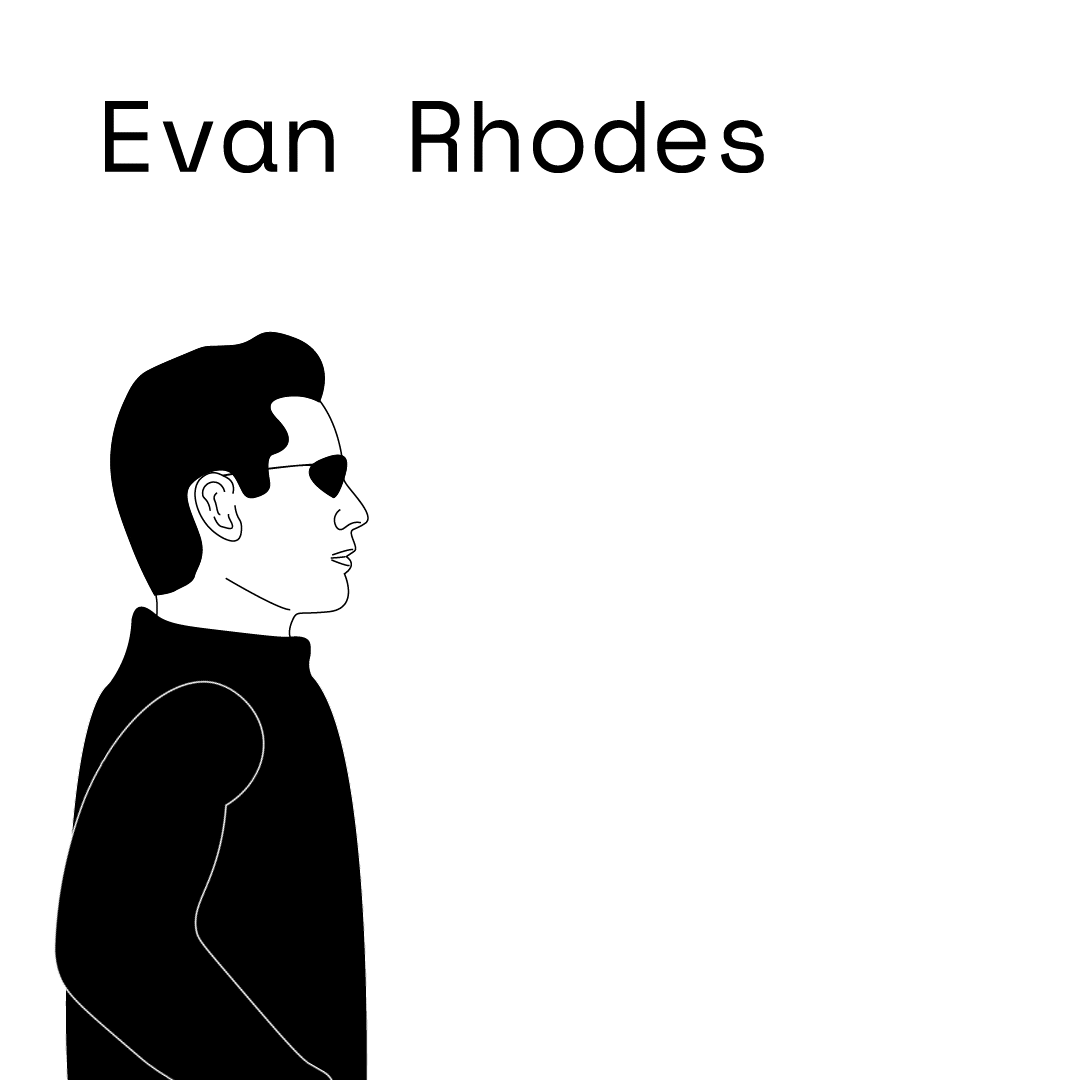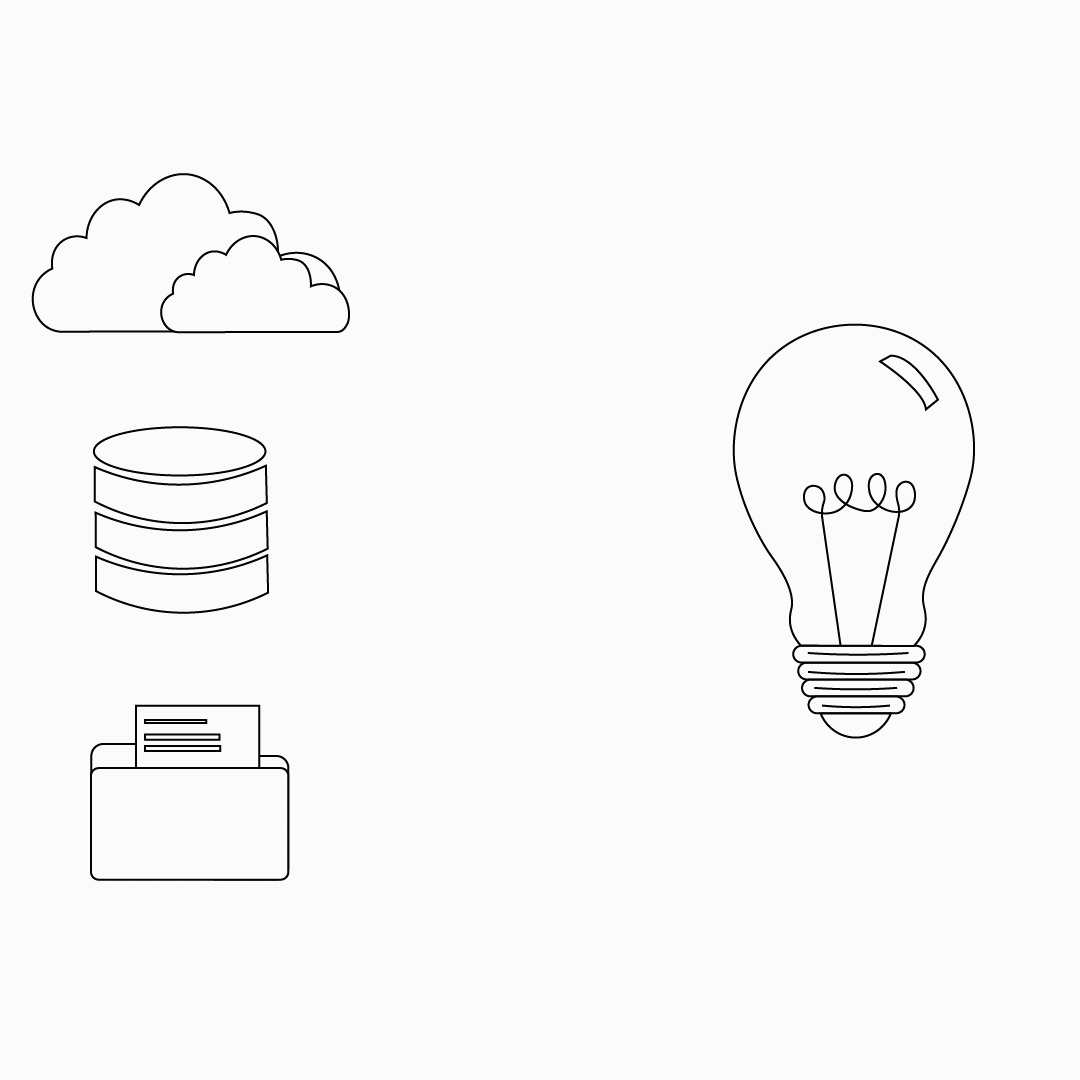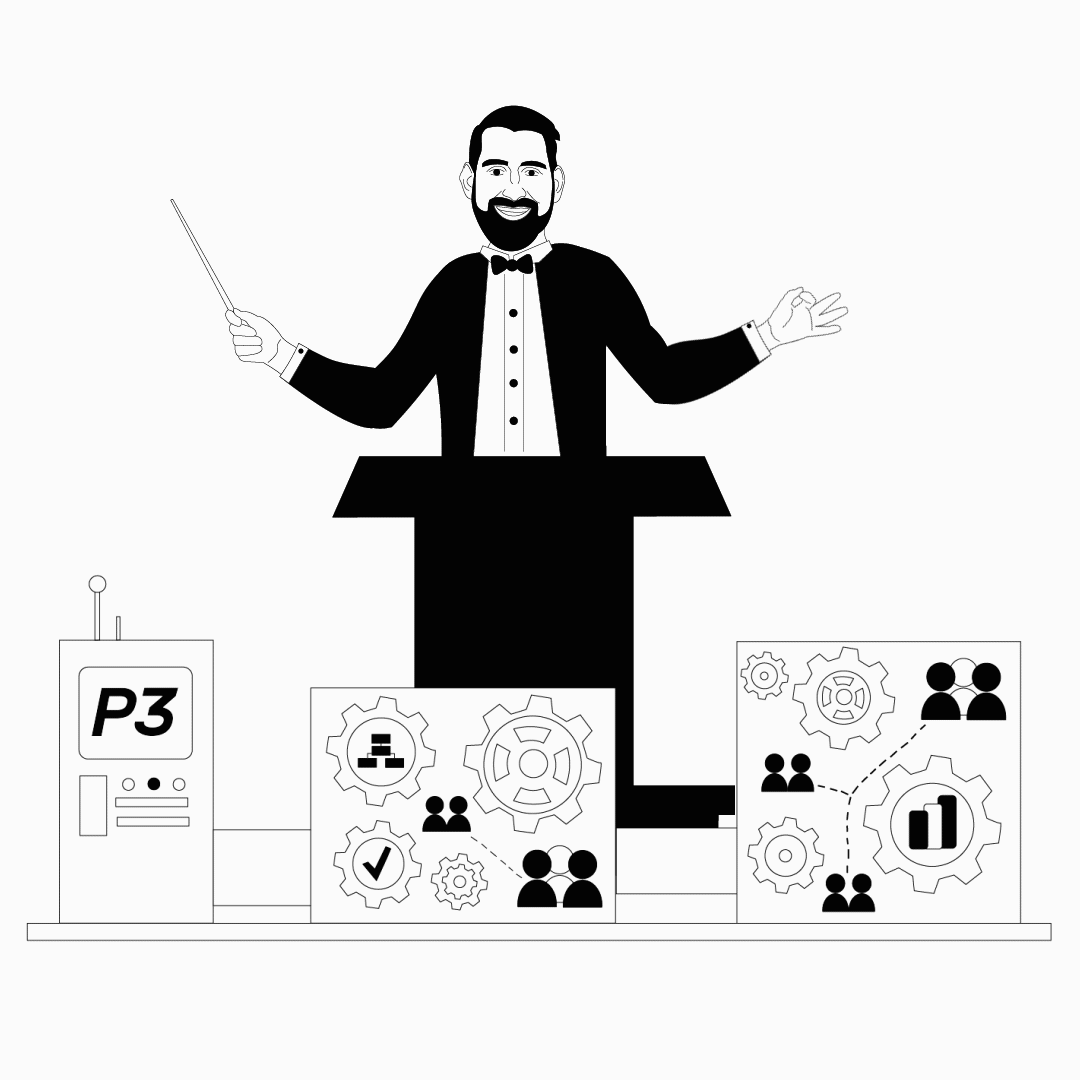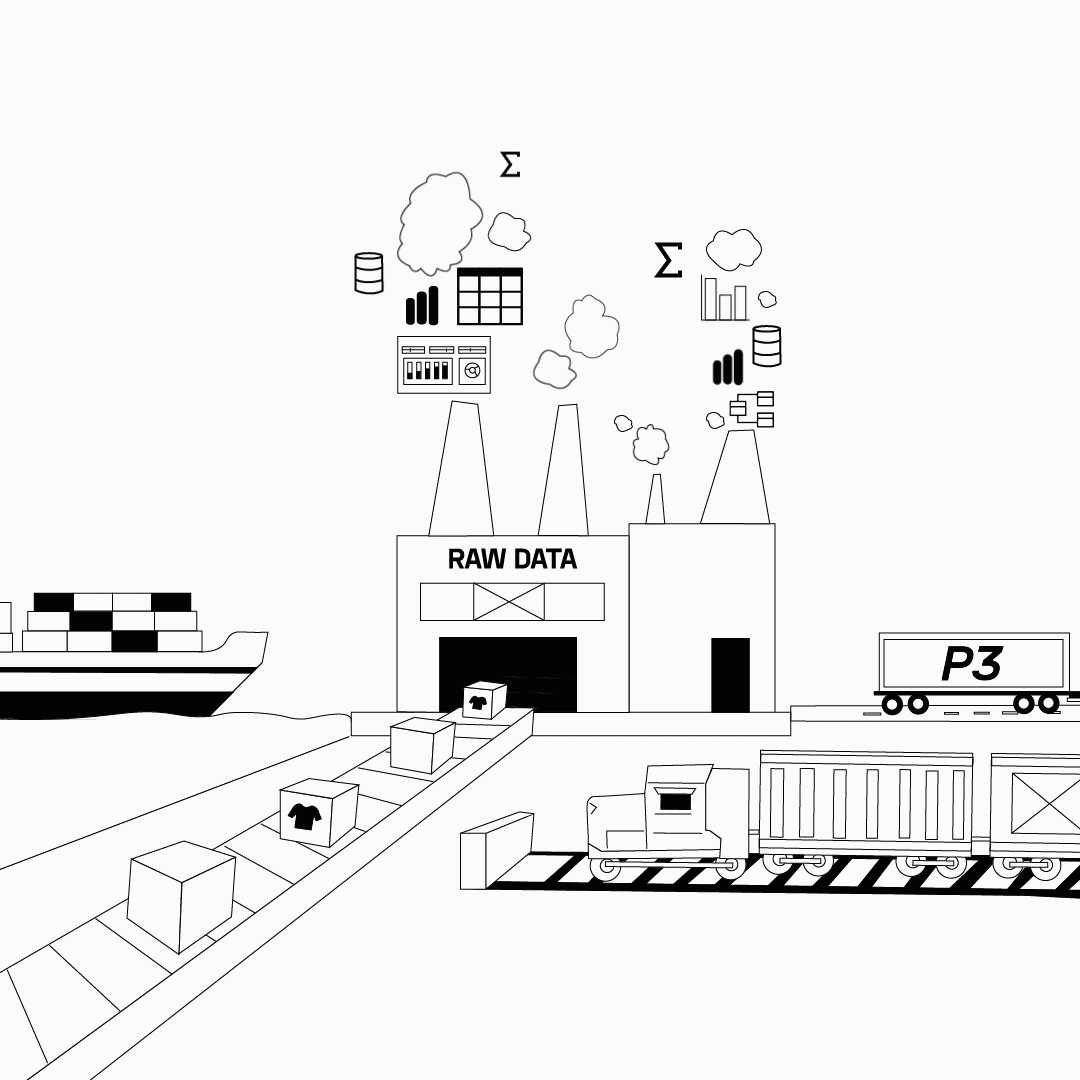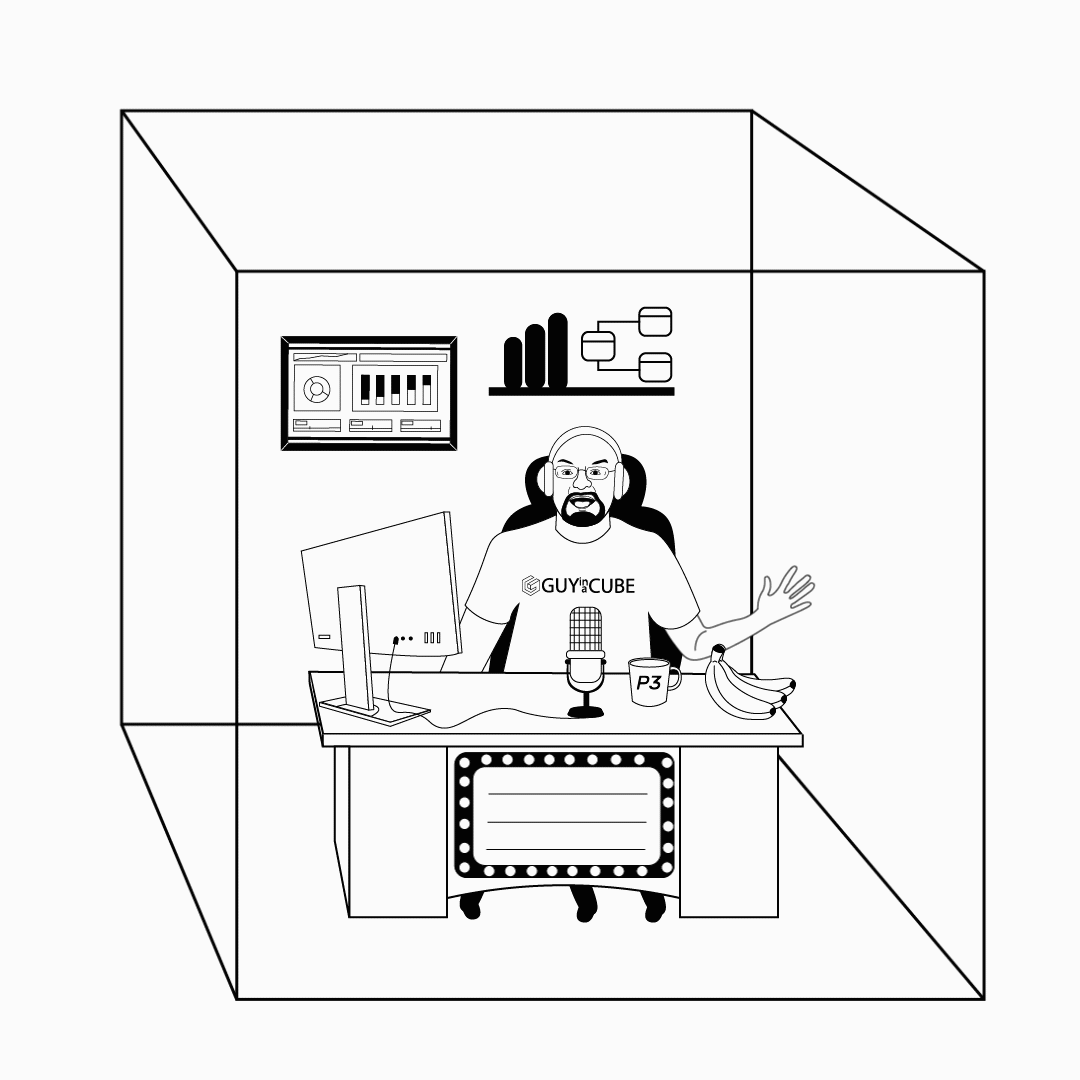
Raw Data By P3 Adaptive
Going Bananas for Data, w/ Jeff Lingen
Listen Now:It seems fitting for the week of Saint Patrick’s Day to include some Shamrocks. This week, we welcome to the show, Jeff Lingen from Shamrock Foods Company. Boasting 15+ years of data management and BI development, Jeff is the Director of Business Intelligence and Analytics and a coder of DAX from way back. Today Jeff gives us the inside scoop on his data origin story of escaping the data drudgery behind finance and moving into the analytics field and beyond.
Like all carriers of the data gene, there was a moment of realization for Jeff that non-mainstream ideas could enable and empower business users to be more self-sufficient. Naturally, this new age thinking created some friction with the OS I.T. but Jeff persisted until he proved to himself and others that Power Pivot and its successor, Power BI, could enable sophisticated modeling and analytics. Even though this road was more difficult, Jeff was determined to give his users the tools to find joy in data. Through extensive use of the P3 Adaptive Blog, Jeff moved away from flat reporting to Power BI to push his self-service message and further his career. As an exciting plot twist, Jeff even talks through his experience of briefly defecting from Power BI to Tableau before returning to the Microsoft fold. You won’t want to miss this episode.
Also on this episode:
Rob Collie (00:00:00): Hello, friends. Today's guest is Jeff Lingen. I think most of us, including myself, still think of Power BI as being relatively new. But Jeff and I have been around this particular campfire long enough. During the course of this conversation, I started to feel like the proverbial get off of my lawn grumpy old man.
Rob Collie (00:00:18): Jeff and I have literally been messing around with DAX since 2009. I wonder, of the people listening to this, how many of you have even ever used Power Pivot? But that's all we had. We didn't have this fancy Power Query, multi-touch dashboard reports, Row Level Security. Hell, we didn't even have 64 bit. You get the idea.
Rob Collie (00:00:41): Now, Jeff is a fun person to talk to. He's a fun person to be around. And that, of course, has something to do with why I've kept in touch with him all of these years. But there's also something about him that is absolutely all business. Talking to him, you very much get the sense that the number one guiding principle for his professional life is, let's do what works.
Rob Collie (00:01:00): And he also brings a lot of experience. Factually speaking, he has been working in BI and reporting longer than I have. Because while I was watching cartoons and stuff in my free time back in college, Jeff was already freelancing as a business intelligence consulting specialist.
Rob Collie (00:01:18): And since the time that he and I met in 2010, he has seen quite a bit since then as well. He's worked at multiple different organizations in different industries, he's gone from the Microsoft platform to a Tableau shop and back. And now today he's in charge of developing and instilling an effective, impactful data culture at one of the 10 largest food service distributors in the country.
Rob Collie (00:01:41): So, of course, we talk about the challenges and his approach to creating that data culture, how far along he is in that process. In a recurring joke, he keeps saying that they're very early in that process, but I'm continually impressed at how far along that really is. You're going to hear that he and I agree on a lot of things such as the value of the business professionals being on the front lines of the BI battle.
Rob Collie (00:02:05): We have a lot of fun talking about the value of deliberately breaking best practices, as long as you know what you're doing. We crystallize what I think is one of the key challenges in life, which is determining when it's good to kick the can down the road versus addressing a problem in the now. We stumble into discussing how the banana is basically the unit of measurement for everything. And we also talked about something that I find fascinating, which I call the prison of round prices.
Rob Collie (00:02:33): Oh, and if you'd like to support the show, just take a few seconds and leave us a review on your favorite podcast platform. That actually helps us quite a bit. And with that gentle request out of the way, let's get into it.
Announcer (00:02:45): Ladies and gentlemen, may I have your attention please?
Announcer (00:02:49): This is the Raw Data by P3 Adaptive podcast with your host, Rob Collie, and your co-host, Thomas LaRock. Find out what the experts at P3 Adaptive can do for your business. Just go to p3adaptive.com. Raw Data by P3 Adaptive is data with the human element.
Rob Collie (00:03:13): Welcome to the show. Jeff Lingen, how are you today?
Jeff Lingen (00:03:17): Very good, Rob. Thanks so much for having me. Excited to be here.
Rob Collie (00:03:19): I think you and I met face-to-face for the first time at the very first BACon Conference.
Jeff Lingen (00:03:26): Yep.
Rob Collie (00:03:26): Tom's very first past BACon Conference in Chi-town. Am I right?
Jeff Lingen (00:03:31): That's right. It was, what, like 2010 or '11, I think.
Rob Collie (00:03:34): It was 100 years ago.
Jeff Lingen (00:03:36): Long time ago.
Rob Collie (00:03:38): Yeah. Really, really, really way back. Wasn't there some sort of pre-night where we showed up the night before the conference actually started and there was some speaker dinner or something like that? I think, Jeff, you were even there that night. I remember hanging out longer than I expected. We were sitting in a hallway or something. There was a few of us chatting.
Jeff Lingen (00:03:57): Yeah, I think we sat down the bar.
Rob Collie (00:03:59): That sounds believable.
Jeff Lingen (00:04:00): I maybe ran across the street and got a six pack at the-
Rob Collie (00:04:03): Maybe. We didn't have Uber or Lyft back then, so I actually had to catch a cab. I was staying at my in-laws and I had to catch a cab. And so, I'm standing on a street corner in Chicago by a CVS trying to wave down a cab to get down there. And I got down there late. It was just, oh, it's so much harder to get places back then. So, where did you work in '10?
Jeff Lingen (00:04:26): I worked for a company called Services Group of America. It's a big food distributor that's since been acquired. I was a big fan of the blog. Right? And that lived and died by the next entry. I think I reached out a couple of times through the website, like questions or suggestions or something. You engage with me trying to see if there was an opportunity, and a month or two or later, I think we ran into each other in Chicago.
Jeff Lingen (00:04:52): I was a bit of a fanboy, I guess, but it was a very formative time in my career. Right? As I was, at the time, trying to trans out of accounting and finance based role and really embracing my data gene. I couldn't get enough. Right? I just sucked it up.
Rob Collie (00:05:08): This is like the primordial soup level of the Power BI story. I mean, this is really, really early. Tom, this is back when my blog was still such a new fascination for me that not only was I tracking my pageview stats in near real time, I'd subscribed to this other service that allowed me to see the ISPs of everybody that was visiting. Right?
Rob Collie (00:05:31): And so, I had seen this company, the services group or whatever. I had seen that company appearing in the logs over and over and over again. I had no idea who it was. I didn't connect the dots. Slowly that company in my web blogs morphed into, oh, that's this guy, Jeff.
Rob Collie (00:05:52): Back then the blog traffic wasn't even heavy enough that, it was actually feasible to know who was coming to the blog. I could look through those visitors every day. I'm like, "What is this group?" So, you had to be crazy to be into Power Pivot in 2010, 2011.
Jeff Lingen (00:06:11): So, here's a funny thing. I asked that type of a question today to candidates in the interview process, right? I give them a little context, I say, a long time ago, I had this kind of realization. And I thought about things a lot different than the mainstream and this idea around enabling and empowering business users to be more self-sufficient, right? And giving them tools that align with the big, fancy IT tools and let them go. Give them data and let them be innovative.
Jeff Lingen (00:06:42): And back then that was shunned, right? I had bad relationships with the IT group and they tried to solve that by putting me in the IT group and felt like it was me against the world, if you will. But I was really, really excited about the opportunity that Power Pivot brought because it married Excel, which 5 billion people know and love, with data. And specifically modeling and more sophisticated analytics than your flat reports and some of the stuff that took months and months and months for the IT group to roll out in these big analysis services cubes.
Jeff Lingen (00:07:14): So, it was this perfect marriage for me of down in the weeds, get it done mentality along with some technical tools that could really do capable things. So, like I said, I was really enamored by that idea. And fast forward years and years, it's a big thing at what we're doing in the industry now. Right? Trying to push that self-service message through Power BI and the tools have followed suit.
Jeff Lingen (00:07:37): But back then I was, yeah, I made some enemies. I ask that of people like, "Hey, do you have a similar story?" Or, "Do you feel passionate about something that maybe today doesn't seem to make sense to people?" And it's interesting some of the answers I get, but it's a good way to flush out that passion, that excitement and energy for doing interesting things and making a difference through data.
Rob Collie (00:07:55): Do you remember, by chance, how you even stumbled across the existence of Power Pivot?
Jeff Lingen (00:08:01): I do, actually. So, I was in this hybrid role where I worked at the parent company services group and I'd get embedded in different business units to help bring some efficiency or insight. We had a centralized BI team at the time. But long story short, I began working more and more with them. We were very Microsoft-centric shop. The company originated up in Seattle. So, there was really strong relationships with Microsoft.
Jeff Lingen (00:08:25): And we got involved in, I forgot what they called it. It was like a red carpet beta program, right? Where they'd come to customers and get feedback. And so, I was doing some stuff with, what do they call it? Project Gemini for a few minutes right before it rolled out. So, I was familiar with it, right?
Jeff Lingen (00:08:40): And at the same time, we were really wrapped up in legacy old fashioned BI. These big, huge monolithic cubes with this front end that was super expensive in front of it. Panorama, I think it was called. And hundreds of users with a million views. And what happens if we change the schema of this cube and it breaks everything?
Jeff Lingen (00:08:59): And so, we started really exploring Power Pivot with Excel services through SharePoint. Really we're stretching the bounds of what was possible at the time and doing some pretty creative things. So, I was all in. And then I would just Google on all day long about how to write DAX and how to do little, tricky things to overcome challenges with Excel and other from a more visual standpoint and found your fantasy football project, I think it was, way back then and-
Rob Collie (00:09:27): The great football project.
Jeff Lingen (00:09:28): Right.
Rob Collie (00:09:29): Which we eventually abbreviated TGFP just to keep things brief. That was a lot of fun. So, you were reading the blog, you got pretty lucky that in a way Microsoft chose your org to be part of that, it wasn't luck that you saw the promise of it. That's not fate. That was you. So, when you were reading the blog, you were reading it early enough that you were probably reading my article before even I had figured out that it was going to be awesome.
Rob Collie (00:10:01): There was a time when I was writing the blog in the early going, then I'm like, "I don't know." And it hit me all at once at one point in time. I'm like, "Oh, okay." I went from maybe to all in, in the space of about 48 hours.
Jeff Lingen (00:10:15): I did too, but I'll tell you what. There was a lot of pain along the way. It was buggy and the thing would crash all the time and people would look at me like, "This is bullshit, Jeff. Why do you pushing this down our throat?"
Rob Collie (00:10:26): Yeah. And 64 bit Excel. I'm like, "What a pain in the ass." No one runs 64 bit Excel in 2010. There was no one, except for us. For a little while, there was a hack where you could go in and manually edit a single bit in the Excel EXE and trick the operating system into allowing it to use more RAM than it would normally.
Rob Collie (00:10:48): It was really, really crazy stuff. You could get a whole extra gig of RAM assigned to the 32 bit process if told windows that this one was okay to give that extra gig of RAM to. And of course, Microsoft never tested this, so they weren't going to support it. But here we were, these wild, mad scientists out in the world going, "Hell yeah, we'll set that bit."
Thomas LaRock (00:11:12): Oh, is that physical address extension? Because we used to do it for SQL server as well.
Rob Collie (00:11:17): Maybe. Maybe. Yeah. It's just that no one ever expected someone to do that to Excel.
Thomas LaRock (00:11:23): Well, I think you can do it for almost any process basically if you tell the Windows operating system-
Rob Collie (00:11:28): That's right.
Thomas LaRock (00:11:28): ... this one's okay.
Rob Collie (00:11:29): Right. But would Microsoft sign off on it? No.
Thomas LaRock (00:11:32): Oh, no. Because-
Rob Collie (00:11:33): right , no.
Thomas LaRock (00:11:33): ... over time, the fragmentation, you just had to reboot your server periodically to clean everything up.
Rob Collie (00:11:40): And certainly the Office team wasn't going to go and devote an entire test cycle to validating and signing off on this being a legal way to run Excel.
Thomas LaRock (00:11:50): No. It's a stupid windows trick. That's what it is.
Rob Collie (00:11:53): Yeah. But it was awesome. It was awesome.
Thomas LaRock (00:11:57): For a brief moment in time, that was an awesome thing to do. Sure.
Rob Collie (00:12:01): I mean, that's what the cool kids did. We went in and we-
Thomas LaRock (00:12:03): It's true.
Rob Collie (00:12:03): ... patched that one bit on Excel EXE.
Thomas LaRock (00:12:06): Yeah.
Rob Collie (00:12:06): So funny. I mean, I wasn't even necessarily reliably running 64 bit operating systems back then. It's such an old man, get off my lawn thing. It's like, oh, kids these days, they don't know how good they've got it. 64 bit applications and operating systems by default. I mean-
Thomas LaRock (00:12:25): It's true.
Rob Collie (00:12:25): ... let me tell you.
Jeff Lingen (00:12:28): Yeah, I go way back too. Windows 3.0, 3.1 and it's come along way, so it's fun now. It's almost like cheating, the stuff you can do.
Rob Collie (00:12:37): It's almost like computers can be used for what we always thought they should be used for. The PC finally delivered on its promise. So, you were at Services Group. And when you were roped into the project Gemini early insiders Beta thing, had you already been reeled in by IT into this can't beat them, join them, absorb them kind of thing? Do you remember that?
Jeff Lingen (00:13:02): Yeah. I guess my story starts way back in IT. Really early I was fortunate enough to get placed within a PC department of a computer reseller, I think is probably the best way to describe them. Right? But I was doing a lot of technical stuff and more hardware and got into networking and certified in a whole bunch of different things and was introduced to databases and a Microsoft access and some other things along that way.
Jeff Lingen (00:13:26): I was really into it and I actually put myself through college consulting and acting in this data integration, reporting early days of what is now BI, I guess. And I always saw that as the means to the end, right? Like, oh yeah. I don't want to be an IT guy. I'm going to get into finance or something. Right? But in the meantime, I can do all these things.
Jeff Lingen (00:13:47): And so, I got involved with a lot of interesting projects and clients doing, I kind of got wrapped up in doing really creative things in Access. And I know it's funny now because everyone laughs like, "Oh, yeah. Access is terrible." I built some pretty incredible applications in Access with SQL server backends for some large organizations.
Rob Collie (00:14:05): We should pause here for Tom to laugh.
Thomas LaRock (00:14:08): I'm not going to laugh because it actually sounds like he was using Access almost correctly.
Jeff Lingen (00:14:13): It's just a front end. Right? Just-
Thomas LaRock (00:14:14): Right.
Jeff Lingen (00:14:15): ... forms and yeah. A ton of VBA and you could barely discern that it was Access, right? It was custom controls. But it was super fun and it was delivering value that organizations were after that they didn't have like a traditional approach to solve. And so, I got stuck on that track and then I graduated, I got my undergraduate and I moved into more traditional accounting and finance roles and I thought that that part of my life had passed. Right? Like, "Well, now I'm a grown up." And yeah, right?
Jeff Lingen (00:14:48): I hated those jobs. It was terrible. I continued to succeed where my colleagues didn't because I brought with me some of those skills, right? Being able to work with data, and extract it, and move it around and do stuff with it, and present it and tell stories.
Jeff Lingen (00:15:02): And then when I went to Services Group of America, I actually was hired in as a financial analyst and was part of their corporate finance team, but just carved out a niche, right? Bringing those skills together and it made perfect sense to me. Like, "Hey, we're combining business-focused outcomes with technology and we're delivering solutions that move the business forward. It doesn't have to be such a pain in the ass process to do."
Jeff Lingen (00:15:25): Like I said, there was some contention, I guess, with how that played out in a large organization, right? That has focus on standardization and maintenance and manageability and other things. Right? So, that was my first real job in IT as an IT organization would go in an organization. And since then, I've moved through other positions and now I'm on that side of the fence. Right?
Jeff Lingen (00:15:48): I direct a data team at another large food service distribution company coincidentally. So now I see the other side of the fence and the importance of some of that. So, now the challenge for me is balancing that. Balancing that innovation with that sustainability.
Rob Collie (00:16:03): So many cool stories like that. Being on one side of a virtual or theoretical fence and then one day finding yourself on the other side of the fence and going, "Oh, oh, oh, okay."
Jeff Lingen (00:16:16): Yeah. All right. No, we can't do that.
Rob Collie (00:16:19): Oh, I guess I see your point. And by the way, that goes both directions, right? Like if you take someone from IT and drop them over on the business side, they'll see the light too. It's not the people, it's the role. It's the history that does it.
Jeff Lingen (00:16:33): Sometimes it's the people.
Rob Collie (00:16:35): Okay. Yeah, it's true. There's a lot of variability within people. This is also true. It was really funny when you said you graduated, "I'm a grownup now." I was just laughing the whole time even before you said that. Who the hell puts themselves through college doing data consulting? Not this guy. I couldn't even go to class. So bizarre, man. How the hell did you get into doing that at that age?
Rob Collie (00:17:03): Because I mean, I had no concept of the real world. And there you are in the nitty gritty. You were in the trenches before you became a grownup. I don't think I became a grownup until I was like 30.
Jeff Lingen (00:17:15): My wife would tell me that I'm still not there. I guess for me, again, I was a fortunate, what's the old saying? Success is part preparation and part luck and being able to identify where the luck's important. I mentioned that the first real job I got in high school at the computer reseller, they were based in Minnesota where I grew up and had a truck stop down in Scottsdale, Arizona, and I went to ASU.
Jeff Lingen (00:17:44): When I came here, I was still connected with them and they'd call me up and I'd do some stuff for them as needed. And after a while, they started sending me out on the road to their clients to help out with certain things and then pay me a little bit under the table. And then over time, referrals grew and actually got connected with professional hockey team down here and spent several years with them as a major client developing an Access application to, at the time, there wasn't reliable wifi in stadiums and arenas and stuff.
Jeff Lingen (00:18:16): So, the broadcasters would have just notebooks and notepads with all the stats and information on players and topics they were going to talk about during the gamecast.
Jeff Lingen (00:18:25): And so, I built this tool that allowed them really a dynamic interface to do that with everything pre-loaded and we'd scrape websites and load up data. And it was interesting. But I was involved with them and then I grew into other groups and was involved PGA Tour for a little bit. But yeah, it was a lot of fortunate referrals, but at the same time, being able to bring something unique and different to what those people were needing.
Rob Collie (00:18:52): I had no concept that this was part of your origin story. None whatsoever. So cool.
Thomas LaRock (00:18:59): So, I'm interested to know how well that hockey team that used Access, how well were they successful?
Jeff Lingen (00:19:06): They were actually. So, the Phoenix [crosstalk 00:19:09] hockey fans with the Phoenix Coyotes are a laughingstock these days. But back in the late '90s, they actually were pretty decent and it was a lot of fun. So, I come and go to games. I could go into the locker room, I'd bring dates and then... But I'd like to think that I was some part of their success for a few years, at least.
Rob Collie (00:19:28): That's awesome. By the way, I have a Roller Hockey League game tonight.
Jeff Lingen (00:19:33): Ah.
Rob Collie (00:19:34): I have relaced the skates after a 15 year lay off.
Jeff Lingen (00:19:40): It's funny you brought that. I just started a beer league hockey league, and I have a game tonight as well. I am not very good anymore and it's tough. I am so sore afterwards and exhausted, but it was about 22 years, I think it was, between my last game when I retired in my very prime and today where I'm fat, and old, and lazy and it's been a bit humbling.
Rob Collie (00:20:04): Well, here's the thing. I might be about as good as I was when I stopped playing. I can't even say, oh, it's age or rust. No, no, no, I am bad and I was always bad. I mean, I think I might have touched the puck twice last week. I mean, it's like if I was allowed to tackle these guys, it wouldn't matter. I wouldn't be able to catch them.
Rob Collie (00:20:34): We got to the end of the game and we were down a goal and we're pulling the goalie and it happened to be my turn. I can't be the guy that says, "Put me on the bench." And when the captain looked over at me and changed his mind, decided to put me on the bench and I'm like, "Oh, thank God."
Rob Collie (00:20:52): I've never been happier to be taken out of a game. So, wow. I'm having to recalibrate my whole picture of how you came to be. It's just so amazing that you were doing serious things in this space in college when I wasn't even introduced to this stuff and started taking it seriously until the early two thousands. I was nearly 10 years out of college before I started to coalesce into something resembling a professional with any sort of wisdom or capability in this space.
Rob Collie (00:21:24): And that's super impressive, is where I'm really coming around is that you were able to be doing those sorts of things at such a young age. Took me a lot more time in the oven. So, how many roles have you had since the one from 2010, the Services Group? Have you moved around a bit?
Jeff Lingen (00:21:39): Yeah, a little bit. I left there, let's see, probably around 2014, I think it was. I managed a team of data scientists. I was really eager or to elevate my data capabilities into more advanced analytics. And I moved into financial services company and I was really excited about that. The third day that I was there, their parent organization announced accounting anomalies, they termed it as, and eventually I think some people got indicted and that experience in data science for a sales force didn't really pan out to be too much.
Jeff Lingen (00:22:12): But I was there for a couple of years. Learned some interesting things, worked with different people. New technology. Left there about 2016 and went to another financial services company where I spent about four years standing up operational reporting business intelligence for a financial call center, which is a FinTech company based out of San Mateo. And did a lot of interesting things there.
Jeff Lingen (00:22:36): They adopted Tableau as their reporting platform a couple of years into that journey. And left there in 2019. And I'm at now where I am today at Shamrock Foods leading our BI and data engineering and analytics functions and happy to say that we're all in with Power BI. And that was one of the bigger factors for me to take that position is to get back into my comfort zone. And was amazed to see how that platform had evolved in that short time that I had been away, right? It was night and day different.
Rob Collie (00:23:10): So, at the last FinTech company, the last financial services company that ended up adopting Tableau, can you contrast that? Basically you went from Power BI, it was Power Pivot, but whatever. Let's call it Power BI. You went from power BI to Tableau and back. You've made that round trip and not many people have done that. It's usually a one way journey. What are some things that you can share with us, just observations from that U-turn, that Bilbo Baggins there and back again.
Jeff Lingen (00:23:39): Yeah. At the end of the day, it's about providing insight, right? Or surfacing insights or telling stories with data. So, both tools do a great job of visualization. I think Tableau is maybe a little bit overblown in terms of its visual components, right? From a normal day-to-day business use case, right?
Jeff Lingen (00:23:59): People are still building tables and a simple bar chart. I think the difference between those two platforms really comes down to the data modeling aspect, right? That Power BI brings. The ability to mash up and really effectively produce datasets that are powerful. In Tableau, we were still stuck with like, here's a two dimensional rows and columns dump. Go put some visual on top of that. Our analysts would write big, super complex queries that were just monolithic and massive that was really difficult to scale. And they were single serve solutions, right?
Rob Collie (00:24:35): Yeah.
Jeff Lingen (00:24:35): Like, "Here's my report for this. And here's another report for that. And, oh, you need another report? Here, let me go and build that for you. Right? And so, that re-usability was lost and now you can publish datasets and do something there in Tableau. But it wasn't as intuitive, I would say, as what you can do in the Power BI environment.
Jeff Lingen (00:24:51): Today, what we're doing... I came into the organization that was, I don't want to say behind the times, but exactly where they should be. Right? In a large organization that hasn't put a lot of focus and energy towards advancing analytics, right? There's a million reports all over the place and a million different platforms and different tools. Some of which have been around for 15, 20 years.
Jeff Lingen (00:25:12): Our strategy was really let's overwhelm them with Power BI and make it just, I want to work in this environment, right? As opposed to the alternatives. So, delivering shared datasets to the sales organization and teaching people how to connect and start to point and click and get insight. Went a long way towards driving adoption.
Jeff Lingen (00:25:31): And now we're evolving past that into more self-service and more power users building content on their own and sharing that among their teams. And innovation is speeding as a result. Right? And that's been the value proposition, I think, with Power BI all along, is that speeding the time to insight and doing so in a way that you're still talking the same language with the IT organization as far as the technology stack. So, I think that more than anything else is the power of Power BI, if you will. In that it normalizes the playing field.
Rob Collie (00:26:04): That whole story certainly squares with my view of things and what I've seen from the tools over time. I've never worked in an organization that was a Tableau shop. It's always good for me to level set my perceptions with reality. I mean, I think we do all owe a debt to Tableau for bringing the concept of interactive, highly, highly visual dashboards to the mainstream. Not that that was some brand new idea. It's more that they made it something that people would demand from now on.
Rob Collie (00:26:39): They raised the table stakes. Once you've seen something like that, you want it. The standard storage-driven SQL server reporting services reports of the past didn't do that. And so, psychologically raising people's standards was a good thing. It occurred to me, for some reason, while you were saying that one of the chief reasons for Tableau's success, other than just being visual interactive tool.
Rob Collie (00:27:04): And they were really like the first big one to really press that hard. That's a big deal. But the other thing is whether it was intentional or not. They managed to weaponize all of the Edward Tufte disciples of the world and give them a professional identity. There wasn't an avenue for that, but it was a really easy thing to pick up. Right? Like read even an essay, or not even the whole book, just read a little bit of Edward Tufty and go, "Yeah." And then suddenly turn that into a career.
Rob Collie (00:27:32): And a lot of people, I think, went that route and Tableau was the perfect marriage for that crowd. But yeah, without data model, I mean, we've all seen the Hitler video now, right? You're writing new queries for every new type of question, every new type of investigation and that's not self-service.
Rob Collie (00:27:54): If you could build a set of reports, Tableau reports, that we're going to be flexible in future proof that could handle emerging questions and emerging needs, it would be a different story, but that's not how it works. Whereas with the data model, even there, you're going to need to evolve the data model over time to address new questions and emerging needs. But it's incremental. And you also discover along the way that a lot of your emerging questions can be addressed by the existing data model. And that's a big deal.
Jeff Lingen (00:28:24): Yeah. So, we have some models right now that I know are almost deliberately inefficient. The purpose of them is, I call them the kitchen sink. We threw everything at them and broke about 20 best practices in the way, but did so deliberately to get people engaged. Right? And, "Oh, can I add this now? Can you add in my delivery start and end time?" "Sure, we'll add it." Right? Doesn't fit here and it shouldn't be here, but we'll put it here and now you have it.
Jeff Lingen (00:28:49): So now we're going to try to start to walk back a little bit and go to what is this little niche-y need, right? What's this specific use case. Some interesting stuff with composite models that allow some of that, but also just let's go build content specific for that use case and throw it away when we're done. It's okay. We don't need to have these big, last forever, monolithic models that are trillion terabytes. Let's get to the next question, right? Not necessarily the final answer. I like to use that little saying with my team. What is that next question? And let's solve that. Let's get that answer and move on.
Rob Collie (00:29:26): You would expect the story to be, okay. I'll spend a thousand units of energy to build a data model and that'll answer some degree of future questions without having to be modified. Now, you would expect that story to be, okay, versus 150 units of energy to build a query to power a single Tableau report.
Rob Collie (00:29:47): But it turns out that oftentimes, building a data model, a single data model is actually easier than writing the complex query that's necessary to even answer one question. Because you can power a data model with the primitives, with the original data and then let the DAX and the data model do the work that SQL really wasn't designed to do.
Rob Collie (00:30:07): And so, even building a new data model is oftentimes faster and easier than writing one of those gnarly, gnarly queries. I have seen with my own eyes examples of projects where the whole project was writing the query. And that query went on for weeks.
Jeff Lingen (00:30:31): Yeah, that's a big step though for some people, right? To get past that old fashioned way of doing it, right? But when they do and they can understand the concepts around star schema like that light bulb goes off and the world becomes far easier for them.
Rob Collie (00:30:46): I detected something else in what you said that felt like kindred spirit zone, which is, if you're compromising a best practice but you're doing it deliberately and with your eyes open. Consciously. You know you're doing it, that's okay. It's when you don't know the best practice and you're completely missing an opportunity.
Rob Collie (00:31:06): I agree with you. I'm very much trying to be anyway, a disciple of that old rule now, don't let the perfect be the enemy of the good. Solve today's problem.
Jeff Lingen (00:31:16): Done is always better than perfect.
Rob Collie (00:31:18): Yeah. It's a saying I use with my wife all the time now, which is, she worries about future problems much further out than I do. And I say to her, "That's what the future version of us is for, is to solve those problems. That's why there is a future version of us is to solve those problems. Today's version of us solves today's problems. Give future us credit that we're going to be able to handle that future problem."
Jeff Lingen (00:31:42): That's right. That's the definition of anxiety, by the way. Right? Worrying about the future.
Rob Collie (00:31:46): What were you going to say, Tom?
Thomas LaRock (00:31:49): I just came across this recently with a friend of mine who's taught me a story. The end result was, "Hey, that's a problem for future, Rob."
Rob Collie (00:31:58): Yeah.
Thomas LaRock (00:31:58): You know it might be a problem later, but that's a problem for later. For what's happening now, I'm solving for now. That's a problem for future Tom.
Rob Collie (00:32:07): It's this weird thing, right? It's almost like a finance and interest thing. If you look ahead at future problems and try to solve them with today's energy that already is bogged down with today's problems, you're not giving yourself credit for all of the time and effort and energy that future you is going to be able to bring to bear against that problem.
Thomas LaRock (00:32:25): And how many times have you, say, done nothing and the problem has disappeared? And you didn't need to waste any energy on it. It took care of itself.
Rob Collie (00:32:34): That is correct. It's like the optimistic look ahead calculation in CPUs. Every now and then you just gets lucky.
Thomas LaRock (00:32:40): Okay. So, as much as I appreciate that future Tom is going to be able to solve it, I wish past Tom knew that future Tom existed and was going to do... If I could go back and tell past Tom, "Don't worry about, future Tom's got this covered," like 20 years ago, that would be great.
Rob Collie (00:33:01): Have we talked about the Calvin and Hobbes version of this on this show? Maybe once in the past.
Thomas LaRock (00:33:06): Probably. Luke says yes.
Rob Collie (00:33:07): Yeah. Luke is nodding. Yeah.
Thomas LaRock (00:33:09): Just do it again for the first time listeners.
Rob Collie (00:33:11): And we'll link it. Right?
Jeff Lingen (00:33:12): I love Calvin and Hobbes.
Rob Collie (00:33:14): It's this series of strips where Calvin's sitting around at 6:00 o'clock in the evening and his parents have told him he needs to do his homework. And he's like, "Ugh, doing homework sucks." So he's like, "Oh, I know what. 8:00 Calvin is going to have the homework done. So, I'm going to take a time machine, travel to 8:00, get the homework and bring it back." Right?
Rob Collie (00:33:34): And so he does. He gets in the time machine, he goes to 8:00 and 8:00 Calvin's like, "Pfff, I don't have it done." And 6:00 Calvin's really angry at 8:00 Calvin. But then they both realize they have a common enemy, which is 7:00 Calvin, because 7:00 Calvin was the one that was actually supposed to do it.
Rob Collie (00:33:52): And so, the two of them jump in the time machine to go beat up on 7:00 Calvin. It's a delicious, delicious experiment. I love that.
Jeff Lingen (00:34:02): They have a common enemy.
Rob Collie (00:34:04): There are lessons for us in real life here. You do have to be good to your future self. You can't create problems. There's a balance to kicking this can down the road. If you can kick the can down the road without making the can bigger, that I think is the win. If you kick the can down the road in a way that it becomes a heavier beast to deal with, that's when you need to stop and actually invest some effort on behalf of your future self.
Jeff Lingen (00:34:29): Yeah. That's interesting there. My career has evolved to a place where I spend more of my time now talking about strategy and prioritization and other things, and right. That is the biggest challenge that I face in terms of what are we doing today, tomorrow? What are we not doing? What is it? The Eisenhower Matrix, I think is the little exercise I like to refer back to like the urgent and importance versus the urgent and non-value add and delineating those things.
Jeff Lingen (00:34:56): And you can get yourself spun up pretty quick trying to solve every problem in the world. And there's always going to be the next one. The challenge seems to be like, what's the highest, most impactful thing that we can be doing at any given time given our resources, given our constraints? And then let's go execute on that. The solutions present themselves based on those constraints or what those conditions are. And more often than not, it's pull together some data and throw it up and give me something to look at.
Rob Collie (00:35:22): How many people in your organization, roughly, are writing any form of DAX, the whole company that you're aware of?
Jeff Lingen (00:35:31): Yeah, very few, honestly. So, our organization's probably 5,200 people, probably about 5, 600 data consumers. We have about 100. Actually, I think it's less than that. It's probably 80 pro license users and probably about 10 or 12 people that I would give the credit of a power user report author.
Jeff Lingen (00:35:52): And some of them are doing some things in DAX that are a little net level. We're still very early in that journey. Right? And that's a big push that we have this fiscal year is that empowerment, enablement, training, mentoring, coaching to bring people up to speed. Because some people are doing it and they think they're doing it. I got an email this morning from somebody, "How come my thing's all wrong? And it's just really wrong." Right? You missed a lesson on calculate.
Rob Collie (00:36:16): That's the unconscious breaking of best practices.
Jeff Lingen (00:36:19): Yeah.
Rob Collie (00:36:19): Talk about.
Jeff Lingen (00:36:21): There is a bit of a learning curve to that. Right? Because a lot of people relate back to Excel and they want to think about things in two dimensions and rows and columns and how come I can't just get these things to do what I want them to do?
Rob Collie (00:36:33): Yeah. Got to expand your world to think of multiple sets of rows and columns all at once. And oh, what a beautiful brain stretching that is. Did I understand correctly? It's maybe about a dozen people who-
Jeff Lingen (00:36:47): Yeah.
Rob Collie (00:36:47): ... are exposed to a DAX Editor at any point in time. That's not many, but it's actually more than I thought you were going to say. I thought you were going to say about half that. Those dozen-ish people, are they all IT-aligned, are some of them more business aligned? How does that work?
Jeff Lingen (00:37:03): Yeah. All of them are business aligned, again, deliberately, right?
Rob Collie (00:37:07): Wow.
Jeff Lingen (00:37:07): So, I came from, the financial services place I was at before, we consciously centralized analytics. And so, I had a huge team. People were assigned to different business functions but they were consolidated. Today at where we're at, we've taken a different approach, again, deliberately with the idea that we want to embed people within the business units themselves. Right? And have data lines back to the data and analytics team. But they're in the weeds, they're solving problems, they're going to meetings, they know those data systems inside and out, they're working hands on with those users to speed up that time insight, I use that cliche a lot.
Jeff Lingen (00:37:42): And we just found that that works faster than me trying to absorb and understand your process and all that communication breakdown that happens along the way, right? It just isn't efficient. I'd rather teach them tools than try to learn their business.
Rob Collie (00:37:57): Why did it never occur to me that the Led Zeppelin song, Communication Breakdown, is basically the theme song of traditional BI?
Jeff Lingen (00:38:03): Yeah.
Rob Collie (00:38:04): It's going to be in my head for the rest of the day. So, okay. Back to the dozen people. So, based on what you said about it's still early in the process, I was expecting you to say that most of these dozen people were IT-aligned and you were working on getting further and further out into the business. So, man, kudos that the majority of these people are already heavily business-aligned. That's awesome.
Jeff Lingen (00:38:24): Believe it or not, within my team itself, I only have really one woman who is a Power BI talent. She's fantastic and knows DAX inside and out and is overwhelmed by our user base. Certainly shorthanded within that central team, but our focus has really been to get out and try to get those people that have that bug, that data bug, and have responded well to our initial push to get them engaged and excited and doing more and more on their own.
Rob Collie (00:38:51): I love questions and the answers that lead to the next question. It's just this thing writes itself. This is why we don't prepare, folks. It's so easy.
Thomas LaRock (00:39:00): Oh, this is why we don't prepare.
Rob Collie (00:39:01): Yeah. It's by design. It's not because we're lazy. We have to prepare sometimes, it turns out. These dozen people, how did you go about developing, recruiting, identifying? They didn't just materialize out of thin air. That's a lot of people to, one way or another, stand up and empower. What's that been like?
Jeff Lingen (00:39:20): That's a great question. And that is a pain point. Recruiting is so tough right now. To find talented data professionals. And that's part of the reason why we're taking the strategy we have where we're looking for more business-oriented people that we can teach these skills too, as opposed to the flip side.
Jeff Lingen (00:39:38): But to answer your question, I think part of it's been from me being extremely stubborn and being a jerk in some ways to our business partners and leaders who have for years and years prior to me coming to the organization relied on like, "Oh, here's my order. Go build me a report," kind of a thing.
Jeff Lingen (00:39:56): And that's great, but it's going to be Christmas before I get to you. And I don't really even want to, I don't really care how many bananas we sold yesterday. Right? I'm trying to establish our data environment, our platform and our strategy around this stuff. So, part of it has been just a deliberate obtuseness to those types of requests.
Jeff Lingen (00:40:14): And here's what I suggest you do instead. Keep that intern that you brought that had a little panache for reporting, or how about we go on and we find somebody who's responded to this and get them embedded with your teams and then we'll focus energies and time into it and teaching them how to fish.
Jeff Lingen (00:40:29): And so, that's been a slow march. Some departments have really embraced that and have great people. I kid with my boss. What I want to hear is people complain like, "How come I don't get what so and so has?" "Well, go get so and so's skillset and we're here to help."
Jeff Lingen (00:40:43): Surprisingly to me, at least where we're at right now, traditionally I would say that those people that do well, and maybe I'm biased because I came out of the finance and accounting roles, but a little bit more data-minded, a little slower to adoption in those areas than in operations, for example, where it's a little bit traditionally and a little bit more hands-on blue collar mentality or where we're killing it with data people.
Jeff Lingen (00:41:08): Every company is a little different story, but try to evangelize that message where you can do more on your own, we're here to try to enable that.
Rob Collie (00:41:17): Are you saying that in the more blue collar-ish culture groups, it's been a little easier?
Jeff Lingen (00:41:23): It feels that way. Right? And I don't want to cast anybody into any type of pockets, but where there's been historically like run my report kind of a feeling, they've accelerated and have apps and things published in Power BI that people are aligning around. It's really refreshing, right? Because they're talking about metrics and what are two KPIs that we care about? Not just information that gets puked out day in and day out.
Jeff Lingen (00:41:50): So, challenge now is to just keep up with their demand for new sources and new, hey, we got this new HRIS system. How do we integrate that into our data warehouse? Serving that demand has become the primary purpose of my centralized team building out that data platform, data warehouse, if you will.
Rob Collie (00:42:11): So, of those, I'm still focusing on these dozen. By the way, do you know what the Baker's dozen metaphor comes from?
Jeff Lingen (00:42:17): Doesn't the guy want to eat one himself, so he makes it-
Rob Collie (00:42:20): No, it's not that. It was like, there was some sort of law, I think, in England about a dozen rolls couldn't weigh less than X or the baker would be fined. And so, just to make sure that they were never below it, they just throw in a 13th.
Jeff Lingen (00:42:36): Doesn't seem very efficient.
Rob Collie (00:42:38): It was created by a law. The bakers dozen is an unintended consequence of a law intending to keep the quality of baked goods high. So, of the dozen-ish, what percentage were grown from within? Meaning they were already in some role within your company to help them develop the skills versus hired specifically for having the skills.
Jeff Lingen (00:43:02): Now, granted I'm only a couple of years into this organization and Power BI came with me. So, we're still really early in that developing those skills, but they put a lot of emphasis. We have a really great intern program every summer, probably 50, 60 interns across the organization every summer. So, in 2020, it was my first year, COVID canceled that. But last year was my first foray into it.
Jeff Lingen (00:43:26): I had five interns on my team. I retained four of them. And I know in previous iterations of that program, there had been interns that the company's retained that have now fell into this Power BI leadership driver role.
Jeff Lingen (00:43:39): So, in fairness, probably half, maybe a few. Others, recent graduates out of business analytics or data analytics programs at local universities. And then there's a few more that have non-traditional backgrounds. Right? But at some point had had a reporting responsibility, right? And some of those people have really adopted and are excited about where we're heading and some of them are lagging a little bit. And we're trying to cater to those people that are excited and interested. So, maybe three or four of them.
Rob Collie (00:44:12): Cool. A pretty good split. I love that you keep saying that you're early on. That's how you look at it and that's the truth. That's really fantastic progress for early. Well done.
Jeff Lingen (00:44:23): Part of it was maybe fortuitous, right? COVID really changed our business. We deliver food to restaurants, and schools, and hospitals, and hotels and things like that. So obviously if those places aren't open, we're not delivering. We were having a record year, month after month after month. And then all of a sudden, it just fell off a cliff.
Jeff Lingen (00:44:40): So, we all of a sudden had some time on our hands to re-evaluate. So, my strategy changed from a let's grow Power BI organically over time into more of an accelerated shutdown of legacy tools and old data platforms given that there were some business interruption in that, but we were already pretty interrupted as it was.
Jeff Lingen (00:45:02): So, I shoved it down a lot of people's throat over the last year and a half, whether they liked it or not. We were making this migration. Get on the train or get left behind sort of an attitude. But forcing that hand has been a bit painful, but at the same time has helped really accelerate that to your point. We've made a lot of progress in the short period of time. Part of that was just forcing ourselves to do it.
Rob Collie (00:45:22): Never waste a crisis said Rahm Emanuel and Jeff Lingen.
Jeff Lingen (00:45:26): That's exactly right.
Rob Collie (00:45:27): I'm going to keep my eye on you, Jeff.
Jeff Lingen (00:45:31): There were many nights where I was up very late regretting that decision, I'll tell you.
Rob Collie (00:45:36): Oh, yeah. The white water of any process, right? It's the scary phase where it could go one way or the other. I understand.
Thomas LaRock (00:45:45): That's amazing.
Jeff Lingen (00:45:46): As my role has changed, I mentioned before, it's shifting away from some of that historically hands-on building and developing into more strategy and leading and where are we going next in terms of data? Right? And so, trying to beat this to death, but elevate our data literacy across the organization is a big part of that, but also the technology and the systems and the tools that we're leveraging. Right? So, we're involved in this cloud migration efforts to move off of a very old, traditional SQL server on-premise data, Kimball-style data warehouse, and into the whole new Lakehouse concepts there. More modern data architectures. And that's been a leap. That's been tough for me to have this idea around what we want. Let's go do it, but then to go and execute on that has been slow.
Jeff Lingen (00:46:32): I feel like we're really spinning our wheels about how to make it to the future, right? To enable not just reporting in cool dashboards and empowering users to build their own stuff, but more sophisticated use of data, more analytic data products.
Jeff Lingen (00:46:48): I'm curious, because I've heard that answer from your other guests and how they're leveraging data in more advanced ways. As we're looking ahead, there's so much opportunity in our business, right? High volumes, low margin, lots of customers, tons of products, just putting to work all that information to help optimize and lead decision support in new ways.
Jeff Lingen (00:47:12): We're working with one of our manufacturing divisions to rethink their whole business model in some ways. The gut feeling approach that they've survived by the last 100 years is threatened by supply chain and competition and other things. So, elevating beyond, I just need a report that tells me what our numbers were into sounds cliche to say, how do we predict outcomes but more importantly, how do we optimize these areas of our business? That's the new frontier for us and for a lot of companies, I'm sure.
Jeff Lingen (00:47:40): So, curious to hear your thoughts on where that's headed and how companies are evolving past descriptive analytics and moving into that more advanced, predictive and prescriptive types of exercises.
Rob Collie (00:47:52): Let's start with the backend architecture. Because I have some personal FOMO there. The things I'm about to say. They're about me, not about our company. Our company, we're into this stuff. I personally am not. You and I both, Jeff, have the grounding and the advantage that we have been in the trenches, data modeling, writing DAX, and we've seen what the world was like before that.
Rob Collie (00:48:14): So, we have a lot of informed wisdom and experience from that, that even when we stop doing that stuff daily, we still know what we're talking about and we still know which way true north is. Now, when it comes to Synapse, Snowflake Data Lake architecture, just a few years ago, we would have said Hadoop as the placeholder for all that same stuff.
Rob Collie (00:48:41): And you know, philosophically, I love this shift. One of my more recent sermons is that you wanted to store your data, but in order to store it, you had to rectanglize it first. And figuring out what those rectangles looked like, and getting the hardware configurations that were appropriate for storing those rectangles was very expensive and slow. The data's not really coming at you that way. The data's coming at you a lot of times in more like a document or entity type of form.
Rob Collie (00:49:10): And so, the new smartness is just essentially like, "Ah, I'll just store it in its raw form. Just squish it all down in there. Don't put a lot of thought into it and then extract rectangles later when you need to analyze."
Rob Collie (00:49:25): So, this whole shift to a more semi-structured storage model that we're now five generations deep in it fits my philosophy of delay all of this precise work of rectangle design until the moment when you actually know what the rectangles need to look like. That's a good example of kicking the can down the road. That's the example of allowing future self to be efficient and current self not have to fight battles that current self doesn't understand.
Rob Collie (00:49:52): I love that whole mindset. That said, I have never touched it. I have never myself, other people at the company certainly have. But me, I've been removed from it. I have not designed a Snowflake database. I don't know the difference really. I couldn't solidly explain to you the difference between all these different things at all are basically related to each other and sounds squishy like the same thing.
Rob Collie (00:50:15): And so, I find myself not necessarily having that same grounded wisdom personally about it. I got to keep caveating this, right? Because our architects certainly do. I'm just jealous that they have that and I don't. And I'm not sure how I'm going to personally gain that same level of grounded wisdom until I somehow invent a project for myself probably related to something silly like podcast transcripts or fantasy football stats or something. Right?
Rob Collie (00:50:47): I'm going to have to force myself into that world to gain any real sense of it. If I were in a role like yours, Jeff, responsible for the data strategy of an organization, and I didn't have the people on my team that I know that I can go to, or even better, not even go to them, just hand the problem off to them and not even think about it again, that'd be a real challenge for me.
Rob Collie (00:51:13): I'm sympathetic to the position that you're in. And at the same time, you and I both know that you should do it. It's a little harder to move with that same forceful confidence and initiative when you haven't touched it in the past. Sounds about right?
Jeff Lingen (00:51:27): I was daydreaming as you were saying that. I'm thinking back to the old stick figure pictures from your blog, right? I can draw the strategy out with stick figures really nice right now. Now go fill in those details, team. Let me know when you're done.
Rob Collie (00:51:39): Yeah. Yeah.
Jeff Lingen (00:51:41): We're in that mode right now, but it is important. Right? Because if we circle back to Power BI, right? And I'm trying to push all this new enabled empowerment concepts out to those distributed users, right? We got billions of rows of data, right? We've got 150,000 transactions a day per location and multiple locations across the country. And everybody defaults to, "Well, I need all the data. I can't make any sense of anything until I see all 150 million rows."
Jeff Lingen (00:52:09): So, performance and being able to consume and use that in a scalable way is critical. Right now everybody's ingesting and importing every row every time. And we're looking at, these technologies that are emerging in this space are going to be the backbone of that next level, right? Or that evolution of our Power BI strategy. Getting that right's important. Right? Because you just have to walk back from something when you make a bad first impression.
Rob Collie (00:52:36): That's right. That's right. Now, with regard to your second question, sort of like, where things are headed with all the other advanced stuff like predictive and AI and machine learning and all that other cloud of stuff, I feel quite a bit more confident in where all that's headed at a high level. And for a long time, I've thought about, let's say, the machine learning stuff. For a long time, I've thought about that stuff as being primarily useful for micro action.
Rob Collie (00:53:05): For instance, like if you watch the price of a particular item on Amazon, and no one ever does this, right? You tend to buy something once and then you forget about it. But if you happen to be watching like I was for a long time, I was watching the price of my book on Amazon. It was amazing watching them adjust the price over time. The price of that book was all over the place. And it wasn't like there was a human being making adjustments to the price. There was some algorithm that was making price adjustments. It could have been as much as once a day that the price of the book was changing.
Rob Collie (00:53:40): And so, you're cutting out a human decision loop. BI tends to be like, become informed so that you can take better action and machine learning in a lot of cases is like, go straight to the action, these micro actions, or predict which customers are going to defect before they do so that you can send them some discount or love bomb or something. Things like that.
Rob Collie (00:54:07): Down at the finer grain of the data driving very fine grained action, there's at least another thing though, which is developing narratives and explanations for things that are very hard to explain looking at the noise.
Rob Collie (00:54:23): Why did something happen? Here's an example. P3 has a very, very long book of business now, especially if you consider over time. Our high velocity project model means that we touch a lot of companies. A traditional consulting company of our size would only see maybe 10% of the number, the sheer number of organizations that we see in the same given timeframe.
Rob Collie (00:54:50): What are the most valuable types of relationships out of that set? In other words, what kind of customers should we be looking for now? You can imagine all the inputs that go into that, like size of company, job title of sponsor, maybe industry, all kinds of things, right? I believe that there are probably, if we could feed enough information into this problem, we've got all the variables, which capturing all the variables is difficult. There are probably like two or three clusters of type of customer, these psychographic profiles, that would be good for us to go out and drive our marketing consciously and explicitly looking for those people.
Rob Collie (00:55:30): We haven't done this. A human being, you can feed me all the dashboards, all the reports you want on this. All I'm going to do is layer my preconceptions into it and come out with the conclusions that I already had baked into my head beforehand. I want something a little bit more, not relying on my instinct.
Rob Collie (00:55:49): We're the data driven team, right? Why go with the gut instinct? Why go with that tribal knowledge instinct when you can drive it from the data? To me, these are at least two very obvious places where the advanced algorithmic type of analysis can supplement. And I don't think it's fair to call power BI descriptive. It is descriptive, but it's a lot more than that. You can do a lot more than just describe where you're at. The thing I keep saying over and over again.
Rob Collie (00:56:17): The other thing about the stuff that's already happened is that it's the only thing that's factual. Everything in the future is a guess. So, the people that keep saying, "BI is a rear view mirror," are missing the point. You have to have facts.
Rob Collie (00:56:31): Are there examples in your business where you're currently applying either of those algorithmic type of analysis themes where you want to? Micro action and complex explanation.
Jeff Lingen (00:56:43): Yeah, I think to the extent that you describe it, we call operationalizing those insights or those predictions or those things. We're not to that state yet, but we are using machine learning techniques and data analysis, statistical inference and other things. And more in true data analysis, right? Where we're coming back to the party with a recommendation. Here's the facts. Here's what we found. Here's what we recommend based on these correlations or what we're predicting.
Jeff Lingen (00:57:12): So, trying to really grow that competency within our centralized team, going back to what I described earlier, like a very decentralized business intelligence approach aimed on self-service and speed and so forth. And then a more centralized, advanced analytics where we're focusing in on optimization and improvement, right? And ultimately, operationalizing those things within line of business applications.
Jeff Lingen (00:57:36): So, sales people are going to where they need to go when they need to go, prices are adjusting dynamically based on your location and you're buying patterns and other things. That's our holy grail. A lot of organizations talk that way and feel that way. And I know if you go and talk to our senior staff, they'd all want that today.
Jeff Lingen (00:57:51): I think part of it though comes with that maturation in the organization, right? That data literacy has to be there as a core competency to ask those types of questions in the first place that yield that type of analysis. I've seen so many conversations begin with, "Well, how many..." I use this all the time. "How many bananas did we sell last week?" Is that the question that we need to be asking or is it more about at what price point do bananas become a decider for a customer or not?
Jeff Lingen (00:58:17): What are margins doing in certain markets that aren't in others. Just different, more sophisticated questions to help get to that more sophisticated analysis that ultimately everybody aspires to.
Rob Collie (00:58:29): The bananas thing, right? This is the Reddit unit of measurement. Bananas are used on Reddit as the measurement of size, they're used on Reddit as the measurement of radioactivity, the banana equivalent dose. You've just adopted the banana metric system.
Jeff Lingen (00:58:48): I thought it was cutting edge, but I guess not.
Rob Collie (00:58:50): No, no, your instincts are just so finely tuned that you don't even necessarily know when you're trend-setting, do you?
Jeff Lingen (00:58:56): I don't. Yeah.
Rob Collie (00:58:58): That's the way that Jeff rolls.
Thomas LaRock (00:59:00): It was the comments about Power BI and people saying it's just a rear view mirror. I actually haven't heard that before. I could see where it makes sense.
Rob Collie (00:59:09): Well, that was the criticism of BI in general.
Thomas LaRock (00:59:13): Yeah, [crosstalk 00:59:14] really?
Rob Collie (00:59:13): It wasn't like it was aimed at Power BI specifically, but yeah.
Thomas LaRock (00:59:17): BI is not my space, you know that. So, I've never heard this before. I'm just the data guy.
Rob Collie (00:59:21): That's right.
Thomas LaRock (00:59:21): But I could see where it would make sense for somebody. Because I have, and I've written about this where I've had the attitude of predictive analytics is just bullshit, because you can't predict the future. I don't care how much data you have. Free will reigns supreme.
Thomas LaRock (00:59:38): What I've come to realize is, it's not about predicting things with 100% certainty. It's about getting an idea, in some cases, let's just say, I want to minimize my risk. So anyway, there's the whole idea of that rear view mirror statement, which made me realize those people don't understand as you put it, you've got the facts. I have the facts. I know what happened.
Thomas LaRock (01:00:04): And Power BI or other tools, they're going to give you a better opportunity of understanding why something happens. Those are the two first steps you have to take before you can even think about what might happen and what should I do about it, right?
Thomas LaRock (01:00:21): If you can't do the why to begin with, then none of this other stuff is ever going to make sense to you anyway. So, you can poo-poo the tools and just be like, "It's just a rear view mirror." That means that you haven't, like you said earlier, Rob, you became a fan within 48 hours. You were all in.
Thomas LaRock (01:00:38): And I think that'll happen for people over time. If there are these naysayers out there. But in your case, Rob, when you're talking about analyzing your customers, I think it gets more complex for you because now you've got that people factor, now you've got free will. Your whole thing to me describes a neural net where now you've got to think about the graph. Have these people even come to you. Even if you have clusters and thinking, "Oh wait, I want to put my marketing to this one cluster."
Thomas LaRock (01:01:06): But what if that cluster only comes in through a different market all together that would only get exposed if you were looking at things as if it was a neural net or a graph of some type? It gets so much more complex than just thinking, "Hey, here's what happens." And jumping ahead to, "This is what we should do about it," which was kind of what you described.
Thomas LaRock (01:01:28): If I could figure out where the customers came from, then I would know what to do next. And I'm like, "No, you don't. Because you've missed the why and you haven't done any prediction. And you've gone from 0 to 60." And I think a lot of people make that mistake where they're like, "Okay, I got the data and now I know what to do next." And I'm like, "No, I think there's two things in between there that you haven't really thought about yet."
Rob Collie (01:01:49): Yeah, I do tend to think that if this were a solvable algorithmic problem, there would need to be a lot more data. Just a ridiculous number of variables being captured.
Thomas LaRock (01:02:02): You're talking minority report level data.
Rob Collie (01:02:04): Yeah. Yeah, I agree. I agree.
Thomas LaRock (01:02:05): And people sitting in some water somewhere and like, oh.
Rob Collie (01:02:10): That's right. Yeah. Yeah. In addition to all the tech you've got these psychics. Yeah. In the meantime, we'll end up deploying on this problem. We'll end up deploying an ionic channel neural network engine to solve it, AKA an actual human brain.
Thomas LaRock (01:02:29): Yeah, right.
Rob Collie (01:02:30): We'll just continue with the tribal instinct that we laugh at most of the time. But it turns out that we've got neural nets between our ears. They're not always the best weapon. We won't be able to follow this to its conclusion because it just takes too much time and it's also just too weird.
Rob Collie (01:02:43): There are some problems that you can't predict what's going to happen without actually running the entire simulation. I need to add this phrase that I just discovered the other day. I need to add this phrase to my lingo. It's important. Something like non-reducibility or something like that. It was something like that. Or the only way to predict the future is to run the universe forward.
Jeff Lingen (01:03:08): And then go back to the 7:00 Calvin and beat him up?
Rob Collie (01:03:10): Yeah. That's right. That's right. Yeah, exactly right. Yeah.
Thomas LaRock (01:03:12): Let's just roll forward and roll back.
Jeff Lingen (01:03:14): That's right.
Thomas LaRock (01:03:14): What's the problem?
Rob Collie (01:03:15): Yeah, no problem. No problem at all. The universe is transactional, right? The arrow of time entropy or whatever. Again, I'm a first rate dorm room meta-physicist, an astrophysicist, but I don't know actually anything. We're going to cut this off.
Jeff Lingen (01:03:32): Quick point to some of those things that were said, right? Like that descriptive analytics, diagnostic analytics, why did it happen? The correlations yield into more predictive analytics, what will happen and ultimately optimization. What can we do to make it happen? A lot of people think of those as linear, to your point.
Jeff Lingen (01:03:52): In order to do that, I need to know all this stuff behind the scenes. I don't know if I see it that way. Right? Because part of it is, well, one they're generally far different skillsets and have different audiences with different purposes, but they do all work together.
Jeff Lingen (01:04:06): Back to that earlier adage around done is better than perfect. Getting something out there and experimenting or testing it or here's a hypothesis or let's go explore that. Throwing some things at the wall and seeing what sticks and what doesn't, I don't think that hurts anybody. Right? I don't think it has to be 100% perfect as long as it's moving you forward. Right? As an organization, you're learning along the way.
Jeff Lingen (01:04:29): But all that is, like I said before, predicated on having that data literacy to even consume or understand all these concepts and themes and ask the right questions in the first place.
Rob Collie (01:04:40): Do you have the opportunity in your business to modify prices in anything resembling the Amazon model?
Jeff Lingen (01:04:46): I laugh because we sell probably 90,000 items. You think about like any restaurant in the world has whatever they want. Generally, we supply that or get it for them.
Rob Collie (01:04:58): As long as it's bananas.
Jeff Lingen (01:04:59): We probably sell 50 different versions of bananas, believe it or not, right? And we sell those bananas to different customers at different prices on different days for all sorts of variables. Right? It could be that I'm a better salesperson than you, Rob. And I went into Tom's restaurant and he's got a good relationship with me and I gouge him for bananas. Unfortunately that happens.
Rob Collie (01:05:18): An extra penny of banana. Just killing him.
Jeff Lingen (01:05:21): Yeah, rebates from vendors and different programs and all sorts of price variation and deviations happen. And as an organization, we're looking at, okay, given that volatility and that unpredictability, how could we move to an Amazon-like model? Like we're trying to open up e-commerce options for customers where they can go and do their orders online instead of having to deal with their sales person.
Jeff Lingen (01:05:44): What price do we present you? Might be different than what you've been paying and then you're upset with us. Or it's less than what you've been paying. That's something that I'm working really hard to solve right now, trying to figure out how to standardize pricing or make it a little bit more consistent and predictable, and at the same time deliver quality and service levels and things that customers expect from us.
Rob Collie (01:06:07): I learned so much from having my own book on Amazon and watching them manipulate the price on a real time basis. There's nothing on Amazon that's like $25, right? It's like $24.92, or $25.03 so you don't get attached to any particular number. So, when they move it by a few pennies, one direction or another, you don't notice, you don't care. And that gives them the opportunity for experimentation.
Rob Collie (01:06:34): It's not just that their algorithm goes, "Oh, I bet we can crank the price." It's actually more like, let's find out. It gives them the opportunity for price discovery that almost no other business has. I don't get to price discover, as P3 Adaptive, with our clients. It's not like our hourly rate is some funky number that ends in 13 cents and that I can manipulate by a few pennies up or down and see what happens. It's not like that. These high volume businesses with a different psychology have a...
Rob Collie (01:07:08): Amazon doesn't have to worry about inflation. No one has any idea what things cost on Amazon. Your favorite product that you order from Amazon, you have no idea what it costs.
Jeff Lingen (01:07:18): Just the other day, actually, my boss and I pulled something up. He lives in a little bit more fluent neighborhood than I do. And his price is higher, believe it or not, for the exact same thing than where it was for me.
Rob Collie (01:07:27): Oh, yeah. Interesting. Ah, see. So many variables. I need to order all of my stuff from a really non-affluent zip code.
Jeff Lingen (01:07:38): P.O Box.
Rob Collie (01:07:39): And then just go pick it up. Oh, that's funny. Any business that can get itself to that Amazon sort of like where you've broken this psychological link to a fixed price, any business that can achieve that has a tremendous advantage over the ones that can't.
Jeff Lingen (01:07:59): Absolutely. And also that notion of experimentation, right? I think that's so important in a insight-driven organization. My former boss was the director in Netflix and he would talk about how at any given time they were probably running 3, 400 experiments on their platforms. You get the blue screen, I get the red screen, how do I react to that?
Jeff Lingen (01:08:19): The button's over here, over there. People just spend all day coming up with ways to test different products and different ideas. And then they measure those responses. Right? And they do it all in a very scientific way. Right? So there's a hypothesis that they're testing full-hand.
Jeff Lingen (01:08:34): That's that next level. Right? How do you continue to optimize? It comes through that process, that experimentation where you think something might work, we test it, it either proved it or didn't, right? Then you adapt and you learn. Pricing would be a big one for us to be experimenting with, but yeah.
Rob Collie (01:08:50): All right. I wish you luck at your beer league, your hockey game tonight.
Jeff Lingen (01:08:55): It's about 12:15 here, so in about an hour, I'll start to get a little nervous and start dreading the evening that's coming.
Rob Collie (01:09:02): Yeah. I start that like two days in advance.
Jeff Lingen (01:09:07): I think the last time I saw you, Rob, actually you had just blown the hell out of your knee jumping on the trampoline or something.
Rob Collie (01:09:16): Yeah, yeah. I actually lost weight after that, believe it or not, because I couldn't get to the food. And my wife brought me, I swear it was a 100% diet of kohlrabi. Every time I turned around, she was bringing me something made from kohlrabi.
Rob Collie (01:09:34): I'm like, "I didn't even know this thing existed." I associate kohlrabi with blown out knee. It was like a version of the book, Misery. I was hobbled in this bedroom being fed nothing but kohlrabi. Who lays sedentary for three months and comes out skinnier?
Jeff Lingen (01:09:52): Skinnier.
Rob Collie (01:09:54): Hey, well, listen, I really appreciate you doing this. I loved catching up with you.
Jeff Lingen (01:09:58): It was great catching up. You guys are doing an awesome job.
Rob Collie (01:10:00): Thank you.
Announcer (01:10:01): Thanks for listening to the Raw Data by P3 Adaptive podcast. Let the experts at P3 Adaptive help your business. Just go to p3adaptive.com. Have a data day.
Sign up to receive email updates
Enter your name and email address below and I'll send you periodic updates about the podcast.
Other Episodes
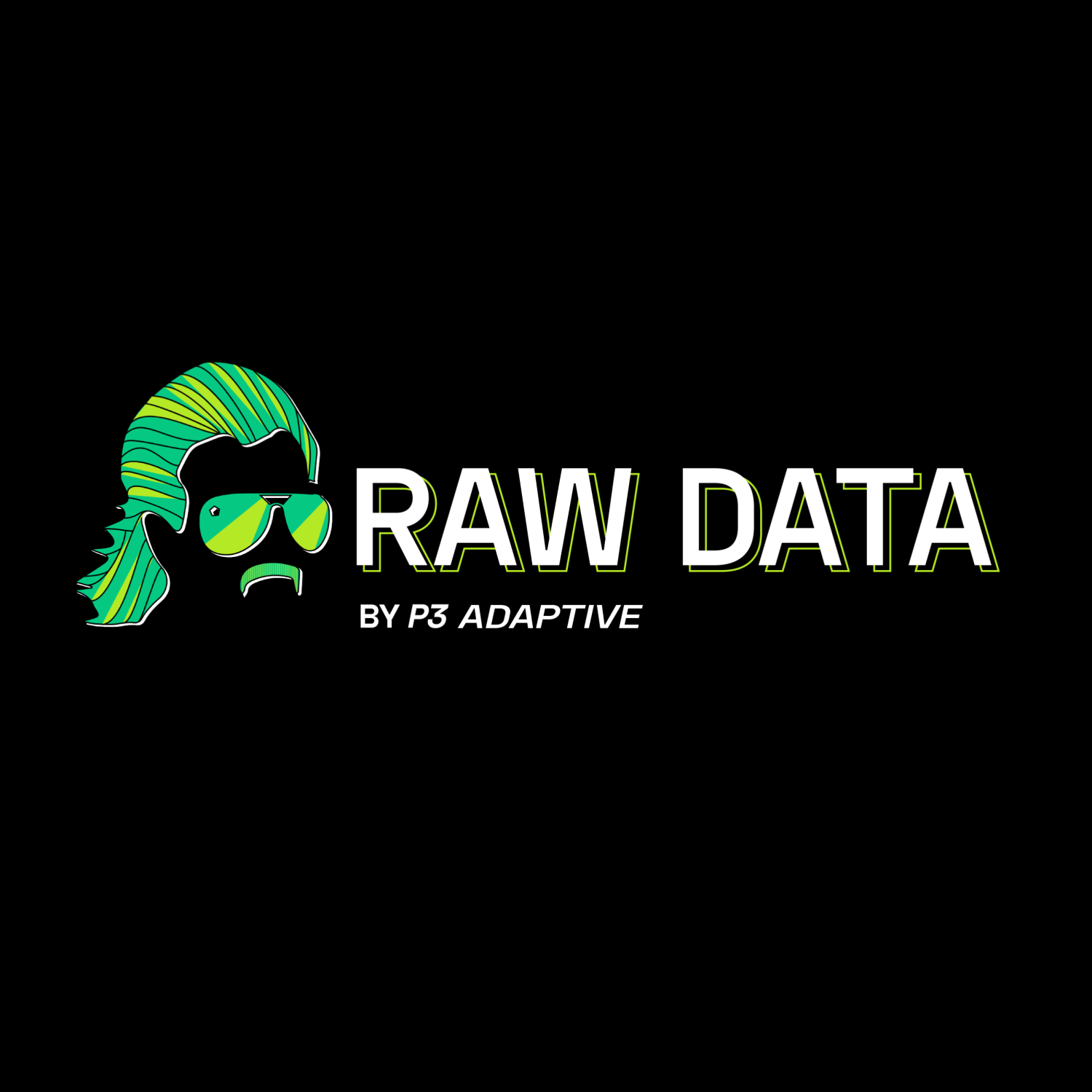
Adjacent and Between: Demystifying Digital Transformation with Power Apps and Power Automate
03.26.24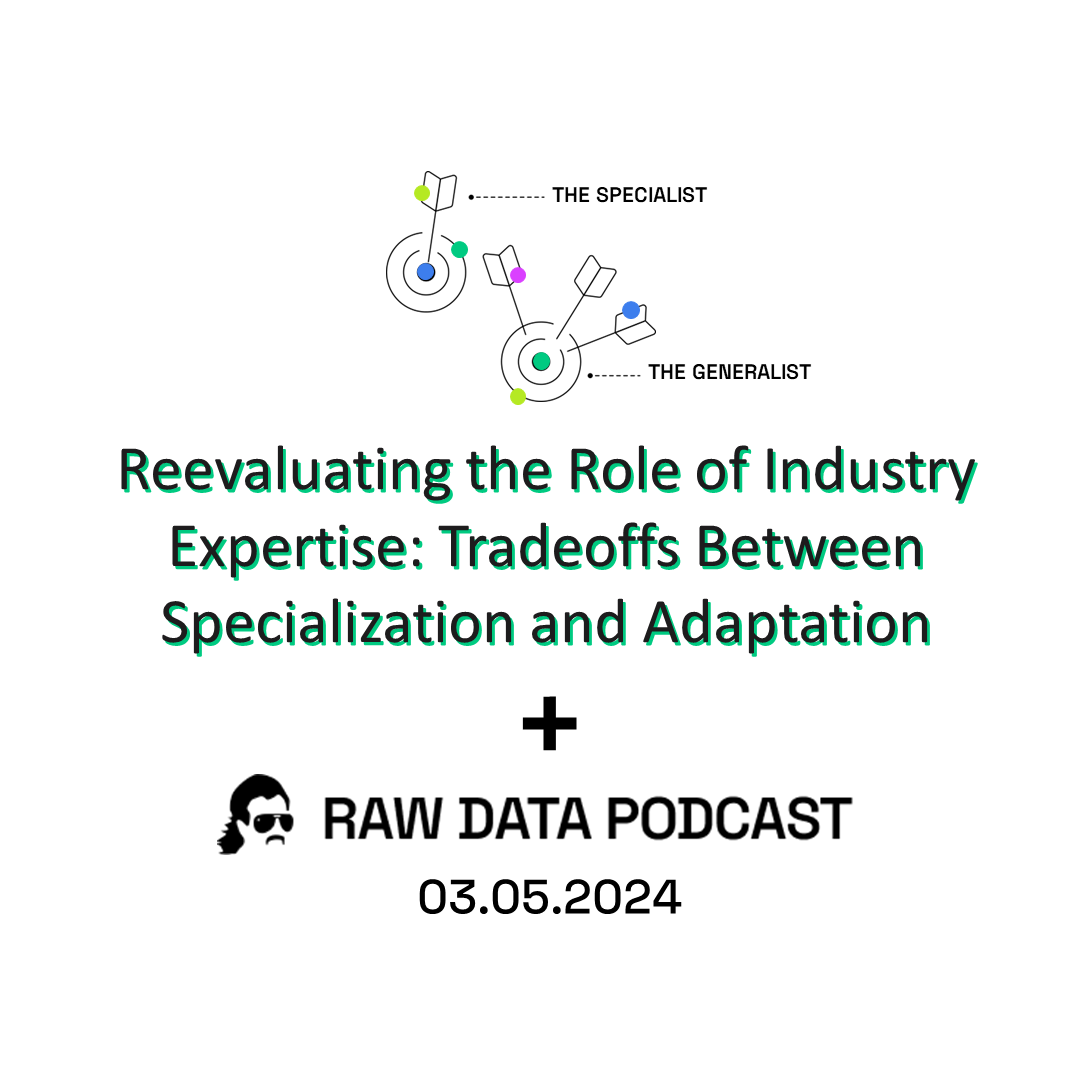
Reevaluating the Role of Industry Expertise: Tradeoffs Between Specialization and Adaptation
03.05.24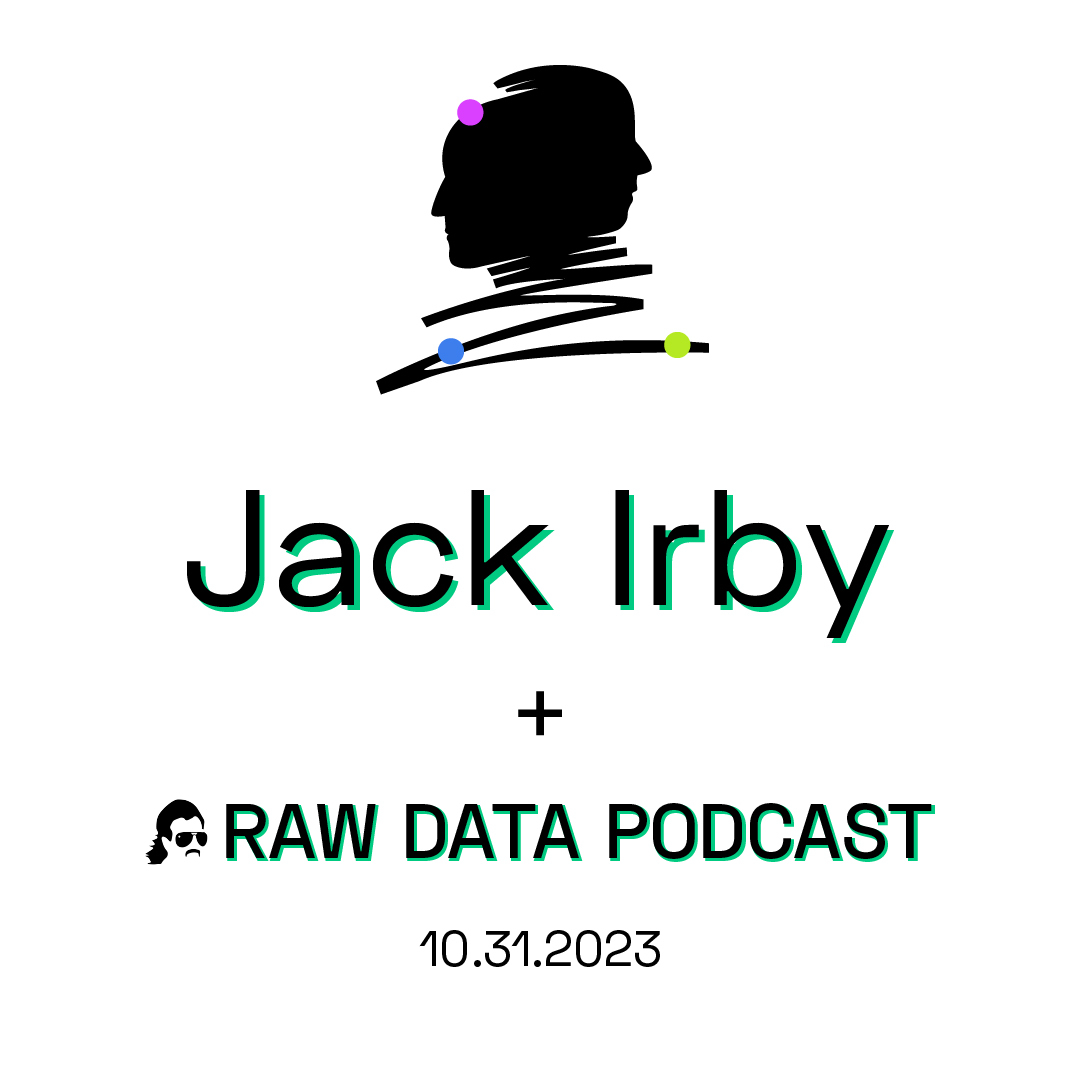
The Fruit of the Electric Grapevine: Industry-Leading Visibility on Limited Resources, w/ Jack Irby
10.31.23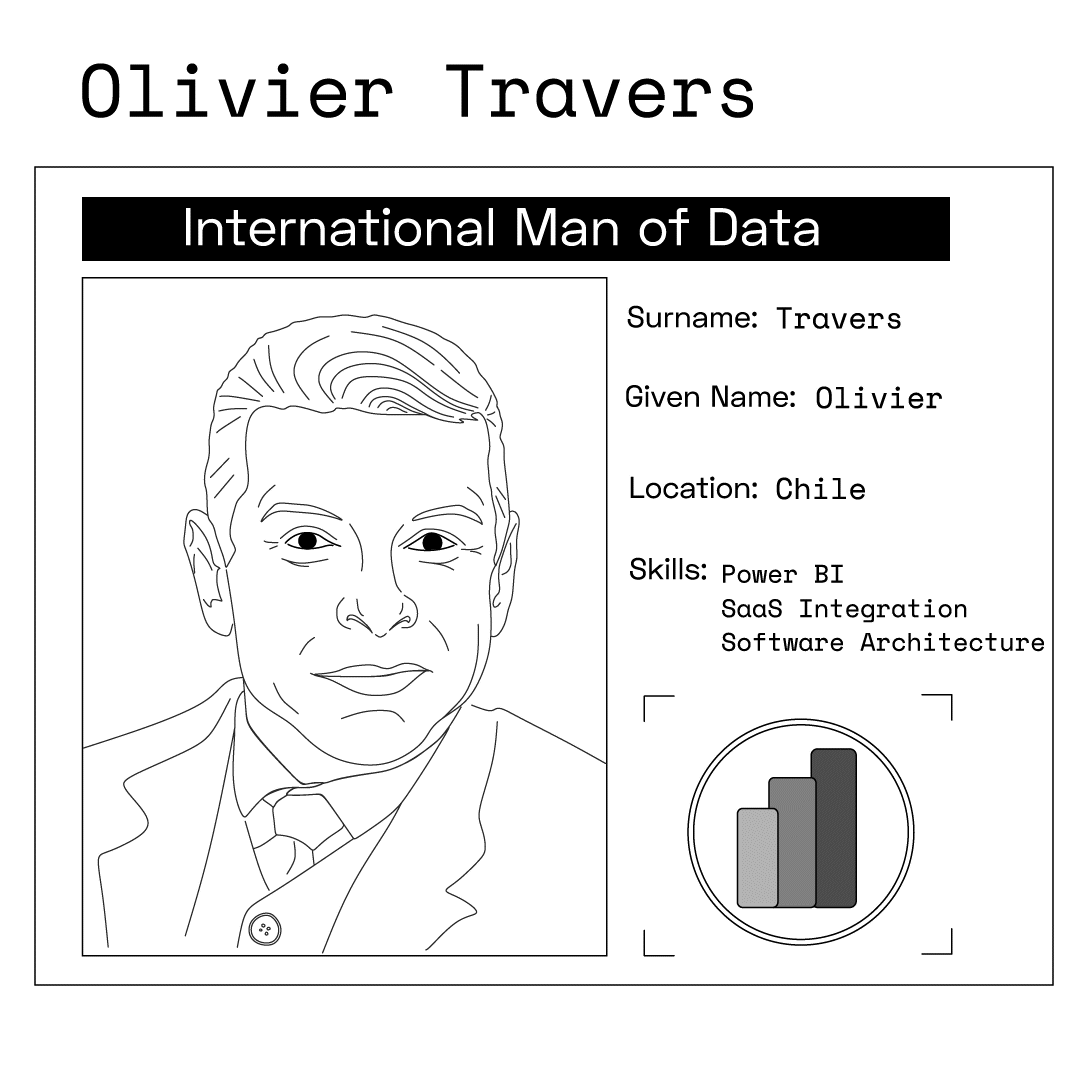
Stay Away from Guadalcanal, w/ Olivier Travers
MS Data Platform International Man Of Mystery
01.04.22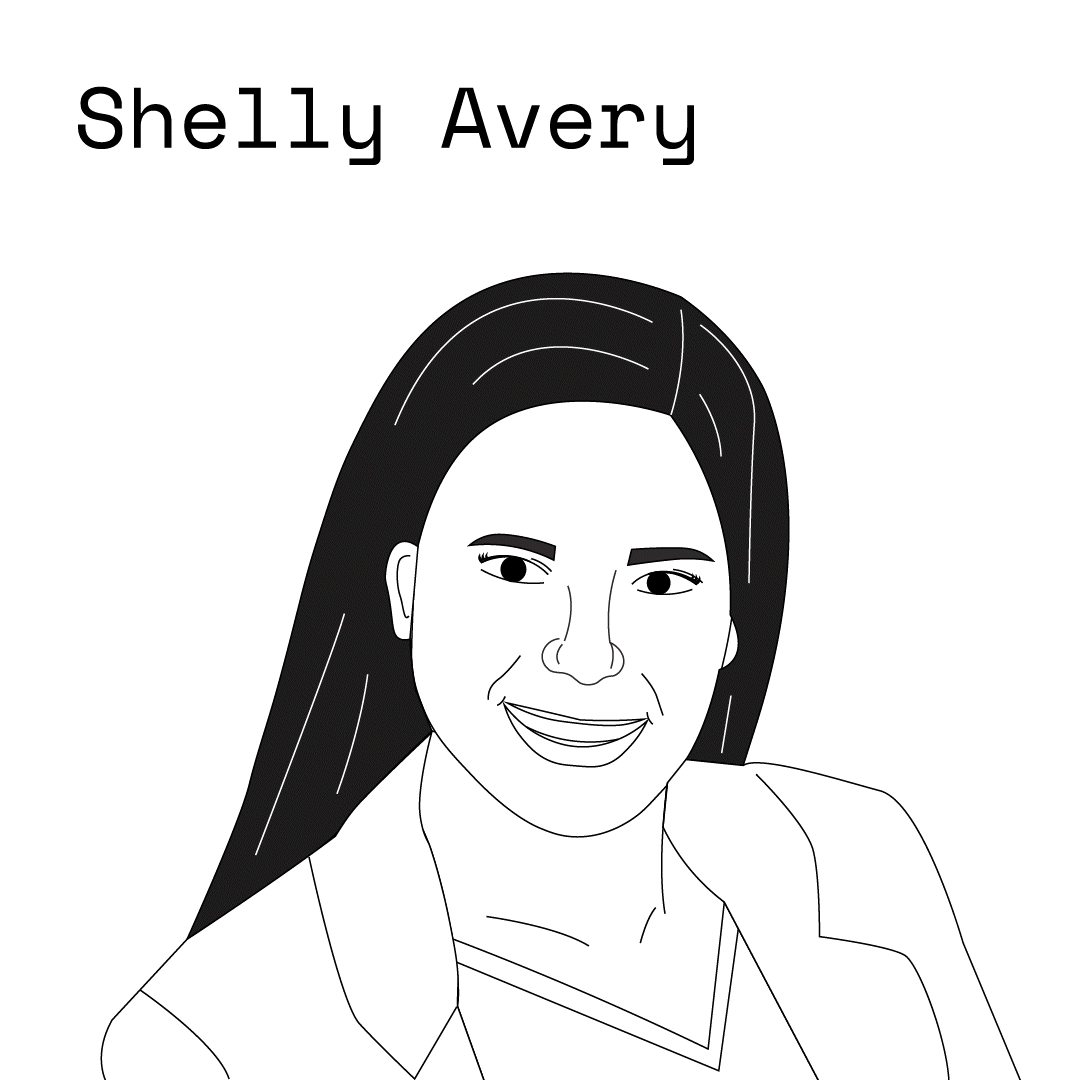
99% is the New Zero, w/ Microsoft Director Shelly Avery
Director-US Healthcare Specialist, Microsoft
09.14.21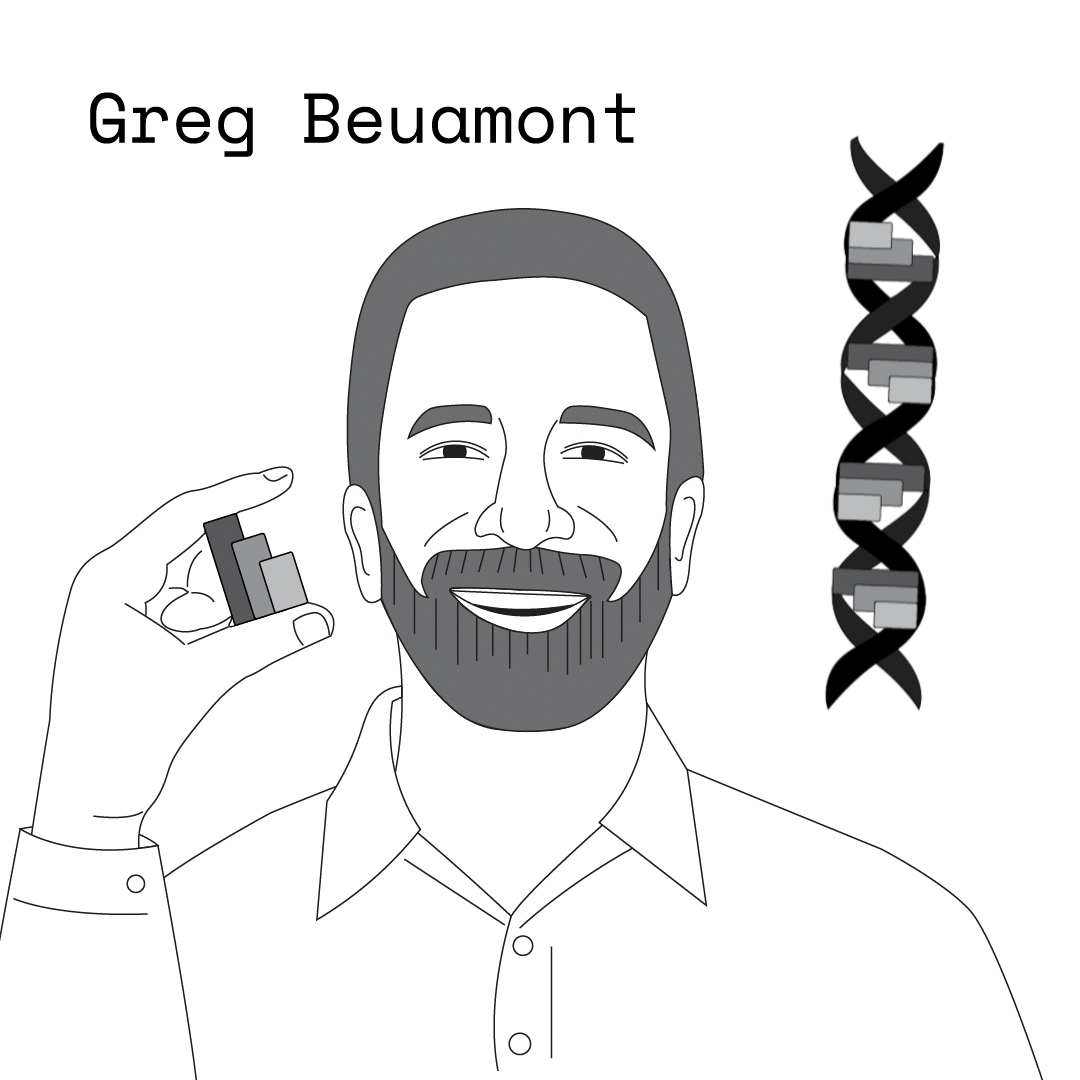
For Those About to DAX, w/ Microsoft’s Greg Beaumont
Senior Business Intelligence Specialist, Microsoft
08.17.21
Spreadsheet Celebrities & Power BI Playdates, w/ Chandoo
Hear from the Mozart of Excel Dashboards: Chandoo
08.10.21
The Data Lakehouse: Brick by Brick, w/ Databricks’ Denny Lee
Sr. Staff Developer Advocate, Databricks
08.03.21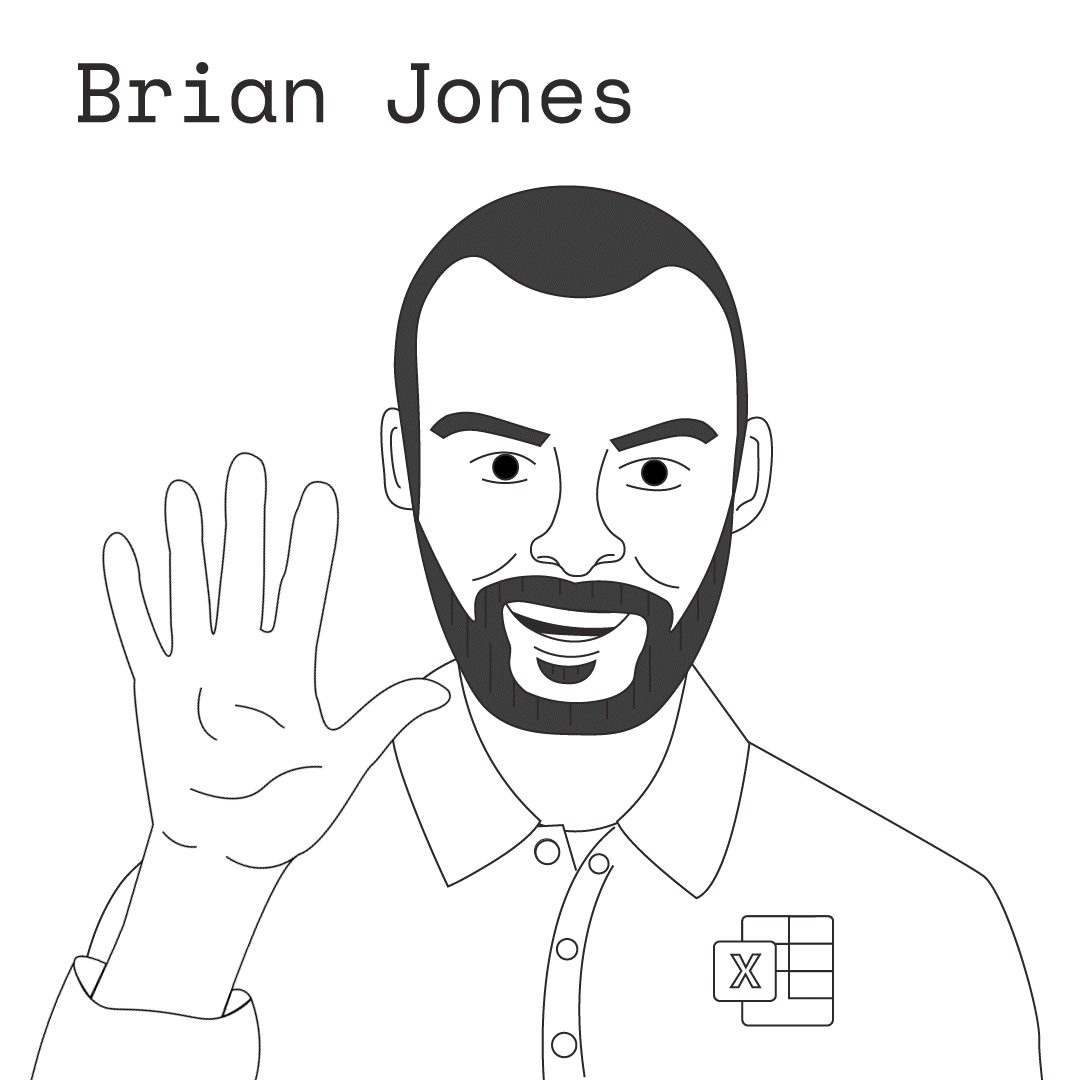
Excel Past/Present/Future, w/ Excel Head of Product Brian Jones
Head of Product, Excel-Microsoft
07.27.21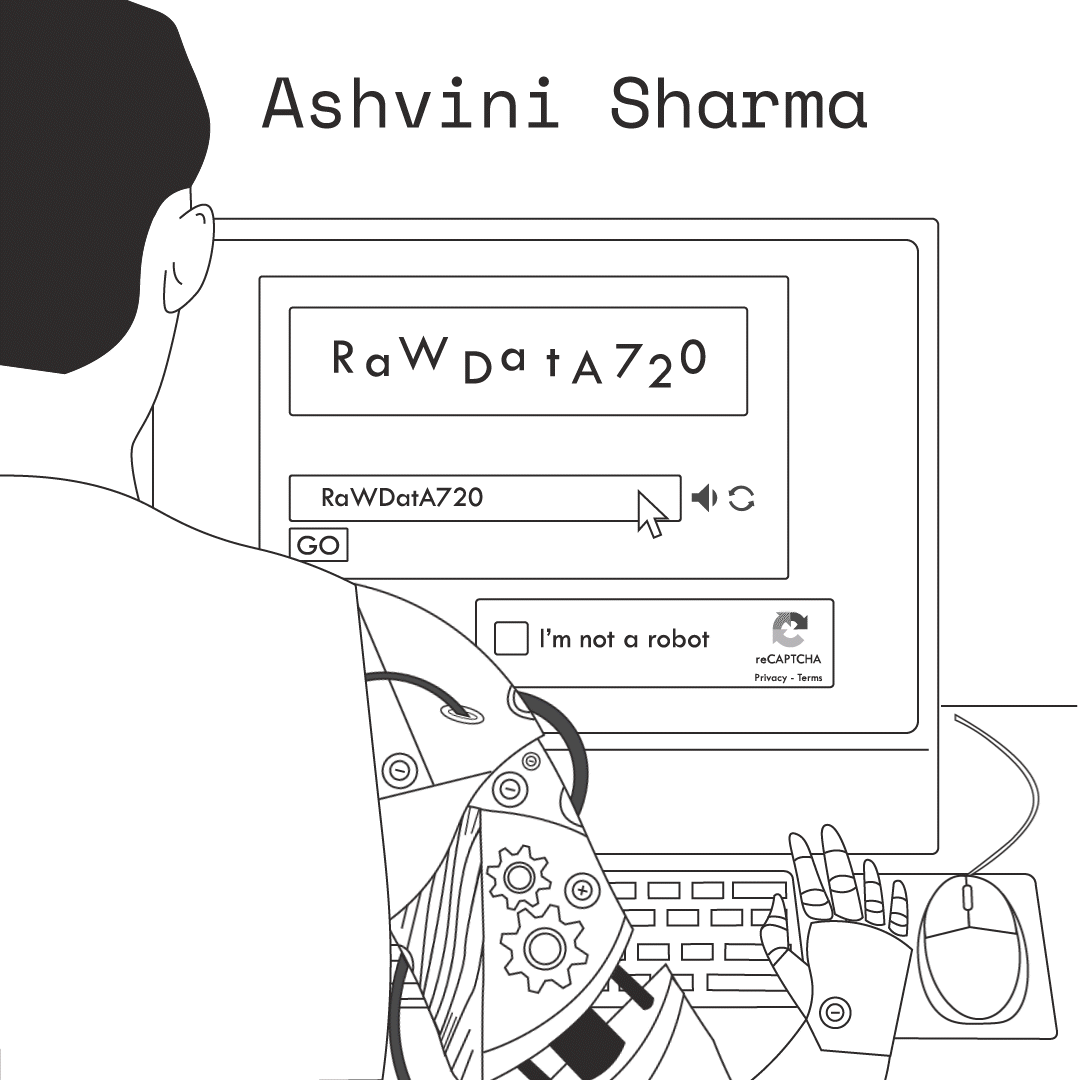
Robotic Process Automation for All, w/ Microsoft’s Ashvini Sharma
Group Program Manager-Power Automate RPA, Microsoft
07.20.21
COVID Basement Racquetball, w/ Microsoft’s Vishal Lodha
Strategic Account Director, Microsoft
06.03.21
Surfing the Changing Seas of Data, w/ Microsoft’s Chris Webb
Principal Program Manager-Power BI Customer Advisory Team, Microsoft
06.01.21
A Different Kind of Data Emergency, w/ Derek Rickard
Chief Data Officer, Emergency Reporting
05.04.21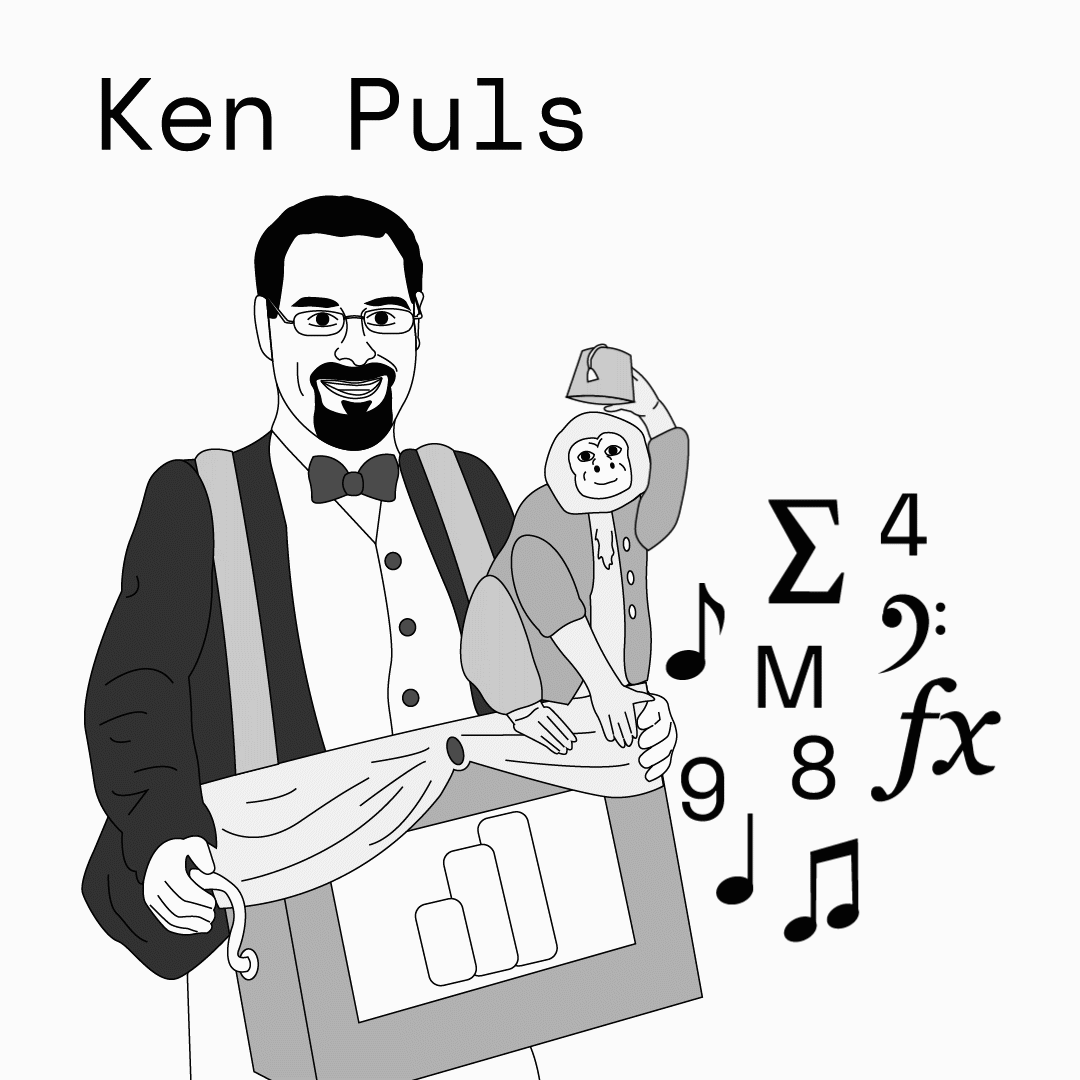
Earth’s Only Hope vs. Alien Excel Invaders, w/ Ken Puls
President and Chief Training Officer, Excelguru Consulting Inc.
04.27.21
Intelligence Platform is a Cool Name, w/ Microsoft CVP Arun Ulag
Corporate Vice President of the Business Intelligence Platform at Microsoft
04.01.21
The Dutchman of Data Dunked on Me, w/ Kasper de Jonge
Analytics Advisor and Principal Program Manager-Power BI, Microsoft
03.23.21
Everyone’s in the Middle, w/ Former NFL QB Hugh Millen
Former NFL Quarterback and Data Nerd
03.09.21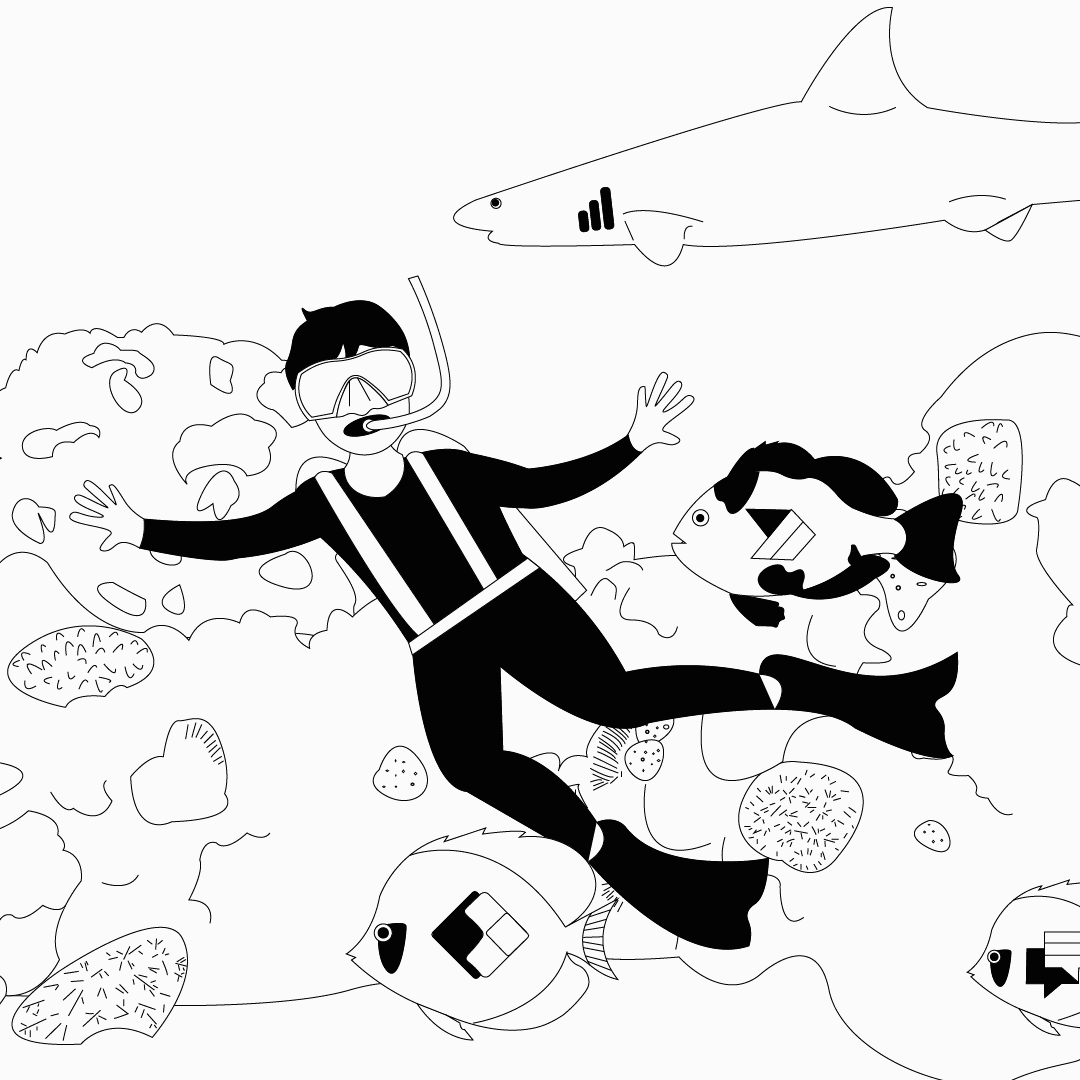
Marine Biology Leads to Power Platforming, w/ Chuck Sterling
Senior Program Manager, Microsoft
02.23.21
Data Chefs Can Come From Anywhere, w/ Gartner’s Lori Rodriguez
Vice President Executive Programs at Gartner
01.26.21
Scrubbing Data & Beating COVID, w/ Matt Selig of Bar Keepers Friend
Exec. Vice President, Chief Financial Officer & Chief Human Resources Officer at SerVaas Labs
01.05.21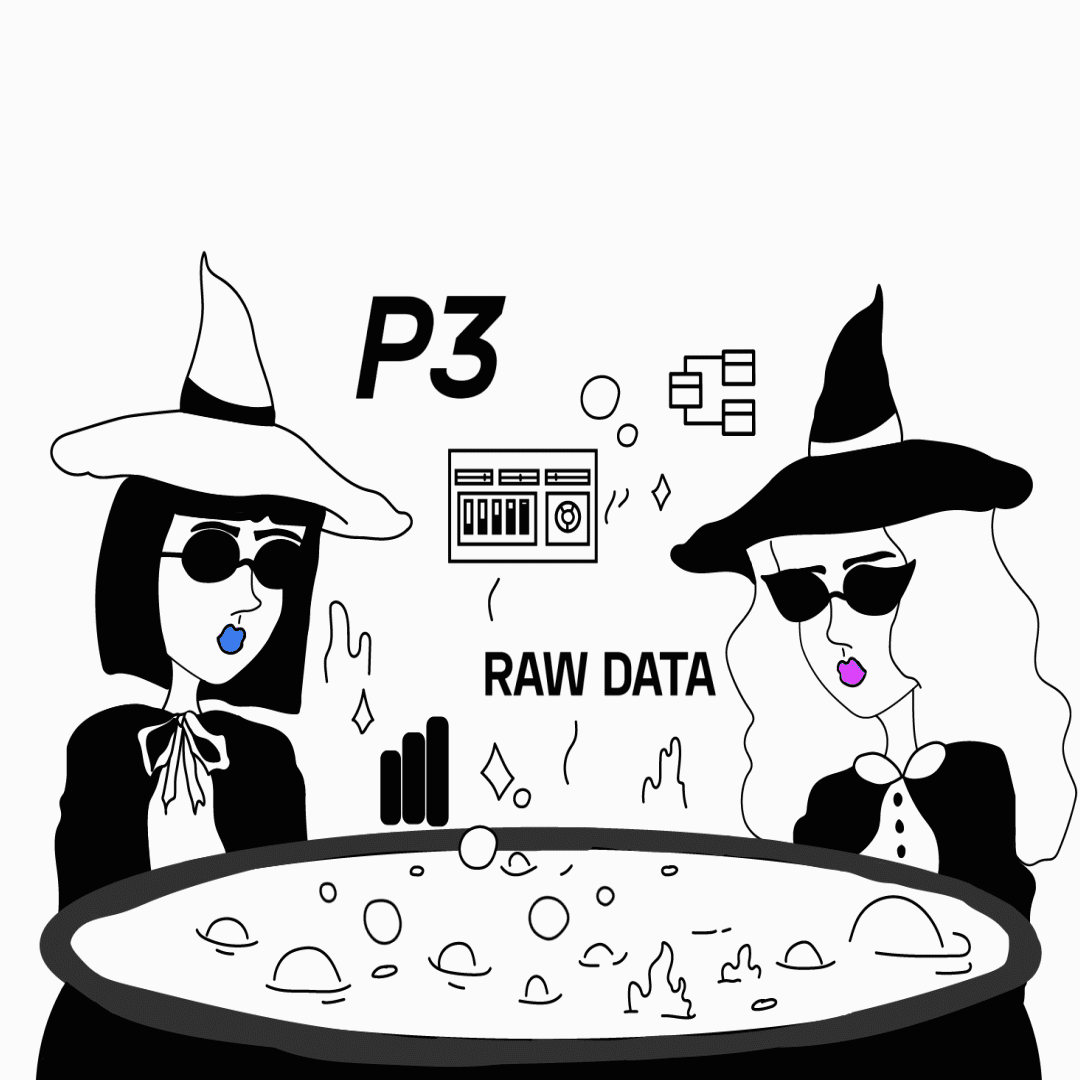
The Data Witches, w/ Shannon Lindsay & Stephanie Bruno
Shannon Lindsay-Microsoft Certified Data and Analytics Professional &
Stephanie Bruno-Associate Director of Informatics at the Elizabeth Glaser Pediatric AIDS Foundation (EGPAF)
12.22.20
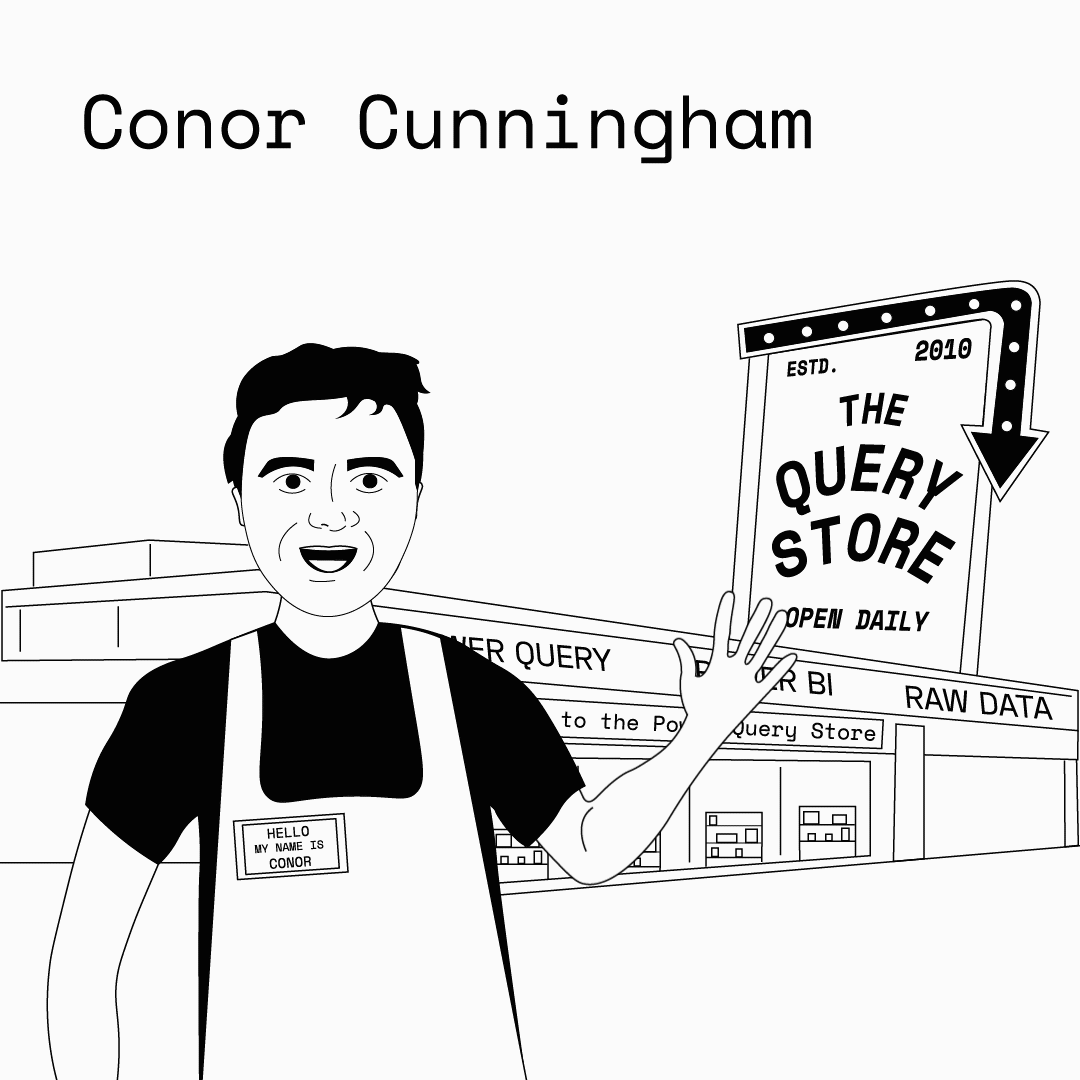
The Query Store’s Open for Biz, w/ Microsoft’s Conor Cunningham
Partner Software Architect, SQL Server Engine-Microsoft
12.15.20One of the World’s Most Amazing Humans, w/ Matt Allington
Power BI Consultant, Trainer, & Microsoft MVP
12.01.20
